#man the show's over for 4 eras and we still see the same arguments over and over
Text
It's 2024 and yet you still have more chance meeting a unicorn than having a heller see Supernatural for what it really is.

#man the show's over for 4 eras and we still see the same arguments over and over#Sam and Dean are together in Heaven and the rest is irrelevant#Misha would say anything to please his hellers crowd. They're the ones who worships him.
35 notes
·
View notes
Note
Here’s my question regarding Lone Star’s lack of success: is it really because of Tarlos? I’m not saying it isn’t part of it but I also think there are many variables as to why the show isn’t as popular.
1. Typically spin-offs don’t do as well
2. Rob Lowe isn’t enough to keep people week over week or season over season
3. The tone isn’t the same as OG leading many not to tune in
4. COVID hurt them a lot more than OG as they weren’t able to build the fan base
Maybe I’m misunderstanding you (apologize if that is the case) but I don’t think you can place as much blame on Lone Star’s lack of success on Tarlos as I think you do. 🤷🏻♀️
The problem with this entire ask is that you're basing the "lack of success" for LS on your perception of things instead of adding facts to the equation.
First, spinoffs not doing as well as the original may have been a valid argument at one time, but in this era of TV? Spinoffs are the reason franchises won't die. Law & Order. NCIS. One Chicago. The FBIs. If a spinoff was doomed to fail, we'd have A LOT more original programming every season. And if we're being honest? Spinoffs "don't do as well" because the creators changed something from the original and the fan base isn't open to those changes. It's much deeper than "it's just not as good".
Secondly, and this is gonna come as a shock to many of you, but Rob Lowe the actor? Kind of a big deal in Hollywood. He did not need LS to be put back on the map/get back into the spotlight. You know how people accept Peter Krause's status (even when we didn't necessarily know of him) because of his work on Six Feet Under? Yeah, well. Ever heard of a show called The West Wing? Guess who got critical acclaim for his part? I promise you that anyone continuing to watch LS in year five is doing so because of Rob. Because they recognize him. They respect his work. We cannot say people are tuning in for Marjan or Paul or Mateo or even Tommy when Owen IS the show. And listen, we all love Angela, but let's not act like OG is still head and shoulders above all else when there are other series with the same number of seasons (or even more) that pull in more viewers more consistently. People are sick of OG's shit, too.
Lastly, and most importantly, I never said Tarlos is THE reason viewership is down with the spinoff. I said (more than once) that OG has shown us Tim didn't have faith in the fan base to support a gay relationship between two men that wasn't happening in the background. Michael could have been a first responder. His love life would have gotten more attention. Buck could have been confirmed bi while dating women. Same with Eddie. The fact that neither one of those things happened in SIX YEARS, not even early on when the characters were still being fleshed out, tells you it wasn't worth the risk of losing the audience to "the gay agenda". (Again. Remember who the shows are actually for. Angela and Peter and Rob aren't supposed to be encouraging teenagers and those in their early or mid twenties to tune in. It's gonna be viewers more in their age range.)
So when we look at LS and see an openly gay man playing a gay man alongside an actor who turns out to be bi IRL, when we see that relationship experience intimacy the same way the straight characters do, we're really gonna try and pretend it didn't and still doesn't influence people's decision to disengage?
The OG audience - the people not on social media! - wanted OG, Pt. II. That's not what they got.
#this is an 'in defense of ls' post FYI#before anyone starts getting mad#anonymous#tina speaks#911: lone star#tarlos
3 notes
·
View notes
Text
Pop
I initially had written a great little essay on facebook honoring my Pop. It was written before he died. It definitely was one of my best essays ever.
As I haven’t been on Facebook for 2 years. It was lost forever in “facebook” land, I hope here I can do it honor....
As I look out the front window on this crisp Saturday morning, I see Pop sauntering up the sidewalk to the house. He just arrived in his always shiny Ford.
Pop loves our acreage and every Saturday makes it out here for a coffee, and maybe a “sweet roll” if I have any. When he first started showing up on Saturday mornings, it really got under my skin.... as Pops arrival would take me out of my planned schedule for the day.... and it was becoming a habit with him. I finally adapted, and looked forward to it.
Our conversations are all over the place. Most likely a soft argument or 2 about, stupid stuff. Whitewall tires, dogs drinking toilet water, Is the 36 running, what are your plans for today, economy, politics, old war stories, Mom, the kids, weather, on and on.... mostly just drabble, and hopefully at least one golden gem from his past.
This ol’ guy outside of eastern Nebraski, has no real notoriety, now. Well let me even go further with that comment.... in this era he also has no real notoriety .... anymore.
Pop, was well known in this part of the state as that “big Indian Trooper Whitefoot” (no we are not Indian). His notoriety came from living thru Nebraska Safety Patrol to Nebraska State Patrol early years (late 40′s on up to 1980). Being involved with the Charlie Starkweather rampage (google it if you don’t know this reference). Security detail for the Governors office. Trooper hiway detail. Recruiting, Communications.
Catch the drift here... this was HIM.... This built him greatness. We couldn’t go anywhere without someone knowing him and wishing to at least say hi and shake his hand.
Big guy... about 6′4″ corn fed farm kid from the depression. In full smokie bear uniform he’d fill a doorway quick. I still remember the looks of my hi school buddies first exposure to him..... “OMG, who is that guy???”
I remember him polishing his belt, shoes, bullets every Tuesday night while watching Red Skelton. Pop had been a drill sergeant in the Army.... so he knew all the drills for looking presentable.
Once I had moved to Waverly, all sorts of stories about him came to me personally, from the locals. These stories are what really made him, ... him, in my opinion.
Story of an ornery Greenwood kid who terrorized the roads around northeast Lincoln and Lancaster county roads. Pop regularly pulled him over for his antics. Never really chasing him, as he knew where he lived, farm outside of Greenwood.
Pop went on duty one evening, and his radio started crackling immediately about a chase going down, involving this same kid. Pop got on the radio immediately and asked those involved in the chase to shut it down.... as this young man will kill himself trying to get away. To no avail... the chase ended with the kid wrapping his car around a tree at North 70th and Cotner... by the tracks.
Hearing this on the radio Pop just headed on out to this young man’s folks place, pulled into the yard. As soon as his parents saw Pop, they knew it was over.
Because of his actions in this incident..... huge respect for Pop many years later by the locals, on many levels.
Another story of a bank robbery (I believe Prairie Home).. Robbers changed cars at Stevens creek on Havelock Ave (very rural then). Robbers, to change cars went down into the creek, and walked mile section south to Adams, to get to other car.
It was cold and snowy that day. Pop showed up late to the incident. Lancaster County Deputy Sheriffs all milling about trying to figure out a plan.
Side note: Please understand that back in this time, Sherriffs office, was pretty much useless for anything other than serving Warrants/Summons. They just weren’t involved in that much in law enforcement. This is according to Pop.
Pop asked if anyone had walked the creek to see where they went. A sheepish “no?” was the reply ... Pop went back to his patrol car, got his 4 buckle boots on and a shot gun and walked that mile down in the creek full of snow, ice, and water.
Locals present, all sitting in their warm cars.... couldn’t forget Pop and his take charge attitude.
Pop kept a steel lock box full of every picture he had taken of car fatality car accidents. Every single one. Cars in the 50′s, were huge big chrome land yachts back then. No seat belts. Lots of heavy metal sharp edges. In an accident, it was a promise of a blood bath of carnage. Just about all of these photos in black and white. Sometimes I’ll still mentally flinch when I see a stark black and white picture.
One photo still haunts me... Its shows a frozen mud road, with what looks like a family standing on the road, near a blanket that’s obviously a small body. The picture shows what I believe they are shivering.
Looks like one of those horrible Nebraska days where its cloudy cold and windy. Not much snow on the ground, but the ground is frozen solid.
Story goes, the father and young son were taking the grain truck into town, with Mom and other son following in the family car. Road was frozen solid, and the truck being older, was not taking this road well.
As the Father was trying to keep it on the road the passenger door flew open, and his young son went out the open door. .... The trucks rear tires then drove over the young boy.
Pop was trying to get his fatality accident report completed in this bitterly cold day, and the Family insisted with staying with the body.... no matter the cold. they couldn’t stand the idea of their lost son laying on a frozen road, waiting for the coroner to pick him up.
Haunting picture to say the least.
Even as he approached 90, in his heart he was still hard core Trooper. No fear.
I remember when he got nabbed not 1/4 mile from here, for speeding. 47 in a 35. Trooper who got him recognized his name... and let him go with a warning... Pop had a habit of when first taking off on a trip, the first stop sign you “floor it” until you reach an enjoyable speed. I know that’s what happened there. ... ... he was in his 80′s.
Retired in 1980, time caught up with him and his notoriety. As most folks that knew of him were all gone due to attrition by the time of his death.
He lived thru blood and guts up to his knees, back before there were “first responders”. People with no conscious, armed to the teeth, hiding in the weeds. Him having to really get physical with handling irrational people.
And here we argue about stupid stuff. “white wall tires Pop?” ... really?
Our morning is done usually mid morning. “ gotta go help Mom”.... and he saunters down the sidewalk back to his shiny Ford.
“see ya next Saturday...”
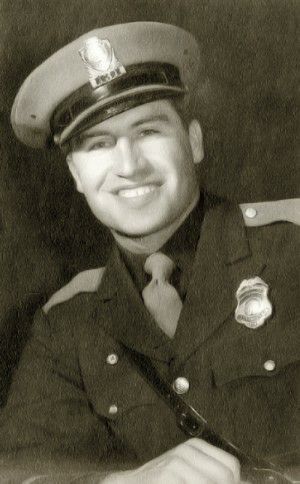

In his later years he couldn’t keep the shop warm enough in the winter.. Proudly wearing his Gana Trucking jacket..
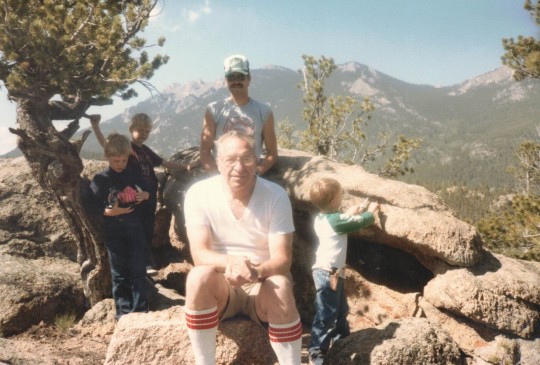
Our picture rock. Mount Meeker in the back ground. Josh on left, Pop, Me, Luke, Jake...
1 note
·
View note
Text
Vintage Shows to Watch While You Wait for the Next Episode of WandaVision - The 60s
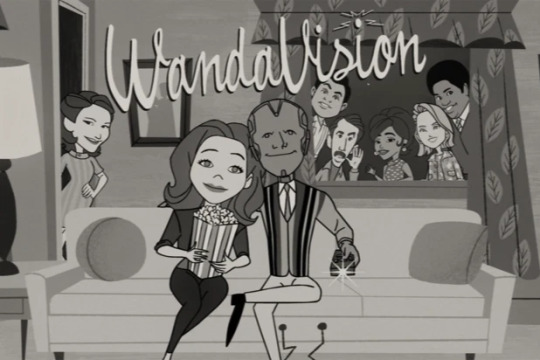
So the 60s is the era that Wandavision pulls most heavily from for it��s inspiration. So much so that one could make the argument that each of the first three episodes are all set in the 1960s. Episode one pulls from the early 60s with multiple Dick Van Dyke refences, episode two is very Bewitched inspired, and episode three is aesthetically very similar to The Brady Bunch which started in ‘69. As such it was hard to narrow down the list for this decade and I had to get creative in some ways.
1. The Andy Griffith Show (1960 - 1968)

The Andy Griffith Show gets kind of a bad rap now a days for being, supposedly, a conservative’s wet dream. People claiming it as such have apparently never actually seen the series. Oh yes, it’s very much set in white rural 60s America and will occasionally present the obliviously outdated joke, but the story of a widowed sheriff being the only sane man in a small town full of lovable lunatics, who prefers to solve his and others problems with negotiation and hair brained schemes as opposed to violence has far more in common with modern day Steven Universe than whatever genocidal fantasy fake rednecks have in their heads.
As the gif above shows Andy Griffith was very subtlety progressive for its time. Andy was a stanch pacifist, pro-gun control, treated drug addicts and prisoners with respect, and all the women he would date had careers, ect. and so on. It’s not a satire making any sort of grand political statements but the series had a moral center that was far more left than many realize.
But if it’s not a satire, then what type of comedy is it?
The Andy Griffith Show excels in what I like to call, ‘awkward comedy’. See everyone in Mayberry is far too nice to just come out and tell a character they’re making an ass of themselves, so therefore whoever is the idiot punching bag of the episode’s focus must slowly unravel as everyone looks on in helpless pity until said character realizes the folly of their ways and the townsfolk come together to make them feel happy and accepted once more. Wandavision takes this polite idyllic awkwardness and plays it up for horror instead of laughs.
2. The Dick Van Dyke Show (1961 - 1966)

The creators of Wandavision actually met with Dick Van Dyke himself to pick his brain and learn how sitcoms were made back then. Paul Bentley also took inspiration from Van Dyke in his performance of the sitcom version of Vision, while Olsen stated Mary Tylor Moore had a heavy influence on her character of Wanda. But more than just being a point of homage, The Dick Van Dyke Show was hugely influential in modernizing the family sitcom and breaking a lot of the unspoken traditions and ‘rules’ of the 50s television era. It’s also just really, really funny.
3.The Alfred Hitchcock Hour (1962 - 1965)
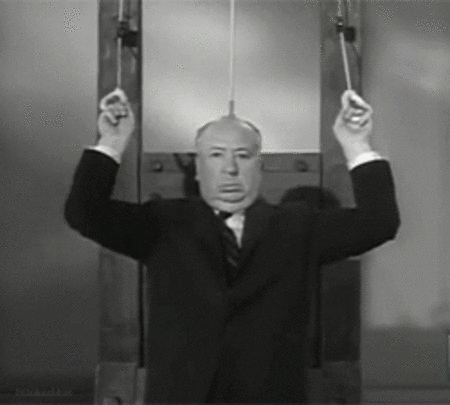
Bit of a cheat here. Alfred Hitchcock Presents actually started in 1955 as a half hour anthology show, but in ‘62 the show got a revamp and was extended into a full hour tv series. I knew I wanted The Twilight Zone to be covered in my episode one recap, but ‘The Master of Suspense’ couldn’t be forgotten. While The Twilight Zone reveled in the surreal and supernatural, Alfred Hitchcock pioneered the thriller genre and made real life seem dangerous, horrifying, and other worldly.
4. Doctor Who (1963 - present day) vs Star Trek (1966 - present day)

Just like how westerns dominated the air waves during the 50s, science fiction was the center of the cultural zeitgeist of the 60s. From Lost in Space to My Favorite Martian, space aliens and robots were everywhere. So naturally I had to name drop the two sci-fi juggernauts that still air to this today. If you thought that the rivalry between Star Wars and Star Trek was bad then you’ve never seen a chat full of Whovians and Trekkies duking it out over who is the better monster, the Borg or the Cyberman. But which one has the more influence over Wandavision?
Well Star Trek owes it’s existence to sitcoms. As with The Twilight Zone before it, Star Trek was produced by Desilu Productions and it’s co-founder and CEO, Lucille Ball, was the series biggest supporter behind the scenes, lobbying for it when it faced early cancelation. As with all things sitcomy, everything ties back to I Love Lucy in the end. However despite that little backstory, it would seem that the series has very little to do with Wandavision itself beyond being quintessentially American.
I would argue that Wandavision owes much to Doctor Who though. Arguably more so than any show mentioned in this retrospective. Time travel, alternate realities, trouble in quite suburbia, brainwashing, people coming back from the dead, ect... just about every trope you can find in Wandavision has also appeared in Doctor Who at some point. As a series that can go anywhere and do anything, Doctor Who was a pioneer of marrying genres in new and interesting ways.
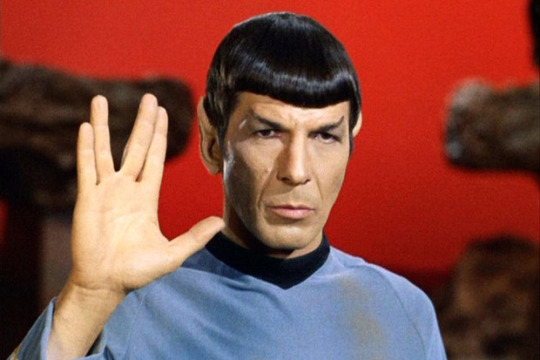
5. Bewitched (1964 - 1972) and I Dream of Jeannie (1965 - 1970)

It’s hard to pick one series over another because they’re essentially the same show. A mortal man falls in love with a magical girl who upends their lives with magic filled hijinks as they try their best not to have their secret discovered by the rest of the world. And both have their fingerprints all over the DNA of Wandavision.
There’s only two core differences; Samantha and Jeannie have completely different personalities, with Sam being confident and knowledgeable and Jeannie being naïve and oblivious, along with their relationships with their respective men, Sam and Darrin being married and in love at the start of the series and Jeannie chasing after Tony in the beginning in a will they/won’t they affair, finally only getting together in the last season.
6. The Munsters (1964 - 1966) vs The Adams Family (1964 - 1966)

Fans of these two shows are forever sadden that there never was a crossover between them. Because they’d fit perfectly together. Both shows are about a surreal and macabre family living in American suburbia and disrupting the lives of their neighbors with their otherworldly hijinks. Sound familiar?
The main difference between the two shows is the way the characters viewed their placement in the world they inhabit.
The Munsters were always oblivious to the fact that didn’t fit in. They just automatically assumed everyone had the same personal tastes as them. Whenever they encountered anyone who behaved strangely around them they would write that person off as being the odd one rather than questioning themselves. As such the main cast was structured like a stereotypical sitcom family who just happened to be classic movie monsters.
The Addams were well aware that they were abnormal and they loved it! They lived life with in their own little world and didn’t care what anyone thought of them. As such the characters were far more colorful and quirky as individuals but there was little in the way of refences to other horror franchises beyond just a general love of the twisted and strange.
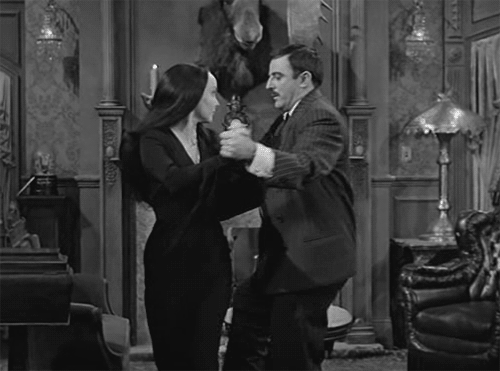
7. Green Acres (1965 - 1971) and the Rual-verse (1962 - 1971)
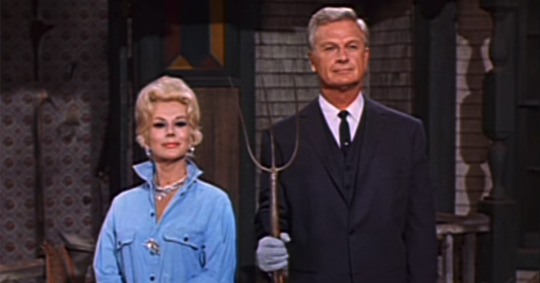
So the MCU is not the first franchise to bring viewers an interconnected universe to the small screen. Far from it, as sitcoms had been doing this for decades, starting with the ‘rualverse’. Beverly Hillbillies, Petticoat Junction, and Green Acres were all produced by the same company and were treated as spinoffs of each other, complete with crossovers and shared characters and sets.
Of the three, the last show, Green Acres, has the most in common with Wandavision. A well to do businessman and his lovely socialite wife settle down in small town America on a farm in order to get away from the stresses of city life, only to find new stresses in the country. Eva Gabor, herself a natural Hungarian, plays the character of Lisa as Hungarian making her one of the few non-native born Americans on tv screens during the cold war. Despite her posh nature and original protests to the move, Lisa assimilates to the rural life far easier than her husband, Oliver. Who, as the main comedic thread, can’t comprehend his new quirky neighbors’ odd and often illogical behavior.
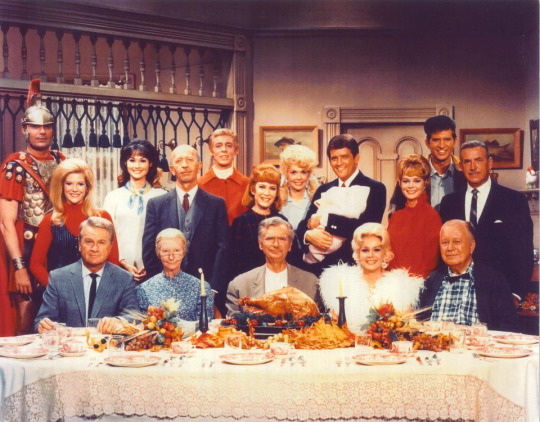
8. Hogan’s Heroes (1965 - 1971) and Get Smart (1965 - 1969)

So as comic fans have been quick to point out, it’s looking like both A.I.M. (Hydra) and Sword (Shield) will be players in the story of Wandavision. To commemorate that here’s two shows to represent those opposing sides. Although in truth, neither series has anything else in common with each other but I need to condense things down someway.
In Hydra’s corner we got Hogan’s Heroes. A show all about taking down Nazis from within.
I love, love, love, ‘robin hood’ comedies where a group of con artists try week after to week to pull one over the establishment. The Phil Silvers Show, Mchale's Navy, and Top Cat, just to name a few examples are all childhood favorites of mine. However while those shows had a lot of morally ambiguous characters, Hogan’s Heroes has very clear cut good guys and bad guys, cause the bad guys are Nazis and the show relentless makes fun of the third reich as should we all. In fact I was watching Hogan’s Heroes while waiting for the GA run off election results. Fortunately my home state decided to kick out our own brand of Nazis this year.
For Shield, we got the ultimate spy spoof, Get Smart. Starring, Inspector Gadget himself, Don Adams, as the bumbling Maxwell Smart. Get Smart, is a hilarious send up of Cold War espionage but the real selling point of the show, imho, is Max and his co-worker 99′s relationship. You can cut the sexual tension in the air with a knife all while laughing your ass off.
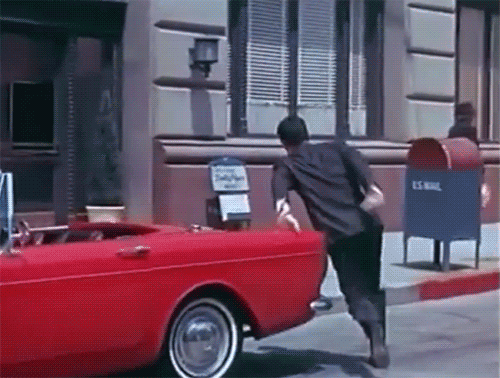
9. Batman (1966 - 1968)
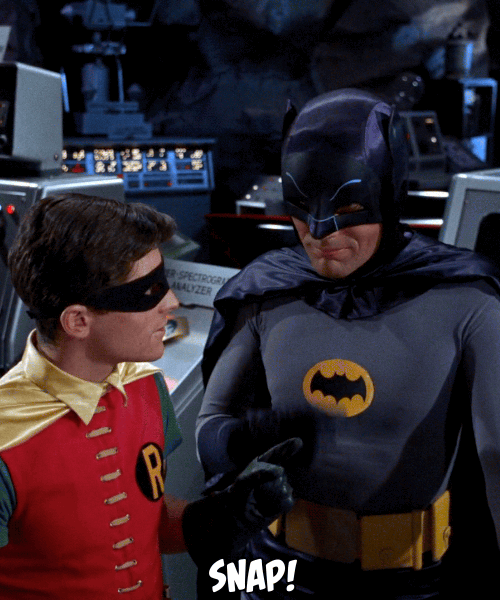
First was Superman and then came Batman. Yet while Superman was a serious action show, Batman was a straight up comedy. Showcasing that superheroes could indeed be funny.
Also shout out for Batman being the only show on this list to have an actual crossover with it’s competitor, The Green Hornet.
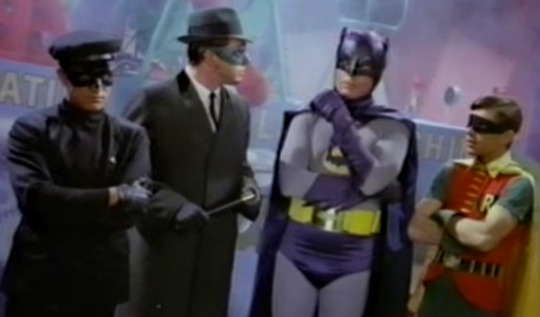
10. Julia (1968 - 1971)

Since episode two features the first appearances of Herb and Monica, let’s highlight the first black led sitcom since the cancelation of Amos ‘n Andy over a decade earlier. The show focuses on single mother and military nurse, Julia, as she tries to live her life without her recently decease husband, who was killed in Vietnam, as she tries to raise their six year old son on her own.
The series is cute. It’s more of a throw back to earlier family sitcoms where there’s no fantasy and life lessons are the name of the game. It’s the fact that the main character is a single black woman is what made the show so subversive and important at the time.
Runner Ups
There’s much good stuff in the 60s, so here’s some others that didn’t make the cut but I would recommend anyways.
Car 54, Where Are You? (1961 - 1963)
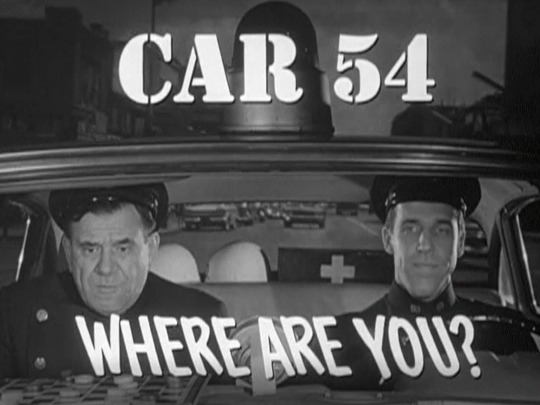
I call this the Brooklynn 99 of the 1960s. Bumbling but well meaning Officer Toody longs to do good in the world and help anyone in need, but often screws things up with his ill thought out schemes. He often drags his best friend and partner, the competent but anxiety riddled, Muldoon into his escapades.
Mr. Ed (1961 - 1966)
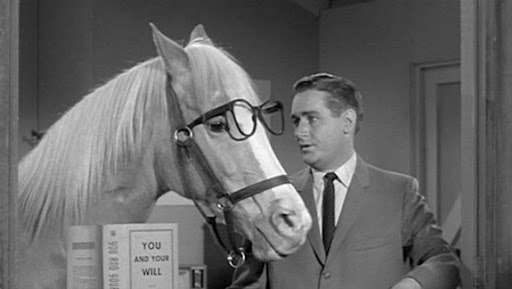
The grandfather of the sarcastic talking pet trope.
The Jetsons (1962 - 1963 and 1985 - 1987)
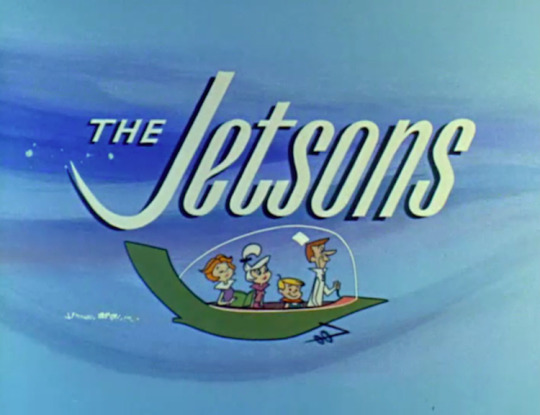
Hanna-Barbera often took popular sitcoms and just repackaged them as cartoons with a fantasy theme to them. The Jetsons has no singular show that it rips-off but is rather more a grab bag of sitcom tropes that feature, robots, computers, and flying cars.
The Outer Limits (1963 - 1965)

The Outer Limits was The Twilight Zone’s biggest competitor in terms of being a sic-fi/horror anthology series.
Gillian’s Island (1964 - 1967)
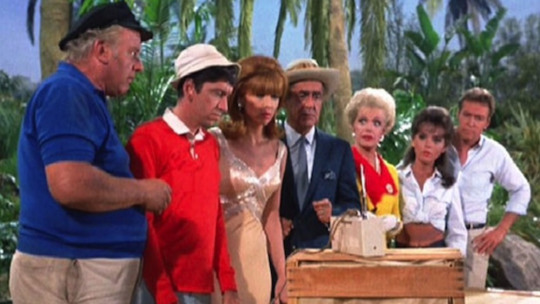
The only comparison to WandaVision I could think of was that this is a sitcom about people being trapped in one place. But by that point I was running out of room on the list. Still it’s one of the funniest shows on here.
So yeah, this took longer than expected cause there’s a lot, here. Hopefully the 70s will be easier. Which I’ll post on Friday.
113 notes
·
View notes
Text
Take Everything From Me | Caspian x Reader

Warnings: Arguments, Jealousy, Mention of battle, A few cuss words
Time/Era: Prince Caspian
Word Count: 2k
Summary: Caspian is jealous because of Y/N’s newfound love for high king Peter Pevensie
Request: hi!! first of all i love your writing and thank you so much for saving time to write for us💜 also can you please write a Caspian imagine where reader is his best friend since childhood and while they're having a heated fight about his fight with Peter in the second movie (the reader is trying to explain that they're both wrong), he angrily (because of jealousy maybe?) confesses his feelings and they end up kissing?? pretty please?? lots of love✨
A/N: Thank you for such a nice compliment and for acknowledging the time I spend on my fics! Each imagine usually takes me 1-4 hours (depending on the length) and it’s super fun! I hope you enjoy it! Thank you for requesting! If anyone would like me to write for them (Edmund, Caspian, Peter and some Harry Potter characters) send a request my way :)
masterlist | read on ao3
Prince Caspian was a stubborn, natural-born leader; he had to be. He was raised with harsh expectations and responsibilities due to his bloodline. Because of this, the young prince never had many friends, especially any outside of his bloodline. Y/N L/N was the only exception. She was the daughter of the highest knight in their army, so she was entrusted within a close proximity of the royal family. She was under the same care as Caspian since they were very young, and the two grew to be inseparable.
When the wife of Miraz, Prince Caspian’s uncle, gave birth to a boy and Caspian was threatened to be assassinated, their beloved professor awoke Y/N first. He was in a tizzy and insisted Y/N grab anything she needed in case she was to never return. Confused, but with haste, Y/N packed up her belongings and followed the plump man out of her chambers. She and Prince Caspian had barely made it out of the castle before arrows were being shot at their backs.
“Hold on tightly,” Caspian directed Y/N’s arms to fall around his waist as they rode out of the castle. He sounded out of breath and panicked when he spoke, something Y/N had never heard from him.
“My Prince, they’re gaining on us,” Y/N responded, her voice shrill and strained. Her hands gripped the stiff leather of his chest piece as the horse twisted every which way. Caspian didn’t respond, but instead took one of his hands and placed it over hers.
~
“I’m not sure I’ll ever grow fond of them,” Caspian grunted, digging a small knife into a wooden stick. He wasn’t whittling anything, nor sharpening anything, but he needed something to keep his hands busy. He observed how the wood splintered into thin curls and how those curls fell onto the forest floor.
“Who? The Kings and Queens of Old?” Trufflehunter responded. The two were sat a distance away from the rest of the group. They were all talking animatedly around a small fire and sharing stories from the past. King Peter seemed to be very invested in whatever tale Y/N was sharing. Caspian stabbed the wood in hand.
“Yes, the Kings and Queens of Old. I thought he was supposed to be magnificent, I’ve heard so many stories.” Y/N reached out and pushed King Peter playfully. He grasps the girl’s wrists and pulls, making her fall forward. The entire camp laughs as she stumbles into Peter. A growing fire develops in Caspian’s stomach and with one flick of his knife, half of the stick falls to the floor.
The badger watches the wood and looks up at Prince Caspian, “Are you disappointed in them? Or just in King Peter?”
“They are much younger than I expected. Much more boastful than I expected.”
“You are also quite young, your highness.”
“Not within the mind, Trufflehunter.” Caspian glances back at the group. King Peter was acting out something using his sword. He had also taken off his armor, leaving him in a loose-fitting shirt and trousers. Y/N looked enthralled as the boy sliced the air with the sharp blade. Caspian’s jaw clenched and he looked back at Trufflehunter.
“See what I am talking about? He is dueling when there is no one to duel! He’s showing off his skills when it is not necessary to use them. And I have to follow his commands.” Trufflehunter placed a paw on the thumb of Caspians right hand, stopping him from slicing his skin in place of the wood.
“And you will be no better without a hand.”
~
The invasion of the Telmarines went awful. Caspian insisted Y/N stay behind with Lucy, but of course, High King Peter had spoken up.
“No, she needs to come. She’s a valuable soldier. I know because we’ve sparred. We’d be wasting a valuable resource if she stayed behind.” A smile graced Y/N’s face as she made eye contact with Peter. Caspian let out a shaky breath and his grip on the hilt of his sword tightened.
“She’s also close to the majority of the Telmarine Knights. They know her weaknesses. They know all of our weaknesses, this is a bad idea.”
“Which also means I know their’s. Cas, loosen up. I’m going.” Y/N still had a smile on her face.
Peter took hold of her wrist and tugged it gently. “Can you cover my back? I know they’re going to try and overpower me.”
Y/N’s cheeks heated up and she nods shyly. This made Caspian’s blood boil. Not knowing what to do, he makes eye contact with Edmund. The young king rolls his eyes.
When they returned, there was a sorrow surrounding the surviving warriors. There was little speech and the only sound heard was the metal of their armor rubbing against itself as they walked. Y/N had experienced her own father ambush her new friends and kill multiple. She predicted sleepless nights for the following week.
“What happened?” Lucy asked her older brother, a certain softness to her voice. It only made Y/N’s heart break more.
“Ask him,” Peter responded. His voice was sharp, a contrast to the funny, caring guy Y/N had spoken to around the fire. Caspian stopped walking and his head shot up.
“Me? You could have called it off. There was still time.” Caspian responded. How dare King Peter place the blame onto him. He strongly advised against the entire mission, which the High King ignored. This wasn’t Caspian’s fault. He wasn’t the bad guy.
“No there wasn’t, thanks to you.” Peter took a few steps towards Caspian, his face twisting into a scowl. “If you stuck to the plan, those soldiers would be alive right now.”
“And if you had stayed here like I suggested, they definitely would be.” Caspian could feel the hatred for Peter bubbling in his chest. No matter what Caspian did, Peter was always better. Peter was the King and there was nothing Prince Caspian could do about it. He glanced over at Y/N; her arms were crossed against her chest and her eyes were filled with flames.
“You called us, remember?!” The vein in Peter’s forehead was starting to bulge. If Caspian was in any other situation, he would have found that amusing.
“My first mistake.”
“No,” Peter’s voice wobbled and he began to walk away. “Your first mistake was believing that you could lead these people.”
This made something break deep within Prince Caspian’s soul. He had been preparing his entire life to rule and the second he is finally able to do so, some scrawny blonde child rips it away from him.
“HEY!” Peter turns around at Caspian’s outburst, words begging to escape off his tongue. “I am not the one who abandoned Narnia.”
Peter stalked towards the Prince until they were near nose to nose. “You invaded Narnia. You have no more rights here than Miraz does; You, him, your father. Narnia’s better off without the lot of you.”
Caspian ripped his sword out of his hilt and rushed towards Peter.
“That is enough!” Y/N bellowed as if her voice was subdued thunder. “Both of you, get some air. Now.”
“Y/N-” Peter began, placing his own sword in his hilt. She cut him off before he could finish his sentence.
“I don’t want to hear it. Go.”
~
Caspian sat at the edge of the cliff, swinging his feet and watching Y/N speak with Peter. He observes how Y/N’s shoulders shake with laughter and how Peter swings an arm around Y/N fondly. They had been at it for almost an hour, chatting, laughing, and hugging, yet Caspian forced himself to watch. It’s what he deserved; he had driven Y/N away and now she was Peter’s. Peter was the perfect king with the perfect hair and perfect attitude. He had so much to offer. The only thing Caspian had was Y/N, and now High King Peter the Magnificent had that too.
“Hey,” Y/N’s voice sounded from behind him. Caspian must have been staring off into the distance for longer than he thought.
“Shouldn’t you be with Peter?” Caspian replied, not bothering to move his eyes when she sat next to him.
“What’s that supposed to mean?”
“It means that he is your new boyfriend and you should spend time with him. That’s what boyfriends and girlfriends do.”
“What? He’s not- what are you on about, Cas?” She placed a hand on his shoulder.
“Don’t call me that,” He shugged her hand off so she wasn’t touching him. “And yes he is, don’t lie to me. You were so fast to comfort him, after all.”
Y/N looked at him with a hurt expression. “What the fuck is your problem?”
Caspian looks over at his supposed best friend for the first time. She was already looking at him with a hurt expression. He turned his head away.
“You were so fast to jump to his aid and you haven’t left his side since we met him. For the love of Aslan, Y/N, you practically drool over the guy.”
“I didn’t jump to his aid, I was scolding him about what happened. And I’m sorry, he’s my friend and the only person who has actually spoken to me in the past month.”
“Scolding him by hugging and laughing? Very effective, I should use that tactic in the next fight I’m in. ”
Y/N sputtered for a second. “Were you spying on me?!”
Caspian let a single breath rush quickly out of his nose. “No, you just happened to ‘scold him’ in the middle of the courtyard.” He stood up. “You know what? I hope you two are very happy together. Just know he’s going to blame you for shit you didn’t do.”
Y/N quickly stood up as well. “Is that what this is about? Aslan, help me. You were both in the wrong.”
“I didn’t do anything. I advised against his plan, Y/N. This so-called Peter the Magnificent led the Narnian people to their deaths.”
“And yet you thought the best course of action was to disobey his plan? You were just as responsible as he was.” Y/N’s voice was picking up in aggression.
“I had to save him, Y/N.” Caspian started to walk away. “You wouldn’t understand.”
Y/N instantly pulled his arm back. “Wouldn’t understand? May I remind you that you’re not the only one with Telemarine family?!” Caspian turned so he was looking directly into Y/N’s eyes.
“I’ve had everything taken away from me, I was not about to have Doctor Cornelius taken from me too.” His eyebrows were furrowed and he pointed at the ground dramatically.
“Everything? Caspian you still have me-”
“That’s the thing, Y/N! No, I don’t! What aren’t you getting? I have loved you since we were six years old and the second I think I have you, some shitty blonde king comes and takes you away from me. Just fucking go, Y/N. Go to your king and be happy.” Caspian shouted so loud he was sure all of Narnia could have heard. What had he done?
“Maybe if you just fucking listened to me, you would realize I love you too, you big dumbass!” Y/N didn’t miss a beat, staring at him with such intensity that he might explode right then and there.
Caspian grabbed either side of Y/N’s face and kissed her. Hard. There was so much emotion wrapped into the simple action and it made both of their heads spin. Anger evaporated with each motion and soon, the two were softly running their hands over each other’s skin. Y/N could feel her angry tears trail down her cheeks but before she could do anything, Caspian brushed them away with his thumb. Her face was cradled delicately in Caspian’s rough hands.
Years worth of unresolved feelings seemed to clear as Caspian worked on her. He kissed firmly, his mouth dominating hers easily, but his hands moved in delicate patterns. First, they were housed on her cheeks, rubbing small circles with his thumbs. Then, they traced her body until they landed on her hips.
“You dork,” Y/N grinned when she pulled away. “I never liked Peter. Aslan, I never liked Peter. It’s always been you.”
Caspian flashed her a toothy smile in return. “I am so in love with you, Y/N. I am so sorry for yelling at you.”
Y/N grinned mischievously and pulled away. “Don’t be, you’re extremely hot when you’re jealous.”
She winked, and Caspian pulled her to him once more. The newfound couple shared a second quick kiss before following the narrow trail for which they came.
#caspian#prince caspian#king caspian#caspian x#caspian x reader#prince caspian x reader#prince caspian fanfic#prince caspian fanfiction#king caspian x reader#king caspian fanfic#king caspian fanfiction#king caspian x reader smut#the chronicles of narnia#the chronicles of narnia fanfic#the chronicles of narnia fanfiction#narnia#c.s. lewis#c. s. lewis#ben barnes
358 notes
·
View notes
Text
Some folklore thoughts 💭🌲✨🏳️🌈
Part 1
I’m going to take it song by song while also tracking key themes in red! Please also feel free to add in your thoughts in the comments, I’m curious to see what else people think folklore is about...
folklore
‘folklore’ is defined as “a body of popular myths or beliefs relating to a particular place, activity, or group of people.” or, by Steve from Taylor’s IC,”the traditional beliefs, customs, and stories of a community, passed through the generations by word of mouth.” Taylor herself in her introduction/prologue says “A tale that becomes folklore is one that is passed down and whispered around. Sometimes even sung about. The lines between fantasy and reality blur and the boundaries between truth and fiction become almost indiscernible. Speculation, over time, becomes fact. Myths, ghost stories, and fables. Fairytales and parables. Gossip and legend. Someone’s secrets written in the sky for all to behold.”
the 1
- firstly, it’s the best opening track she’s ever had! 👏🏼👏🏼👏🏼👏🏼👏🏼👏🏼
- “I’m doing good, I’m on some new shit” = sounds to me like a conversation you have with an ex, like someone is saying “yeah I’m doing great, I’m dating/doing ‘x’” the first time they run into their ex in a while.
-“I thought I saw you at the bus stop” has BIG “this city screams your name” energy but is also very clever by Taylor because Miss Karlie Kloss is ALWAYS on advertisements on bus stops/literal buses around the globe 🚌
- “I hit the Sunday matinee” to me seems like an inside thing, because obviously as the world biggest pop star, if taylor is going to go to the theatre or cinema, she’ll pick the least busy and most filled with older people which would be the Sunday matinee.
- “you know the greatest films of all time were never made” —> the greatest love stories never get told? happen behind the scenes? There’s something deeper here but I’m still forming the cohesive idea!
- “if you wanted me you really should’ve showed” = showed up or showed for the world, either way Taylor wanted KK to chose her not Josh so they could work but that didn’t happen so now she’s left to wonder.
- “roaring twenties” evokes two clear images for me! 1. They were both in their 20s for the entiretyof their relationship, the best years were spent together and 2. The Roaring 20s were a time of independence, pushing boundaries and breaking the rules of prohibition - which is basically what Taylor and Karlie were doing behind the scenes.
- “if my wishes came true, it would’ve been you” = let’s say, ONLY FOR ARGUMENTS SAKE, that Taylor really IS with Toe, that still means that this song is her yearning for someone else who she always loves more AND had to lose at some point. Looking at her past beards “relationships”, there are only two plausible options - Joe (which seems unlikely seeing as they’re still “together”) or CH who she supposedly wrote “you would’ve been the one if you were a better man” about. Either way doesn’t seem like it fits. However, if you look at it as Karlie is the 1, it becomes clear - it would’ve been fun being best friends and lovers for ever baking cookies and dancing around the kitchen, it would’ve been forever if Karlie hadn’t “married” jerk, it would’ve been her and it still is. 💗
- “in my defense I have none, for never leaving well enough alone” & “I know that I went psycho on the phone, I never leave well enough alone” are about the same moment with the same person = she didn’t leave well enough alone because she kept writing about Karlie and re-engaging us Kaylors as well as I’m sure, she kept up with seeing Karlie or keeping tabs on her to the point where it forced someone to reach out to the other.... she can’t apologise or defend her actions because you can’t explain the things you do for true love.
- “I have this dream you’re doing cool shit” aka starting a podcast, expanding businesses, making headway as an entrepreneur and being a highly-paid and respected international model? Seems straight forward 👀
- “you meet some woman on the Internet and take her home” = 1. Karlie is specifically interested in tech and the internet, it is literally her entire business and 2. if Karlie and Tay did break up, then because Karlie is actually NOT married to Josh, she hooked up with someone she met through the internet somehow (probs social media not an app) and Taylor found out this is probably a snarky comment about that from a jealous ex. Could possibly also be about the dream mentioned above. 💔🔐
- “another day waking up alone” = lost her lover, sleeps alone? Bold claim on opening tack.
- “persist and resist” = very famous feminist saying, civil rights/political echo?
- “the temptation to ask you if one thing had been different, would everything be different today” = this what if mentality continues through the album but personally, I think this is about Kissgate.
- “Rosé flowing with your chosen family” = repeats later, your chosen family could refer to Karlie’s group of friends like Derek and Jourdan etc.
- “would’ve been sweet if it could’ve been me” = flipped perspective, wishes Karlie chose her.
- “dragging up the grave another time” = firstly, THAT pin on her EW jacket now makes more sense. second, Taylor has written about Karlie for 4 straight albums now, she hasn’t let their love story die even if they did.
-
cardigan
- “brand new phone” = this is not some story, this is current reality. Taylor hides behind era-specific language and imagery in some other songs but this one is clearly about here and now, and her.
- “sensual politics” to me stands out because only really here and in TLGAD is politics explicitly mentioned and sensual politics to me screams sleeping with someone for political gain or with political connections which certainly sounds like someone...
- “when you’re young, they assume you know nothing” = sounds to me like a lot like a) love story and b) “you don’t know you’re gay, it’s just a PHASE! you’ll grow out of it!” 🏳️🌈
- “chase 2 girls, lose the one” = supposedly, when KK and TS met, Taylor was still in love/entangled with Dianna so perhaps she’s reflecting on making the wrong choice?
- CIWYW links: my baby’s high above the whole scene—> heartbeat on the high line, tidbit:as is clear in both Lover & 1989 New York is a sacred place for TS and KK’s love story, the high line is a) a beautiful NYC icon and b) right in between the girls’ two places...
- as mentioned, miss Karlie ELIZABETH Kloss was the brand model for Levi’s and definitely has worn some sequins and black lipstick on cobblestones sooooo.... 🤷🏼♀️
- “you drew stars around my scars” = see Drake’s birthday party and the infamous third Polaroid mystery 👀
- “stepping on the last train” could mean one of two things to me; 1. The last resort for KK was marrying J*sh or 2. the last train could represent some goodbye the girls had where KK chose something/someone else over Taylor.
- “peter losing Wendy” is such an interesting metaphor on so many levels but specifically, Wendy loses Peter because she wakes up (from nearly dying but nvm) and grows up and stops believing in Neverland and magic, basically Wendy loses an attachment to Peter because her reality shifts and that’s what gets remembered especially in the Disney version of the story. HOWEVER, the opposite is also true meaning Peter Pan loses Wendy because he can never co-exist with her again, he can never grow up or bring her back to Neverland without either killing her or ruining her. So this idea that someone wanted to change the ending from peter losing Wendy because he had to do what was best for her because he loved her echoes as Karlie didn’t want to marry Jerk or hurt Taylor but had to in order to protect her. Right? 😅
- “leaving like a father, running like water” = Taylor’s parents got divorced and there’s SOME thoughts Scott left the house and Taylor lives with her Mom in Nashville in her teen years.
- “I knew everything when I was young” - Taylor has always know she was LGBT+ 🌈 and also, baby VSFS vibes because as we all know, “we were both young when I first saw you...” send tweet.
- “I knew you’d come back to me” hopefully, HOPEFULLY foreshadows the girls being together/coming out soon !!!!!!! 🤞🏼🤞🏼🤞🏼
- music video wise, I’ll do a break down soon.
TLGAD
- ‘Rebekkah’ refers to the previous owner of Taylor’s Watch Hill, RI house, Rebekah Harkness. She was a divorcee until marrying Standard Oil heir William (aka Bill) Hale Harkness, a new-money dynasty was formed in this time from their profit. There are MANY wild, whimsical stories about ‘Betty’ (which is obviously an extended metaphor of folklore) that this song tries to re-create/recapture.
- Taylor is also known as ‘Becky’ due to the popular meme so this is quite literally a play on her own character as well as the previous inhabitants of the house.
- St Louis is not only Rebekkah’s hometown, but also Karlie Elizabeth Kloss’.
- “the wedding was charming, if a little gouche” seems like a direct shot fired at Karlie’s woodsy photoshoot of 2018 😂😂(ironically, folklore’s key aesthetic is the woods!!)
- “it must’ve been her fault his heart gave out” refers explicitly to William dying of a heart attack in the house, but subtly I feel like this is a dig at the media who constantly blame women for things they cannot control, as they have done with Taylor too many times to even count.
- “who knows if she never showed up, what could’ve been” seems like Taylor is stuck thinking about what may have happened for her and Karlie if things had been different, see the 1.
- “she/I had a marvellous time ruining everything” is such an incredibly provoking lyric on two fronts, 1. obviously taylor buying her RI house had a massive impact on an otherwise sleepy holiday town that is now more famous for Taylor’s july 4 parties than anything else and 2. seems introspective or personal, as if the things that ruined everything for Karlie and Taylor were the best and most marvellous parts of their relationship (big sur, kissgate etc.)
- “flew in all her bitch pack friends from the city” is not only about the friends and celebs Rebekkah was notorious for hosting but also Taylor’s ‘bitches and model’ girl gang circa 2015 which includes one Karlie Kloss.
- “blew through the money on the boys and the ballet” refers to Rebekkah’s love of wasting her fortune on things, including a ballet company that went under not long after she created it BUT also refers to Taylor paying so many boys to be her beards and PR stunts whilst also spending her money on a certain ex-Ballerina. Also remember her AMA’s performance of Lover/ bts of Shake It Off? 😉😉😉
- “50 years is a long time” - 50 seems deliberate, a bit of a reach but note it WAS the 50th anniversary of Stonewall last year. 🏳️🌈
- “free of women with madness, their men and bad habits and THEN IT WAS BOUGHT BY ME.” - this clearly shows that ALL the songs are being narrated by Taylor, some of the lyrics are about her, some are about these fictional or fantastical characters she’s created but there is her truth behind all of them too.
- “the loudest woman this town has ever seen” = Taylor is undoubtedly the most famous woman in the town who regualrly causes uproar there (see the Sea Wall debacle and the Taylor Swift Tax)
- in all, the two famed women owner’s of Holiday House have many overlaps and are forever intertwined.
exile
- “i can see you standing honey with his arms around your body” as the opening line is LOUD. to me, feels like this is about ALL those staged photos of Josh and Karlie uncomfortable/fake as hell on social media.
- “laughing but the joke’s not funny at all” is something we’ve all thought about Karlie’s marriage before and is about that moment where if you don’t laugh, you’ll cry at the situation.
- “it took you 5 whole minutes to pack up ... holding all this love out here in the hall” to me is about someone moving out of a shared home, like Karlie from Taylor’s NYC apartment, after a break up or fight. We know it is MORE than likely that the girls’ broke up, for a while or for good, in 2017/18.
- “I think I’ve seen this film before, and didn’t like the ending” is a lot like “Cause cruelty wins in the movies, I've got a hundred thrown-out speeches I almost said to you” / “All of my heroes die all alone.” which makes me truly believe that delicate > the archer > exile are all the progression of the same love story. ❤️
- “now I’m in exile seeing you out” = both of them have lost their home, exiled from the relationship.
- “I can see you staring honey, like he’s just your understudy” has a lot to unpack. Firstly, see this photo. Second, as a beard, Joe is quite literally Karlie’s understudy - stepping in only to fill a public void or play her part when she can’t.
- “like you’d get your knuckles bloody for me” is basically this tweet
- “second, third and hundredth chances” - hopefully this means the girls WILL be together again soon!!!
- “those eyes add insult to injury” - Taylor has often made explcit reference to her lover’s eyes, but this could also mean the eyes of the public on her every move and relationship not allowing her to properly grapple with break ups. 👁️
- “i’m not your problem anymore, so who am i offending?” - homophobes love to say wlw or mlm relationships “offend” them or their beliefs, so who could taylor be offending if she’s publicly in a straight relationship?
- “you were my crown”, Taylor was/is Karlie’s princess, if Karlie is gone, Taylor doesn’t feel like she’s a princess anymore. Likewise, Karlie is Taylor’s sunshine which makes the moody, misty, dark aesthetics all the more relevant to this album.
- “so I’m leaving out the side door’ - this side door? the other side of the door?
- “all of this time, we always walked a very thin line” between outing themselves and being happy?
- “I gave so many signs” - Taylor has queercoded EVERY album since her self-titled, she has been dropping hints and signs for years that she is LGBT+ so it must be exhausting to have to keep hiding who she loves. This is repeated so many times - it means a lot.
- written with William Bowery who nobody can quite identify, but Karlie and Taylor have been to the Bowery many times together and William is mentioned earlier in TLGAD
- this whole song is a duet, a two-sided conversation between lovers - her and karlie both without each other.
my tears ricochet
- Track 5 is, as per usual, deeply confessional, personal, emotive and moving. 😿😿
- there are lots of theories and layers to this masterpiece of a song, including that it’s in reference to big machine. I personally think every single song of Taylor’s is made up of layers that reflect multiple things in her life and experience so plausibly it can be about multiple things all at once including Sco** and Scumbag as well as Karlie, who was under Scumbag’s management for the majority of the decade. Another theory which with every new listen I think is more and more possible is that this is alternating between Taylor and Karlie’s perspectives.
- ‘if i’m on fire, you’ll be made of ashes too” whoever is associated with Taylor will ALWAYS be dragged down with her. If she’s being attacked, they will be too. Big 2016 energy.
- “even on my worst day, did I deserve babe, all the hell you gave me?” could be directed at a lover, or at Big Machine, or even the public for all the shit they’ve said about Taylor over the years.
- “I swear I loved you ‘till my dying day” seems a lot like the 1, as well as could be about the music and the label she helped build.
- “I didn’t have it within myself to go with grace.” Taylor was LOUD about her split from Big Machine, she called them out (rightly) and made noise which is not a ‘graceful’ split.
- “you’re the hero flying around saving face” very easily is about S+S jackasses but deeper than that, while Taylor was under immense attack and criticism, everyone who actually like her music pretended suddenly to hate it and her to stay ‘cool’
- “cause if I’m dead to you why are you at the wake?” this lyric becomes especially important in the final verse but essentially those who publicly distanced themself from Taylor still showed up when she was thriving again and/or because they actually truly loved her *uhmm karlie uhmm*
- “cursing my name, wishing I stayed” either at Big Machine or with Karlie/Taylor.
- “some to make a diamond ring” > firstly we still have never understood the ring image from the LWYMMD and ME! videos, it is entirely possible this is a continuation of that same symbol/image. Second, I think this hints to Karlie getting ‘engaged’ while still being with Taylor, the rock for the ring in the song was found by the two people gathering stones after all.
- “you know i didn't want to have to haunt you” both Taylor and Karlie have big reputations all over the world that follow them everywhere. For either one, they will always be haunted by reminders of each other.
- “you wear the same jewels that I gave you as you bury me” - on the Big Machine side, Taylor made the label professional and big, she is literally the sole reason it succeeded in the music industry so she handed Sco** his fortune and reputation which he still had when he sold her music to Scumbag and got into a very dirty bed with him. From the Karlie side, many people have noted that not only does she wear her black cartier necklace, which is assumed to be from Taylor, but to her ‘wedding’ wore a necklace she’d worn before with Taylor.
- “when I’d fight you’d tell me I was brave” could refer to Sco** encouraging her in 2016 to defend herself. Could refer to Karlie supporting her behind the scenes.
- ‘and I can go anywhere I want, just not home” seems like a continuation from exile, as in she’s lost the place she called home because her lover is no longer there but could also mean she can’t go back to her other albums and the house (see the lover music video) that they created as her musical home.
- “you will still miss me in your bones” could be about Sco** losing his money and label without her there to physically support and carry it or about the fact that the love Taylor and Karlie had is so ingrained it’s in their bones forever.
- “and i still talk to you when I’m screaming at the sky” this lyric has a lot of possible interpretations (i’ve seen one about cursing out God?) but i think it’s similar to “asking the traffic lights if i’ll be alright” as in, it’s Taylor asking the universe to help her make sense of things.
- “when you can’t sleep at night, you hear my stolen lullabies” suggests a) sco** + scumbag is still haunted by the music they stole from Taylor because it was literally the backbone of the business which is now practically worthless and b) that Karlie is kept awake by the songs Taylor has written for and about her over the years which again were stolen away by the jackasses at Big Machine.
- “you had to kill me, but it killed you just the same” again, same idea - big machine will never be profitable without her/while they hold her masters hostage. BUT Karlie wise, breaking up with Taylor broke her too?
- this is where the song changes. it shifts from Taylor’s story to someone else’s, personally I think Karlie.
- “you turned into your worst fears” as in she settled for the money and sold her values off by marrying Josh. Also, Karlie was under Scumbag’s management for years (part of Taylor’s hatred of him was him keeping the girls’ from doing as they pleased) so by being completely controlled by him, she turned into this completely fake person. Contrast 2014/15 Karlie with 2017/18 Karlie and it so much more all about PR and money.
- “you’re tossing out blame, drunk on this pain, crossing out the good years” - sco** and scumbag have made so many false excuses for their behaviour and completely erased the good relationship between the Swifts and sco**. Not sure yet what the Karlie side is here but it’s here somewhere.
- in conclusion, this is about Big Machine and Karlie. As the first song Taylor wrote for the album, I think it’s clear just how incredibly multi-faceted this album is. ☕☕☕
mirrorball
- first off, we can never forget about this and this look from both girls. ✨✨
- “I’ll to show you every version of yourself tonight”, the public and the private sides to them both. this is big glass closet energy in my opinion
- “and when I break it’s in a million pieces” is so personal and heartbreaking. 2016 and Kaylor breakup vibes. I cannot elaborate at this time.
- “when no one is around my dear” = the secrecy, forbidden love motif returns and again, if she’s in a hetero relationship, what’s to hide?
- “you’ll find me on my tallest tiptoes”, Just an fyi, Karlie, a giraffe, is 6′2″, Taylor is 5′10″ -- thats a big difference. 🦒🦒🦒
- “i know they said the end is near” = end of the relationship or the end of hiding it, either way, it’s a romantic last private moment together, swaying as the room burns down.
- “i can change everything about me to fit in” = Taylor when she was starting out was forced to create this all innocent, american-girl image of herself. She has had to hide herself to succeed, as she said in Miss Americana, she was muzzled.
- “you are not like the regulars, the masquerade revelers” = Karlie is different to everyone else, or any other ex, ‘masquerade’ implies masked or hidden figures at a party, very Love Story
- “and the called off the circus, burned the disco down” = the ‘circus’ could be the media/public, or all the illusions Taylor has cast in order to appear straight. The ‘disco’, and Taylor is the ‘mirror ball’ to her lover means that this isolated existence of just the two of them.
- “I’m still on that tightrope, I’m still trying everything” for now, she’s still closeted, she’s still trying to have the best of everything.
- “I’m still a believer, but I don’t know why” believer in everything working out perhaps, or perhaps believing it’s better if she’s in the closet and it’s only the two of them.
- “never been a natural” = she has completely created herself through years off trying to be what people want, not who she naturally is.
seven
- “picture me” implies this is retrospective of Taylor, she’s reflecting on her childhood/youth.
- “I hit my peak at Seven” could either refer to the age 7 or album 7, ‘Lover’ which many critics argued was her best work.
- “Over the creek I was too scared to jump in” = fear of jumping is something Taylor has discussed in many songs but this is different, the creek represents something she fears will drown her.
- “High in the sky with Pennsylvania under me” = obviously, Taylor was born and raised in rural PA, so this truly is a childhood memory unearthed and explored. It’s personal to Taylor, it’s her story. 👏🏼
- “Are there still beautiful things?” Recognizing the world isn’t all daisies and rainbows
- “cross your heart, don’t tell no other” = again, secret keeping and hiding something is a big queer image, ‘cross your heart’ is a quite childish phrase but it’s adult equivalent in Taylor’s world is an NDA, ie swearing people to secrecy is something she's always known... 🔐
- “Although i can’t recall your face, I still got love for you” = this childhood love has faded with time to memories, this girl simultaneously forgotten and remembered.
- “Your braids like a pattern” = definitely about a girl (1996 rural Pennsylvania was not the kind of place where boys had braids), specific use of YOUR pronoun not ‘my’ or ‘our’ suggesting again it’s about a girl. Very obviously about a first girl crush. 🌈
- “passed down like folk songs, the love lasts so long” = firstly, reference to Neruda’s poem Taylor used in the red prologue. second, folksongs change slightly from generation to generation but the heart/melody remains the same meaning that in Taylor’s mind, the story of her first girl love has changed but it’s still the same song/story all the years later. also, clearly a reminder of the setting of the song and the album as a whole being folklore. 💛
- “your dad is always mad and that must be why” feels a lot like Love Story and forbidden love, also again rural Pennsylvania in the mid-1990s was not the most liberal place so I can imagine a lot of homophobic ideas that perforated Taylor’s childhood.
- “I think you should come live with me” is such an innocent image of someone in love and wanting to just fix things by bringing them home, it also is like a baby gay version of uhauling
- “we could be pirates” = pirates are not just a childhood image/motif but also one historically seen as gay, gangs of pirates often had ‘mateolage’ agreements that basically were like widow’s benefits. See John Swann. ☠️
- “you won’t have to cry, or hide in the closet.” = I think this one is explicitly clear but just to be sure, Taylor could’ve said “hide when he lost it, hide if you wanted, hide in the woods too” etc. Read this for a full understanding of why it such a LOUD image to use. It is VERY DELIBERATE PEOPLE. 🌈🌈🌈
- “just like a folk song, our love will be passed on” = different from the first bridge but deliberate again. Their story, aka Taylor liking girls from a young age will always be talked about, AND their love lives in this song she wrote.
- “picture me in the weeds before I learned civility” = again, given the homophobic attitude, ‘civility’ and straightness should be read as the same so Taylor is saying when she was a child, free in the grass and herself, she wants to always be.
- “I used to scream ferociously any time I wanted” = she wasn’t muzzled as a child, she could say and be who she wanted, screaming it aloud for everyone to hear but that changed as she grew up.
- “pack your dolls and a sweater, we’ll move to India forever” = ‘dolls’ again would imply it’s two girls running away together and India is this exocitc far off place to a child, a place where they can be together without anyone knowing them or controlling them.
August
- Karlie Kloss is born in August. Karlie Kloss posted yesterday about being a Leo (an August born). August belongs to Karlie Kloss. 🦁♌
- “rust on your door” = image of something well-worn, perhaps someone who’s been here too a few times before?
- “whispers of are you sure?” = obviously there is the sexual connotation, but beyond that, what if it’s about Taylor and Karlie going public etc.
- “never have I ever before” = see above but also the game ‘never have I ever’ evokes youthfulness and sounds almost like a reminder of a fun night with friends.
- “I can see us lost in the memory” = implies they’re still together, losing themself in the memory together
- “I can see us twisted in bedsheets” = again, sexual imagery but also the intimacy of sharing a bed with the person you love after sex
- “Like a bottle of wine” = matures the song a bit, the youthfulness of earlier is now more adult. 21 is America’s drinking age, 20s were mentioned early etc. 🍷
- “Cause you were never mine” = the whole of Taylor and Karlie’s relationship, Karlie has publically been dating Josh so she was never solely Taylor’s.
- “Will you call when you’re back at school?” = Karlie attended NYU in 2015, the height of Kaylor.
- “back when we were still changing for the better” = instead of changing to adapt/survive or keep up appearances.
- “wanting was enough” = wanting Karlie without labels was enough, rather than having to go public etc. Many have said for a long time that Karlie and Taylor fought about coming out or not.
- “cancel plans in case you would call” = sounds like a very love-sick Taylor Swift thing to do. Also waiting on a lover’s call when they constantly are travelling like both Karlie and Taylor do makes sense. ☎️
- “so much for summer love” = cruel summer echo? Summer 2015 was again, peak Kaylor so this could be a specific reference to that period
- “Do you remember? Remember when I pulled up and said ‘get in the car’” another specific reference, comes up again later in Betty, clearly is something personal.
- “Back when I was still living for the hope of it all” = back as in the past when everything was happening, hope of it all being the hope they’d still end up together.
TO SUM UP PART 1:
BENEATH ALL FICTION OR MYTH IS FACT & FEELING. Taylor is no longer hiding. Yes, some of these songs are about stories and people not her but there is so much of herself and her own story layered in too. PAY ATTENTION!!! Obviously, these are just my opinions, I’m not Taylor so I cannot know exactly what these songs are about but I think, after years of analyzing her music, these images/themes and deliberate word choice are well-versed in this part of the fandom. It is entirely possible this is the beginning of Taylor’s full, public coming out journey.
I’ll be back with Part 2 tomorrow. Stay Tuned!
#ts8#taylor swift#taylor swift gay#taylor swift karlie kloss#Kaylor#kaylor proof#gaylor swit#Gaylor#GAYLOR RISE#karlie kloss taylor swift#Karlie Kloss#karlie what you want#tasloveskk#folklore#folklore taylor swift
194 notes
·
View notes
Text
An agonizing end
AO3 link
Most of the time, the deaths were short. He fell or got hit by something, dying at the impact, in a single instant. But then they were the long ones, the painful ones, the ones where Dakota had to watch him as his life was slowly being taken away. Those were the worst of all.
Note : And here’s yet another small angsty idea that popped into my mind. As usual, Dakavendish-centric with the two being married. Also, in terms of when it takes place, I’d say around 3-4 years before the show, something like that (so Cavendish and Dakota have the look they have in the show, not the younger version). Enjoy !
WARNING : the entire thing revolves around Cavendish dying and is slightly graphic, so be warned if you’re sensitive to these kind of topics.
Another day, another short mission. This time, Mr.Block asked them to go to the Paleozoic era to prevent an individual from getting eaten on a specific day. Something about the butterfly effect. To be honest, Vinnie didn’t pay much attention to the briefing in the car. He and Balth had gotten into a pretty bad argument the day before and, while he was starting to get over it, to his annoyance, Balth was still very sour about it. So while their boss had been talking, the shorter man had been completely focused on examining his partner’s body language, looking for any sign that the taller man was forgetting the whole thing.
“Here we are.”, Balth declared after parking the car in some random clearing, under a branch that was low and large enough to protect it from any damage that the animals could made.
“So, what are we looking for again ?”, Vinnie asked. While his knowledge on dinosaurs wasn’t the best, as B.O.T.T. took a long time before letting scientists properly document them, he could still recognize a few species and be much more helpful than his grumpy partner.
“We have to find some kind of dragonfly that lives in a swamp nearby. So try not to get it killed and ruin everything just like you did when you broke that relic.”, Balth commented.
“Oh come one honey, I-“
“Don’t you ‘honey’ me, Dakota !”, and of course the tall man was now furious. “After weeks of insignificant work, we finally had an important mission, and you ruined it all !”
“Hey ! H-how was I supposed to know this room was a trap ?”, Balth was starting to get on his nerves talking about that mission.
“You could have guessed ! Or let me go first to test the waters ! Or given me the relic ! Or-“
“Alright, alright, I get it !”, he tried to defuse. “I messed up and we failed the mission because of me. Now can we move on ?”
“As long as you learned your lesson, which you never do.”
“I’m sorry alright ! What more do you want from me ?!”
Balthazar didn’t respond, simply heading towards their objective. “Giving me the silent treatment ? Really ? Alright, fine ! Have it your way !”
Vinnie didn’t bother catching up with his partner and decided to follow behind, his feet angrily knocking the small rocks on his path. He knew it could be dangerous for Balth not to stay close, but he didn’t care right now. If Balthazar was feeling like hating him, that wasn’t his problem ! Nothing was forcing him to stay with Vinnie when working. If he wanted to change partners, all he had to do was say the word !
“WATCH OUT !”
Vinnie was taken out of his reverie by the scream and found himself frozen in place. In his anger, he failed to notice the hills on his left and the sharp rocks that were falling towards him in a much faster pace than he could anticipate. With his instincts of self-preservation kicking in, he thought of running away. But it was obvious that the rocks were too far too close now.
Vinnie braced himself. Looks like it was the end for him. He felt himself shiver, fear and denial setting in. But what was he supposed to do now ?
The impact finally came. But instead of feeling the rocks pierce his abdomen, he felt himself being pushed away, landing on the soft grass. He could hear the rocks end their fall, followed by a piercing shriek.
No…no !
Vinnie’s eyes snapped open and he took with horror the scene in front of him. Balth…Balthazar had saved him. The man was lying under the rocks, the biggest one on his legs while the smallest but sharpest one was lodged into the man’s stomach. His legs were most likely broken and his wound was clearly fatal, but he was still alive, looking at the smaller man with wide eyes, his breath ragged.
“Cavendish !”, Vinnie hurried to his husband’s side, wondering how to get him out of there. But there was nothing he could do. Worse, any movement would make the man pass away faster.
This couldn’t be happening…Balth had died of many ways in the past, but it was never because of him ! He was the one supposed to protect Balth, not the other way around !
“Cavendish ?”, the shorter man tried to get his composure back. It was fine. It was alright. He could go back. He was just shaken by what happened. “Cavendish, can you hear me ?”
Despite his glassy but panicked eyes, the taller man was still looking at him and had enough strength to nod. Vinnie found himself sigh in relief. Balthazar tried to talk, only to cough up blood.
“It’s okay, keep your strength.”, Vinnie murmured. He focused on the man’s head, trying to ignore the state of his body. He had enough material for his nightmares as it was. After a few instants, the reality of what just happened seemed to settle into Balth. While his expression kept the same panic, the man’s breath slowed down.
“D…Dakota…?”
“Shh. It’s alright. You’re going to be alright.”, Vinnie murmured. “You’re just…it’s alright.”
The shorter man turned away. There was nothing more he could do for him, at least in this timeline.
“Vinnie…”, the short man almost didn’t hear his husband’s whisper. He froze but kept looking ahead, having no desire to see the man’s body. “Please…please don’t leave me…”, this time, he couldn’t help but glance back and was immediately hit with guilt. Balth was crying, looking even more terrified than before, with a shaking hand extended towards Vinnie.
“I…”, he didn’t want to stay. He’d rather fix it now to avoid witnessing his partner’s agony. But the way he was looking at him…He must be so terrified, being all alone on the verge of death, with his only companion just turning away and abandoning him to suffer on his own…”I’m-I’m right here.”
The shorter man went to crouch near the body, taking his hand and slowly rubbing it in an attempt to be comforting. “It’s going to be okay.”, he tried to soothe. “I’m here. I’m not going anywhere, alright ?”
“I’m…I’m scared.”, Balth admitted between two coughs.
“I know, honey. I know.”, against his best judgement, he took a good look at his partner’s body. Aside from the blood, his body was shaking. He was clearly in agony. “Do you…do you want me to…you know…shorten your suffering ?”
“…No…I don’t…”, as Balth went into a coughing fit, Vinnie felt the man’s hand grip his.
“It’s alright, I understand. I wouldn’t want to die either.”, the shorter man tried to joke.
After that, the duo fell silent. Vinnie stayed by his husband’s side, his gaze avoiding the body. He started to think of what happened, of why Balth was currently crushed under a pile of rocks. Despite the situation, he found himself smile.
“I can’t- I can’t believe you’d take a hit for me like that.”, he remarked. “Especially with how mad you were.”
“Of…of course I would.”, Balthazar managed to whisper between coughs. He tried to say more, but his strength was slowly fading away. This was fine. Vinnie didn’t need to hear him to know what his husband wanted to say. In a way, it made sense. Vinnie loved Balth and was willing to make any sacrifice to keep him safe. He should’ve expected Balthazar to think the same. No matter how dense the taller man was sometimes, Vinnie was still the love of his life.
“I know”, he replied. For an instant, due to his thoughts, the shorter man felt more light-hearted. But one single glance at his partner was enough to bring him down and remind him of why he needed to do this mission all over again. This was still fine. It wasn’t the first time Vinnie had to be in such a situation, after all. “You’re going to be okay.”, he murmured, more to himself than to his agonizing partner. “Everything’s gonna be okay. Just close your eyes and rest. I won’t leave you.”
Balthazar did. And now started the part that Vinnie hated the most : the wait.
---------
Vinnie stayed sitting on the crumpled grass for what felt like forever, holding the hand of his dying partner while facing away from his corpse, trying to ignore the smell of blood still pouring near him. He could hear nothing but the distant animals, the eventual slight wind and the slowing breath of his husband. This truly was what he hated the most in what he was doing. He knew he should just have gone back and fix it the moment Balth was meant to die. It wasn’t like the man would remember anything anyways. But still, seeing the way Balthazar looked at him when he tried to leave, and seeing him in such agony, terrified of what will happen to him…he couldn’t just abandon him. He needed to be by his husband’s side, to help him find peace in his demise, even if that peace was meaningless. Even now, when Balth would probably not even notice him gone, it didn’t feel right to leave him, no matter how horrible it was to see his partner as a limp and crushed body. It wasn’t about how much it would impact the shorter man anyways. If Balth wanted him to stay, he would stay, no matter what. Vinnie was too soft to tell Balth no, especially on his death bed.
Finally, after all this wait, Vinnie felt the hand in his palm lose its grip and the body next to him stopped moving, stopped breathing. The short man let go of the hand and looked at his partner for a few seconds, until finally deciding to head back to their car. Now all he had to do was fix this.
“It’s going to be alright.”, he spoke out loud after one last glance towards the corpse he was leaving behind. “This time, I promise I’ll pay more attention to the hill.
I won’t let you die for me, not ever again.
Please don’t ever kill yourself for me. Don’t ever let me be the reason why I have to lose you.”
#Milo Murphy's Law#mml#Dakavendish#Balthazar Cavendish#Vinnie Dakota#angst#blood cw#cw blood#cw#tw#cw death#death cw#my fanfics#Me ? Only remembering which day we are after posting the fic ?#and realizing that it's probably weird to post angst today ?#definitely#oh well
10 notes
·
View notes
Text
𝔗𝔥𝔢 𝔒𝔩𝔡 𝔊𝔲𝔞𝔯𝔡: 𝔉𝔬𝔯𝔠𝔢 𝔐𝔲𝔩𝔱𝔦𝔭𝔩𝔦𝔢𝔡 ℑ𝔰𝔰𝔲𝔢 #4
❝You asked me once about being immortal.❞
❝You wanted to know if it’s a blessing or a curse.❞
❝I told you what you wanted to hear. I told you it’s what you make it.❞
❝What’s the best part?❞
❝You can go anywhere, do anything, learn everything. The only limit is your desire, because time means nothing.❞
❝What’s the worst part?❞
❝I told you I couldn’t remember.❞
❝The worst part for *me* isn’t the worst part for the rest of them.❞
❝I am so old.❞
❝I am so old. I’m older than all of them put together.❞
❝You never forget your first time, your first battle.❞
❝It’s true. You don’t. Maybe you lose the details, but you remember the feel of it, at least.❞
❝You never forget the first time you died, either.❞
❝If she wasn’t my mother by birth, she was my mother in every other way.❞
❝I couldn’t have been more loyal to her if I’d tried.❞
By then, she’d grown afraid of me. That’s the truth of it.❞
❝I was young and strong and smart, and that threatened her.❞
❝That’s why she murdered me.❞
❝Speaking as someone who has been hurt in almost every way imaginable, there’s no pain quite like a broken heart.❞
❝You’re young, and you have questions.❞
❝Why are we like this?❞
❝Is there a reason?❞
❝What’s the purpose to an uncertain immortality?❞
❝Our purpose is to put some good into the world.❞
❝I’d like to believe it’s true, I really would. But I don’t.❞
❝You live as long as I have, you see people at their worst.❞
❝You live as long as I have, you’ve maybe done some of that worst yourself.❞
❝Back at the start? Before I understood how I was different, how different I was?❞
❝All I knew was my world.❞
❝My world was very small and very simple, and I ruled it, because that was what you did.❞
❝That was how you survived. It was pure Darwinism.❞
❝We didn’t understand why water fell from the sky, let alone why lightening crashed and thunder rumbled. Why the sun rose and set, why the moon would vanish and return.❞
❝So, we made reasons that made sense to us.❞
❝We gave those reasons names. Called them gods and spirits. I was one. For a while.❞
❝As the years began to accumulate, as everything changed around me, the only thing that remained constant was that I was alone.❞
❝I tried running from it. I tried living with it.❞
❝I tried to make peace with what was happening. I tried embracing what I was.❞
❝For almost 3 thousand years, wherever I went, whoever I was with... I was over, and over again left alone.❞
❝There was no escape. Not even in my dreams.❞
❝He was like me. And I wasn’t alone anymore.❞
❝For a while, I slept in peace. But only for a while.❞
❝Maybe he was lying. Maybe he was afraid of what it meant.❞
❝Maybe he was telling the truth. Maybe it wasn’t clear, or maybe he didn’t know what he was seeing.❞
❝It didn’t matter. I knew.❞
❝I knew she was alone. Like I had been alone.❞
❝I thought she was lost to me. Maybe she still is.❞
❝I don’t know where to begin.❞
❝How about, ‘I’m sorry I left you for dead’? No? Too on the nose?❞
❝Have you ever drowned? In all your years, have you experienced that particular demise?❞
❝You might think burning is worse, but it isn’t. Drowning is much more excruciating.❞
❝Do you know how many times I died in the water?❞
❝One was too many. I spent years under the sea, returning only to die again, over and over and over.❞
❝Once was too many.❞
❝We thought you were dead, what should we have done?❞
❝I thought you were dead. God, I prayed you were dead.❞
❝Did you? Did you pray? Sincerely, and with all your heart?❞
❝...Hoped, I should have said.❞
❝Hope is even more dangerous than faith.❞
❝At your age, you should know better... it’s all hopeless.❞
❝It’s close enough to the real thing.❞
❝You should know, I suppose.❞
❝We would, yes.❞
❝And what’s more, *you* know how we know. Which means there’s a lot of damn knowing around this table, right here.❞
❝Now, drink.❞
❝That’s... that’s not bad actually.❞
❝It’s the sugar they use. Demerara sugar. Gives it a nice finish.❞
❝Uh-huh. Why do I doubt you brought me here to teach me about drinks?❞
❝We’re trying time decide if we have to kill you or not.❞
❝You haven’t made a terribly strong argument for sparing you, if we’re being honest.❞
❝_______ were here, there wouldn’t be a debate at all. You understand that, right? You selling us out... that alone would’ve settled it.❞
❝And here you are again. Let’s jus say the timing is suspicious.❞
❝It’s not what you think! I promise!❞
❝It isn’t hopeless. It can’t be.❞
❝And that is how you’ve gotten through the centuries since we parted, my love? Telling yourself that over and over again?❞
❝You know it’s not true. You know I’m right.❞
❝You’re older than I am. You’ve seen it more clearly, certainly.❞
❝What have they accomplished that can give you hope?❞
❝I mean, they invented sports bras, for fuck’s sake, that’s a damn improvement.❞
❝Do you remember when tobacco was rare? When it was holy?❞
❝I figured it out.❞
❝Dying over and over again, I achieved clarity.❞
❝I understood why I was being punished. At it was punishment, make no mistake about that.❞
❝All the losses, all the loneliness, all the heartbreak, all the betrayal, the price for your sin. Just as I had to pay the price for mine.❞
❝I’ve never claimed to be an angel.❞
❝You’ve refused to be a devil.❞
❝That is what we are, my heart. Not made to help them, but to hurt them...❞
❝Our purpose is to make them suffer.❞
❝How certain are you?❞
❝As an analyst, I’d tell you nothing is one hundred percent.❞
❝Everything happens for a reason.❞
❝I’m trying to make amends.❞
❝You should have ended me in Dubai for what I did to you.❞
❝My life should have meant nothing to you, but you let me live.❞
❝The more I looked, the more there was to find.❞
❝She’s not like you guys. You help people, she hurts them.❞
❝Yeah, you know what? I think this is all bullshit.❞
❝I think I need to take you in for questioning, now.❞
❝I’m sorry, what?❞
❝I’ve got to ask you to come with me now.❞
❝Are you fucking kidding me?❞
❝Are you telling me you don’t believe me?❞
❝We live in an era of deep fakes. He could’ve fabricated what he showed me. That seems more likely than you and a handful of others being blessed with immortality, don’t you think?❞
❝I’m not going anywhere with you.❞
❝Okay, hold on there wait, wait — you don’t... you don’t want to do that...❞
❝Man, you have no idea.❞
❝Goddamn, that hurts so much.❞
❝I think I need to sit down...❞
❝You think I’m wrong. I’m *not*.❞
❝This should be a golden age, ushered in upon wings of science and technology.❞
❝Instead, it is the opposite. The start of a new dark age, using those same tools to spread ignorance and fear.❞
❝We’ve both seen that before.❞
❝Face it, my heart, the more things change, the more they stay the same.❞
❝We aren’t *them*. We never were them.❞
❝And they are vermin. Which makes us exterminators.❞
❝It’s not a choice. This is what we are.❞
❝Deny it and you will suffer as I suffered.❞
❝I’m sorry for what happened. I wish I could be happy that you’re standing here right now, but the person I loved died under the water.❞
❝Don’t walk away from me!❞
❝There’s *nothing* more to say.❞
❝I know, you’re right — I’ll have to show you instead.❞
❝It’s okay, I know we got off on the wrong foot last time.❞
#meme#sentence meme#rp meme#ask meme#the old guard#the old guard: force multiplied#tog#the old guard meme#vvitchy#comic#graphic novel
34 notes
·
View notes
Note
Hi Minnie! First of all, thank you for being so sweet, reasonable and respectful, I can't even describe how much joy your blog gives me! You are a true pro in emotional support for Evanstan fandom, so I guess I kinda need some reassurance. [1]
The thing is, as you probably know, some Seb stans on Twitter take the whole Chris insta situation and turn it into smth embarassing, like making fun of Seb and Mackie ignoring Chris and calling the idea of the challenge stupid (even though Chris did donate, not just "asked fans for money", as they say). It's like they feel the need to attack the first before smb calls they fav out. [2]
I know there ARE good people in Seb fandom, it's just that the aggressive ones are so loud and spread their bs so fast, I end up seeing it on my TL. No matter how stupid it sounds, it keeps making me sad to see so much hate towards Chris and his fans not from some random locals but from Seb stans. It's like two halves of my heart are torn apart. Not even ship-wise, it just seems so hard to love them both and be present on twitter these days. [3]
And, since I'm whiney af today, one more twitter thing: the CW promo era was some kind of honeymoon for us, sure, but I've recently seen some opinions on how Chris was all lovey-dovey and Seb was stiff and bored and uncomfortable, how their interviews were unnatural and boring. I mean, in my part of fandom (non-English speaking country) there has always been a popular perception of boys' dynamic as these "over-excited puppy playing around a confused cat" vids, if you know what I mean. [4]
But it kinda seemed ok for me, and the way they acted a little awkward around each other etc. Well, you can tell I'm easily affected cause now it does feel more negative to me. Stuuupid, I know. Maybe it's my "let's feel sorry for Chris and his fans" phase, idk. Sorry for bringing it here, you just seem to reassure people so well. [5 and last, it was long lol]
Hello my lovely!! This was indeed long hahaha but that’s totally fine, I myself am also someone who also has trouble keeping things short to I feel you 😘
This is a very long reply so I’m putting it under the cut so I don’t clog up people’s dashes!
Okay so first of all, let me say I was never a fan of Twitter, but everything I’ve heard lately has just lowered my opinion of it even further. I know there’s a lot of amazing stuff and brilliant folks on there as well, but it also seems to be where all the bitchy, hateful, entitled and inappropriate people congregate. So personally, I’m very happy with my little community on Tumblr when it comes to fandom, and for news and social media I prefer actual news outlets and instagram. The sad truth is that there are a lot of harmful and hateful opinions in the world, and as someone who struggles with anxiety, I try to find ways to avoid a lot of it. Especially the stuff I can’t do anything about (you can try to reason with most haters until you’re blue in the face, and 90% of the time it’s not going to make an ounce of difference). It’s much easier to curate your own experiences on platforms like Tumblr and even Instagram than it is on Twitter, or so I’ve gathered. So I’m afraid I don’t have a lot of helpful advice for you there apart from ‘maybe try and stay away from Twitter if you can’ which you probably don’t really want either...
As for the whole Seb vs Chris issue: it’s clearly completely ridiculous. There is no ground whatsoever to believe they’re at odds. At worst, they’re now just casual work friends, but there is no reason to believe there’s any bad blood. It’s interesting to consider that initially, the argument seemed to be they had fallen out and both disliked each other (no idea where that came from but sure), then it was that Chris didn’t like Sebastian (because he allegedly shaded him when he joked that Scarjo was the only one of his friends who came to see Lobby Hero), and then Chris got Instagram and tagged and followed Seb, but because Seb hasn’t responded to the challenge yet, he now apparently hates Chris. For what reason, god only knows, because only last year at MCM London (where I was present myself) Sebastian gushed about Chris and his experiences with him while filming the Cap movies, and lets not forget it was him who initiated the hug at the Endgame premiere. Long story short: they don’t dislike each other. They’re completely fine, people just like to make up drama for whatever reason.
As for the Sebastian stans who hate Chris and vice vera: to be honest, I wasn’t even really aware it was an issue until recently, because I was under the naive impression that it was kind of impossible to love one but hate the other. Both of them are such amiable, sweet, thoughtful, funny, talented guys, and everyone who actually knows them adores them, so why on earth anyone could hate either of them is beyond me. But even if you do, I genuinely don’t understand this need to pit them against each other? Why? I think a lot of it is down to people just liking drama, or being actual 12 year-olds who still see the world in a kind of high school dynamic-way. I’m not saying Chris and Sebastian have never done anything wrong, but in my opinion, none of it warrants outright hate or being cancelled over. It’s such an immature and unreasonable take. I’m just sorry for the people who can’t love both of them, because man, are they missing out! I understand that it’s painful for you to see all those opinions when you love both of them so much, but that’s why I try to just avoid them. I know they exist, but not seeing them makes dealing with it a whole lot easier, I promise! ❤️
With regard to the challenge itself: if the celebrities who are taking part in it are not donating themselves, then yeah, that would be problematic. However, we know that Chris donates to a ton of different charities, so there’s no doubt in my mind that he’s donated to this cause as well. Asking people to buy tickets to try and win this “prize” is not in itself an issue, if you ask me. People can think for themselves, can’t they? If they think it’s worth it, they think it’s worth it. They’re not being forced to part with their money, and moreover said money is being used to help people in need. Of course fake and problematic charities exist, but there are still good ones out there as well, so let’s assume for the moment this one is actually doing all of this from a genuine desire to help people and it’s not some money grabbing scheme.
Furthermore, as I’ve said so many times before, I really don’t believe Sebastian and Mackie are “ignoring” Chris. If they’re choosing not to do the challenge (they still might do it at some point) then I’m sure they have a good reason for that and it isn’t that they’re holding a grudge and are thinking “screw this charity and that Chris Evans, I’m going to ghost him to get my revenge!” I mean, do these people even realize how ridiculous that sounds 🙄 I also believe they would have let Chris know about their decision privately. They do have each other’s phone numbers, you know...
And lastly, about the CW press tour... I don’t know what footage these people have been watching to come to such conclusions, or what’s wrong with their eyes and ears, but that makes NO sense to me. I’ll tell you what; it was mostly the footage from the CW press tour that got me convinced there was something going in between the two of them! Both Chris and Sebastian acted in a way that screamed “smitten kittens” to me, and if there was ever any “stiffness” from Sebastian’s side, then that was no doubt just his slightly more reserved personality compared to Chris and Mackie’s. Chris and Sebastian’s videos together give me LIFE, so for anyone to call them boring is actually kind of insulting lol. To me, almost every interaction Chris and Seb had during that press tour showed that they were either low-key (in a friendship way) or high-key (in a romantic way) crushing on each other, and they clearly admire each other very much. Any awkwardness I’ve ever seen between them for me seemed to stem from that crush (is anyone not at least a little awkward around their crush sometimes?) and not from any dislike from either side. That’s actually such a ridiculous idea to me that it doesn’t even make me worried, it just makes me laugh. Some people really don’t have eyes, it seems.
Anyway, that was a reeeeeeaaaaaallllyyyyy long reply lmao, I’m sorry! I hope this helps a little though, because I do know how shitty it is to feel like you do about things that are supposed to make you happy!! Tuning out the haters and focusing on people who feel the same way you do in my experience is the best way to get to feeling good again 🥰 Big hug, and hopefully you’ll feel better soon!
27 notes
·
View notes
Text
Among Us
So this is going to get long, this is going to get personal, this is going to be about prejudice and race and self-serving bad-faith arguments and flawed rhetoric. And for all of these reasons I’m going to leave the rest of this under the cut.
As a few of my friends will know, earlier this week I was delivered an ultimatum from my landlord/roommate. He disguised it well, telling me he was ‘concerned for my mental health’ that my ‘negativity was dragging the whole house down’ and that I was simply too filthy to live with. I won’t pretend I’m a neat freak, and I can honestly say that I have taken some pains to clean more since, to his surprise and delight, though its particularly hard to take coming from him.
“You’re always so down. It’s making you lazy and thin skinned” You know its funny you should say that, now specifically, because I’ve actually been on the up and up this last week and you didn’t mention this at all in January when I was actually at my worst, or February when I was afraid I was going to have to quit my job, or back during the holiday season when retail work was breaking my back... Only now do you think to check in on me?
“You left a pair of gloves, a letter, and a small wooden trinket on the table!” Indeed I have, as you have left your pair of gloves, well over 21 letters, and regularly set your packages on this same table, including today two packages to be returned to amazon. I didn’t realize I didn’t get to use the table the same way you do.
“You don’t do dishes! except that you did this week, which is cool I guess but still!” You do realize that I actually hand-wash every dish I use within 24 hours of using it, right? And that often the dishes you come to me bitching that I never cleaned are in fact your fiances, yes? Ok good, next question.
“You’re always complaining about work. I don’t mind that you vent, but its all you talk about anymore!” I have either lost or walked away from 4 jobs in this last year, and that has not been easy, or fun. I have worked essential retail jobs the entire pandemic thus far. Additionally, in the months leading up to you storming out of your 75k a year salaried sales job, I had told you to leave it because I could see that it was killing you. You got so fed up with the job that for 4-5 months before you left your grandma-paid-off-my-second-mortgage capitalism-knows-best-pull-yourself-up-by-your-bootstraps-ass spent more time playing valorant and league of legends on the clock than doing actual work. Need I remind you that every time I stepped into your office, or simply stepped upstairs to get ready for work, you would complain about how awful your managers were, or how shitty someone had been to you over the phone? DID I EVER BELITTLE YOU FOR ANY OF THESE THINGS????
The real kicker was that the spark, the moment that started this (at least for him) was me trying to explain why racism and ‘cultural supremecy’ was bad. I had brought to him something I thought we could both agree on, that we could both laugh at. I brought him a series of tweets about how problematic Van Gogh was for studying and imitating traditional japanese painting techniques. He took this, and immediately turned into a piece of the culture wars. Now, I agree, this is an egregious example of trying to ‘cancel’ someone. How cancelling a long dead artist who couldn’t sell his art while he was alive is important is beyond my comprehension, its not as though the market value of these comes up very often, and almost no-one will ever have a chance to buy or reject a Van Gogh. But to him this was emblematic of ‘liberals’ cancelling Seuss and Rowling.
He even went so far as to say that Van Gogh probably ‘did it better’ than the artists he was studying/imitating. Now, this is a huge red-flag to me because this is straight out of the Nazi playbook. This is William Shenker, proposing a theory of music to proof ‘German cultural superiority.’ This, if you will pardon my language, is the real culture war: trying to supplant other cultures art and history with western figures and events.
Now, for those of you who don’t know who I’m talking about, this man is sexist. He doesn’t believe women are equal, complains about women’s sports, and rejects a woman’s right to choose. This man is a transphobe, questioning the logic of ‘safe-spaces’ and allowing people to change their pronouns. This man is a Trump supporter, and voted for him twice. And all of these things I found out years after we became friends. I have in the past contemplated what it would take to cut him out of my life wholesale. Despite our wealth of shared experience and our shared interests, we’ve been drifting apart as he drifts further and further to the right. And he has been drifting. He’s parroted more bad-faith arguments from Ben Shapiro and Tucker Carlson in the last 6 months then he ever did when I first moved in with him.
I have been trying to push back, especially when he says the quiet parts out loud. I try to let him know that it is not acceptable to say he would rather an unarmed black man die that risk that a police officer might be injured. When he compares the people in control of Seuss’ intellectual property and works choose to stop printing less than 6% of his published works to the book burnings in Mao’s china. When he says that its more important to protect teacher from students trolling them by changing their pronouns than it is to protect trans or NB kids. When he espouses his belief that trans and NB kids are ‘just mentally ill.’ Whenever he says any of this shit, I have pushed back. I have tried to halt, or at least slow, his descent towards eugenics and white supremacy and fascism.
It has been to no avail.
And to be honest its exhausting. I wanted to believe that he would trust me, not just to be a moral and thoughtful person, but to be educated and informed on these issues. We went to school together, spent countless hours solving homework and trying to crack games together. If I don’t know the answer to his questions immediately, he often jokes ‘C’mon, you’re supposed to know everything!” and has frequently told me that I’m selling myself short.
But apparently all that trust and all that respect goes out the window when I challenge him. Suddenly I’m ‘overly negative’ or ‘too sensitive’ or he’ll ‘need to look into that, but...’
And the thing is, he is capable of great acts of kindness. He offered to rent me a room in his completely paid-off house, no mortgage at all, simply because he could see living at home was killing my mental health. He offered me 50-75% off of market rate. He buys gifts all the time, has landed tenants job interviews, set people back on their feet, and refused to press charges for several major financial loses he’s taken on the determination that it would do more harm to the defendant than he could ever recoup from it.
But he does not extend this kindness, this generous soul, to everyone. And lately, his circle grows smaller, and his kindess has waned, and it’s been so devastating to see him slip further and further towards his own worst impulses.
I know there will be people who think I should have cut him out of my life years ago, who can’t believe we never talked enough to know that he voted for Trump in 2016. I think back then he was genuinely ashamed, or at least guilty, about that vote. Now? It’s almost a matter of pride for him. I can’t tell you the number of times in the last 4 months that he’s told me that Biden “couldn’t possibly” be as “great” a President as Trump.
And he hides behind this “praise them when they do good, cuff them when they do bad” line and I used to take comfort in it but now... Now it’s clear that it was just a front or excuse for liking these abhorrent people.
I’ve had a couple of hard conversations with some of our mutual friends about what this means for me, and how I interract with the whole group of friends as a whole, in the last 3 days. None of our mutual friends seem to take any of these things as seriously as I do, with my oldest friend even telling me that he ‘can’t imagine’ breaking a friendship off over politics.... I know I know, the caucasity of it all, yes ha ha. And it does make me genuinely worried that I’ll wind up losing the 5-6 close friends that I actually rely on these days over this horrible sonuvabitch. But all this personal venting aside, there’s something bigger here I want to address:
I sat down this evening to watch Last Week Tonight and I was struck by this piece about Tucker Carlson, because while I knew some of what was said on his show, he is remarkably confident for a man who spouts the quiet parts of racism/sexism/homophobia on TV. I have a hard time imaging a more blatantly racist thing to do then declare that a woman who suggested ‘dismantling systems of oppression wherever they are found’ wants to dismantle the American system...
And I have to say, we should go back to punching Nazis. I want these fuckers afraid. I want them to crawl back to the furthest reaches of the internet, relegated to be laughed at for their bigotry by pundits of every political ideology. I want their vile vitriol hidden away where it doesn’t embolden others. I want them to know that they are out of line, out of touch, out of time. I want them to feel ashamed, like the relics of a bygone and worse era that they are, and for them to quietly fade to an ignominious death. I’m tired of seeing them on National News. I’m tired of Pewdiepie’s channel and influence refusing to die despite all the horrible things he’s said and done. I’m tired of Ben Shapiro spouting off about a woman’s place and rights, as if he has any fucking authority on the matter. I just want these people to lose their platforms and their followers. And for me the fact that they haven’t yet is so incredibly discouraging.
I know I didn’t offer any answers here I’m just tired of being alone with this defeated attitude and I guess I needed to get this off my chest as I try to disentangle myself from the losing battle of trying to save a friend from alt-right radicalization.
#tw/ white supremecy#tw/ sexism#tw/ racism#tw/ transphobia#wooow this got longer than I expected#meta: alt right radicalization#and how they're reaching people my age#plus a lot of personal venting
1 note
·
View note
Text
My Top 20 Films of 2019 - Part Two
I don’t think I’ve had a year where my top ten jostled and shifted as much as this one did - these really are the best of the best and my personal favourites of 2019.
10. Toy Story 4
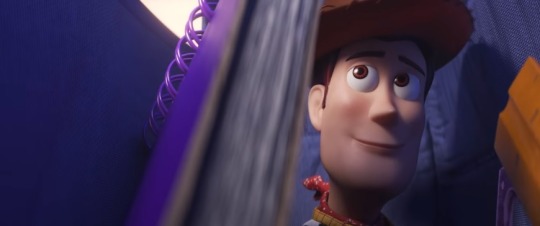
I think we can all agree that Toy Story 3 was a pretty much perfect conclusion to a perfect trilogy right? About as close as is likely to get, I’m sure. I shared the same trepidation when part four was announced, especially after some underwhelming sequels like Finding Dory and Cars 3 (though I do have a lot of time for Monsters University and Incredibles 2). So maybe it’s because the odds were so stacked against this being good but I thought it was wonderful. A truly existential nightmare of an epilogue that does away with Andy (and mostly kids altogether) to focus on the dreams and desires of the toys themselves - separate from their ‘duties’ as playthings to biological Gods. What is their purpose in life without an owner? Can they be their own person and carve their own path? In the case of breakout new character Forky (Tony Hale), what IS life? Big big questions for a cash grab kids films huh?
The animation is somehow yet another huge leap forward (that opening rainstorm!), Bo Peep’s return is excellently pitched and the series tradition of being unnervingly horrifying is back as well thanks to those creepy ventriloquist dolls! Keanu Reeves continues his ‘Keanuassaince‘ as the hilarious Duke Caboom and this time, hopefully, the ending at least feels finite. This series means so much to me: I think the first movie is possibly the tightest, most perfect script ever written, the third is one of my favourites of the decade and growing up with the franchise (I was 9 when the first came out, 13 for part two, 24 for part three and now 32 for this one), these characters are like old friends so of course it was great to see them again. All this film had to do was be good enough to justify its existence and while there are certainly those out there that don’t believe this one managed it, I think the fact that it went as far as it did showed that Pixar are still capable of pushing boundaries and exploring infinity and beyond when they really put their minds to it.
9. The Nightingale

Hoo boy. Already controversial with talk of mass walkouts (I witnessed a few when this screened at Sundance London), it’s not hard to see why but easy to understand. Jennifer Kent (The Babadook) is a truly fearless filmmaker following up her acclaimed suburban horror movie come grief allegory with a period revenge tale set in the Tasmanian wilderness during British colonial rule in the early 1800s. It’s rare to see the British depicted with the monstrous brutality for which they were known in the distant colonies and this unflinching drama sorely needed an Australian voice behind the camera to do it justice.
The film is front loaded with some genuinely upsetting, nasty scenes of cruel violence but its uncensored brutality and the almost casual nature of its depiction is entirely the point - this was normalised behaviour over there and by treating it so matter of factly, it doesn’t slip into gratuitous ‘movie violence’. It is what it is. And what it is is hard to watch. If anything, as Kent has often stated, it’s still toned down from the actual atrocities that occurred so it’s a delicate balance that I think Kent more than understands. Quoting from an excellent Vanity Fair interview she did about how she directs, Kent said “I think audiences have become very anaesthetised to violence on screen and it’s something I find disturbing... People say ‘these scenes are so shocking and disturbing’. Of course they are. We need to feel that. When we become so removed from violence on screen, this is a very irresponsible thing. So I wanted to put us right within the frame with that person experiencing the loss of everything they hold dear”.
Aisling Franciosi is next level here as a woman who has her whole life torn from her, leaving her as nothing but a raging husk out for vengeance. It would be so easy to fall into odd couple tropes once she teams up with reluctant native tracker Billy (an equally impressive newcomer, Baykali Ganambarr) but the film continues to stay true to the harsh racism of the era, unafraid to depict our heroine - our point of sympathy - as horrendously racist towards her own ally. Their partnership is not easily solidified but that makes it all the stronger when they star to trust each other. Sam Claflin is also career best here, weaponizing his usual charm into dangerous menace and even after cementing himself as the year’s most evil villain, he can still draw out the humanity in such a broken and corrupt man.
Gorgeously shot in the Academy ratio, the forest landscape here is oppressive and claustrophobic. Kent also steps back into her horror roots with some mesmerising, skin crawling dream scenes that amplify the woozy nightmarish tone and overbearing sense of dread. Once seen, never forgotten, this is not going to be everyone’s cup of tea (and that’s fine) but when cinema can affect you on such a visceral level and be this powerful, reflective and honest about our own past, it’s hard to ignore. Stunning.
8. The Irishman

Aka Martin Scorsese’s magnum opus, I did manage to see this one in a cinema before the Netflix drop and absolutely loved it. I’ve watched 85 minute long movies that felt longer than this - Marty’s mastery of pace, energy and knowing when to let things play out in agonising detail is second to none. This epic tale of the life of Frank Sheeran (Robert De Niro) really is the cinematic equivalent of having your cake and eating it too, allowing Scorsese to run through a greatest hits victory lap of mobster set pieces, alpha male arguments, a decades spanning life story and one (last?) truly great Joe Pesci performance before simply letting the story... continue... to a natural, depressing and tragic ending, reflecting the emptiness of a life built on violence and crime.
For a film this long, it’s impressive how much the smallest details make the biggest impacts. A stammering phone call from a man emotionally incapable of offering any sort of condolence. The cold refusal of forgiveness from a once loving daughter. A simple mirroring of a bowl of cereal or a door left slightly ajar. These are the parts of life that haunt us all and it’s what we notice the most in a deliberately lengthy biopic that shows how much these things matter when everything else is said and done. The violence explodes in sudden, sharp bursts, often capping off unbearably tense sequences filled with the everyday (a car ride, a conversation about fish, ice cream...) and this contrast between the whizz bang of classic Scorsese and the contemplative nature of Silence era Scorsese is what makes this film feel like such an accomplishment. De Niro is FINALLY back but it’s the memorably against type role for Pesci and an invigorated Al Pacino who steals this one, along with a roll call of fantastic cameos, with perhaps the most screentime given to the wonderfully petty Stephen Graham as Tony Pro, not to mention Anna Paquin’s near silent performance which says more than possibly anyone else.
Yes, the CG de-aging is misguided at best, distracting at worst (I never really knew how old anyone was meant to be at any given time... which is kinda a problem) but like how you get used to it really quickly when it’s used well, here I kinda got past it being bad in an equally fast amount of time and just went with it. Would it have been a different beast had they cast younger actors to play them in the past? Undoubtedly. But if this gives us over three hours of Hollywood’s finest giving it their all for the last real time together, then that’s a compromise I can live with.
7. The Last Black Man in San Francisco

Wow. I was in love with this film from the moving first trailer but then the film itself surpassed all expectations. This is a true indie film success story, with lead actor Jimmie Fails developing the idea with director Joe Talbot for years before Kickstarting a proof of concept and eventually getting into Sundance with short film American Paradise, which led to the backing of this debut feature through Plan B and A24. The deeply personal and poetic drama follows a fictionalised version of Jimmie, trying to buy back an old Victorian town house he claims was built by his grandfather, in an act of rebellion against the increasingly gentrified San Francisco that both he and director Talbot call home.
The film is many things - a story of male friendship, of solidarity within our community, of how our cities can change right from underneath us - it moves to the beat of it’s own drum, with painterly cinematography full of gorgeous autumnal colours and my favourite score of the year from Emile Mosseri. The performances, mostly by newcomers or locals outside of brilliant turns from Jonathan Majors, Danny Glover and Thora Birch, are wonderful and the whole thing is such a beautiful love letter to the city that it makes you ache for a strong sense of place in your own home, even if your relationship with it is fractured or strained. As Jimmie says, “you’re not allowed to hate it unless you love it”.
For me, last year’s Blindspotting (my favourite film of the year) tackled gentrification within California more succinctly but this much more lyrical piece of work ebbs and flows through a number of themes like identity, family, memory and time. It’s a big film living inside a small, personal one and it is not to be overlooked.
6. Little Women

I had neither read the book nor seen any prior adaptation of Louisa May Alcott’s 1868 novel so to me, this is by default the definitive telling of this story. If from what I hear, the non linear structure is Greta Gerwig’s addition, then it’s a total slam dunk. It works so well in breaking up the narrative and by jumping from past to present, her screenplay highlights certain moments and decisions with a palpable sense of irony, emotional weight or knowing wink. Getting to see a statement made with sincere conviction and then paid off within seconds, can be both a joy and a surefire recipe for tears. Whether it’s the devastating contrast between scenes centred around Beth’s illness or the juxtaposition of character’s attitudes to one another, it’s a massive triumph. Watching Amy angrily tell Laurie how she’s been in love with him all her life and then cutting back to her childishly making a plaster cast of her foot for him (’to remind him how small her feet are’) is so funny.
Gerwig and her impeccable cast bring an electric energy to the period setting, capturing the big, messy realities of family life with a mix of overwhelming cross-chatter and the smallest of intimate gestures. It’s a testament to the film that every sister feels fully serviced and represented, from Beth’s quiet strength to Amy’s unforgivable sibling rivalry. Chris Cooper’s turn as a stoic man suffering almost imperceptible grief is a personal heartbreaking favourite.
The book’s (I’m assuming) most sweeping romantic statements are wonderfully delivered, full of urgent passion and relatable heartache, from Marmie’s (Laura Dern) “I’m angry nearly every day of my life” moment to Jo’s (Saoirse Ronan) painful defiance of feminine attributes not being enough to cure her loneliness. The sheer amount of heart and warmth in this is just remarkable and I can easily see it being a film I return to again and again.
5. Booksmart
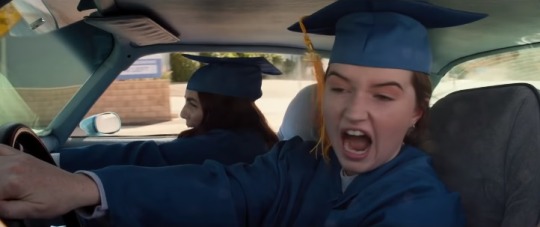
2019 has been a banner year for female directors, making their exclusion from some of the early awards conversations all the more damning. From this list alone, we have Lulu Wang, Jennifer Kent and Greta Gerwig. Not to mention Lorene Scafaria (Hustlers), Melina Matsoukas (Queen & Slim), Jocelyn DeBoer & Dawn Luebbe (Greener Grass), Sophie Hyde (Animals) and Rose Glass (Saint Maud - watch out for THIS one in 2020, it’s brilliant). Perhaps the most natural transition from in front of to behind the camera has been made by Olivia Wilde, who has created a borderline perfect teen comedy that can make you laugh till you cry, cry till you laugh and everything in-between.
Subverting the (usually male focused) ‘one last party before college’ tropes that fuel the likes of Superbad and it’s many inferior imitators, Booksmart follows two overachievers who, rather than go on a coming of age journey to get some booze or get laid, simply want to indulge in an insane night of teenage freedom after realising that all of the ‘cool kids’ who they assumed were dropouts, also managed to get a place in all of the big universities. It’s a subtly clever remix of an old favourite from the get go but the committed performances from Kaitlyn Dever and Beanie Feldstein put you firmly in their shoes for the whole ride.
It’s a genuine blast, with big laughs and a bigger heart, portraying a supportive female friendship that doesn’t rely on hokey contrivances to tear them apart, meaning that when certain repressed feelings do come to the surface, the fallout is heartbreaking. As I stated in a twitter rave after first seeing it back in May, every single character, no matter how much they might appear to be simply representing a stock role or genre trope, gets their moment to be humanised. This is an impeccably cast ensemble of young unknowns who constantly surprise and the script is a marvel - a watertight structure without a beat out of place, callbacks and payoffs to throwaway gags circle back to be hugely important and most of all, the approach taken to sexuality and representation feels so natural. I really think it is destined to be looked back on and represent 2019 the way Heathers does ‘88, Clueless ‘95 or Easy A 2010. A new high benchmark for crowd pleasing, indie comedy - teen or otherwise.
4. Ad Astra
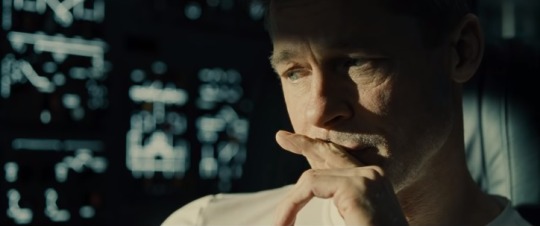
Brad Pitt is one of my favourite actors and one who, despite still being a huge A-lister even after 30 years in the game, never seems to get enough credit for the choices he makes, the movies he stars in and also the range of stories he helps produce through his company, Plan B. 2019 was something of a comeback year for Pitt as an actor with the insanely measured and controlled lead performance seen here in Ad Astra and the more charismatic and chaotic supporting role in Once Upon a Time... in Hollywood.
I love space movies, especially those that are more about broken people blasting themselves into the unknown to search for answers within themselves... which manages to sum up a lot of recent output in this weirdly specific sub-genre. First Man was a devastating look at grief characterised by a man who would rather go to a desolate rock than have to confront what he lost, all while being packaged as a heroic biopic with a stunning score. Gravity and The Martian both find their protagonists forced to rely on their own cunning and ingenuity to survive and Interstellar looked at the lengths we go to for those we love left behind. Smaller, arty character studies like High Life or Moon are also astounding. All of this is to say that Ad Astra takes these concepts and runs with them, challenging Pitt to cross the solar system to talk some sense into his long thought dead father (Tommy Lee Jones). But within all the ‘sad dad’ stuff, there’s another film in here just daring you to try and second guess it - one that kicks things off with a terrifying free fall from space, gives us a Mad Max style buggy chase on the moon and sidesteps into horror for one particular set-piece involving a rabid baboon in zero G! It manages to feel so completely nuts, so episodic in structure, that I understand why a lot of people were turned off - feeling that the overall film was too scattershot to land the drama or too pondering to have any fun with. I get the criticisms but for me, both elements worked in tandem, propelling Pitt on this (assumed) one way journey at a crazy pace whilst sitting back and languishing in the ‘bigger themes’ more associated with a Malik or Kubrick film. Something that Pitt can sell me on in his sleep by this point.
I loved the visuals from cinematographer Hoyte van Hoytema (Interstellar), loved the imagination and flair of the script from director James Gray and Ethan Gross and loved the score by Max Richter (with Lorne Balfe and Nils Frahm) but most of all, loved Pitt, proving that sometimes a lot less, is a lot more. The sting of hearing the one thing he surely knew (but hoped he wouldn’t) be destined to hear from his absent father, acted almost entirely in his eyes during a third act confrontation, summed up the movie’s brilliance for me - so much so that I can forgive some of the more outlandish ‘Mr Hyde’ moments of this thing’s alter ego... like, say, riding a piece of damaged hull like a surfboard through a meteor debris field!
3. Avengers: Endgame
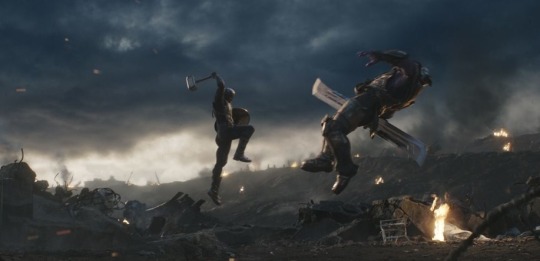
It’s no secret that I think Marvel, the MCU in particular, have been going from strength to strength in recent years, slowly but surely taking bigger risks with filmmakers (the bonkers Taika Waititi, the indie darlings of Ryan Coogler, Cate Shortland and Chloe Zhao) whilst also carefully crafting an entertaining, interconnected universe of characters and stories. But what is the point of building up any movie ‘universe’ if you’re not going to pay it off and Endgame is perhaps the strongest conclusion to eleven years of movie sequels that fans could have possibly hoped for.
Going into this thing, the hype was off the charts (and for good reason, with it now being the highest grossing film of all time) but I remember souring on the first entry of this two-parter, Infinity War, during the time between initial release and Endgame’s premiere. That film had a game-changing climax, killing off half the heroes (and indeed the universe’s population) and letting the credits role on the villain having achieved his ultimate goal. It was daring, especially for a mammoth summer blockbuster but obviously, we all knew the deaths would never be permanent, especially with so many already-announced sequels for now ‘dusted’ characters. However, it wasn’t just the feeling that everything would inevitably be alright in the end. For me, the characters themselves felt hugely under-serviced, with arguably the franchise’s main goody two shoes Captain America being little more than a beardy bloke who showed up to fight a little bit. Basically what I’m getting at is that I felt Endgame, perhaps emboldened by the giant runtime, managed to not only address these character slights but ALSO managed to deliver the most action packed, comic booky, ‘bashing your toys together’ final fight as well.
It’s a film of three parts, each pretty much broken up into one hour sections. There’s the genuinely new and interesting initial section following our heroes dealing with the fact that they lost... and it stuck. Thor angrily kills Thanos within the first fifteen minutes but it’s a meaningless action by this point - empty revenge. Cutting to five years later, we get to see how defeat has affected them, for better or worse, trying to come to terms with grief and acceptance. Cap tries to help the everyman, Black Widow is out leading an intergalactic mop up squad and Thor is wallowing in a depressive black hole. It’s a shocking and vibrantly compelling deconstruction of the whole superhero thing and it gives the actors some real meat to chew on, especially Robert Downy Jr here who goes from being utterly broken to fighting within himself to do the right thing despite now having a daughter he doesn’t want to lose too. Part two is the trip down memory lane, fan service-y time heist which is possibly the most fun section of any of these movies, paying tribute to the franchise’s past whilst teetering on a knife’s edge trying to pull off a genuine ‘mission impossible’. And then it explodes into the extended finale which pays everyone off, demonstrates some brilliantly imaginative action and sticks the landing better than it had any right to. In a year which saw the ending of a handful of massive geek properties, from Game of Thrones to Star Wars, it’s a miracle even one of them got it right at all. That Endgame managed to get it SO right is an extraordinary accomplishment and if anything, I think Marvel may have shot themselves in the foot as it’s hard to imagine anything they can give us in the future having the intense emotional weight and momentum of this huge finale.
2. Knives Out

Rian Johnson has been having a ball leaping into genre sandpits and stirring shit up, from his teen spin on noir in Brick to his quirky con man caper with The Brothers Bloom, his time travel thriller Looper and even his approach to the Star Wars mythos in The Last Jedi. Turning his attention to the relatively dead ‘whodunnit’ genre, Knives Out is a perfect example of how to celebrate everything that excites you about a genre whilst weaponizing it’s tropes against your audience’s baggage and preconceptions.
An impeccable cast have the time of their lives here, revelling in playing self obsessed narcissists who scramble to punt the blame around when the family’s patriarch, a successful crime novelist (Christopher Plummer), winds up dead. Of course there’s something fishy going on so Daniel Craig’s brilliantly dry southern detective Benoit Blanc is called in to investigate.There are plenty of standouts here, from Don Johnson’s ignorant alpha wannabe Richard to Michael Shannon’s ferocious eldest son Walt to Chris Evan’s sweater wearing jock Ransom, full of unchecked, white privilege swagger. But the surprise was the wholly sympathetic, meek, vomit prone Marta, played brilliantly by Ana de Armas, cast against her usual type of sultry bombshell (Knock Knock, Blade Runner 2049), to spearhead the biggest shake up of the genre conventions. To go into more detail would begin to tread into spoiler territory but by flipping the audience’s engagement with the detective, we’re suddenly on the receiving end of the scrutiny and the tension derived from this switcheroo is genius and opens up the second act of the story immensely.
The whole thing is so lovingly crafted and the script is one of the tightest I’ve seen in years. The amount of setup and payoff here is staggering and never not hugely satisfying, especially as it heads into it’s final stretch. It really gives you some hope that you could have such a dense, plotty, character driven idea for a story and that it could survive the transition from page to screen intact and for the finished product to work as well as it does. I really hope Johnson returns to tell another Benoit Blanc mystery and judging by the roaring box office success (currently over $200 million worldwide for a non IP original), I certainly believe he will.
1. Eighth Grade

My film of the year is another example of the power of cinema to put us in other people’s shoes and to discover the traits, fears, joys and insecurities that we all share irregardless. It may shock you to learn this but I have never been a 13 year old teenage girl trying to get by in the modern world of social media peer pressure and ‘influencer’ culture whilst crippled with personal anxiety. My school days almost literally could not have looked more different than this (less Instagram, more POGs) and yet, this is a film about struggling with oneself, with loneliness, with wanting more but not knowing how to get it without changing yourself and the careless way we treat those with our best interests at heart in our selfish attempt to impress peers and fit in. That is understandable. That is universal. And as I’m sure I’ve said a bunch of times in this list, movies that present the most specific worldview whilst tapping into universal themes are the ones that inevitably resonate the most.
Youtuber and comedian Bo Burnham has crafted an impeccable debut feature, somehow portraying a generation of teens at least a couple of generations below his own, with such laser focused insight and intimate detail. It’s no accident that this film has often been called a sort of social-horror, with cringe levels off the charts and recognisable trappings of anxiety and depression in every frame. The film’s style services this feeling at every turn, from it’s long takes and nauseous handheld camerawork to the sensory overload in it’s score (take a bow Anna Meredith) and the naturalistic performances from all involved. Burnham struck gold when he found Elsie Fisher, delivering the most painful and effortlessly real portrayal of a tweenager in crisis as Kayla. The way she glances around skittishly, the way she is completely lost in her phone, the way she talks, even the way she breathes all feeds into the illusion - the film is oftentimes less a studio style teen comedy and more a fly on the wall documentary.
This is a film that could have coasted on being a distant, social media based cousin to more standard fare like Sex Drive or Superbad or even Easy A but it goes much deeper, unafraid to let you lower your guard and suddenly hit you with the most terrifying scene of casually attempted sexual aggression or let you watch this pure, kindhearted girl falter and question herself in ways she shouldn’t even have to worry about. And at it’s core, there is another beautiful father/daughter relationship, with Josh Hamilton stuck on the outside looking in, desperate to help Kayla with every fibre of his being but knowing there are certain things she has to figure out for herself. It absolutely had me and their scene around a backyard campfire is one of the year’s most touching.
This is a truly remarkable film that I think everyone should seek out but I’m especially excited for all the actual teenage girls who will get to watch this and feel seen. This isn’t about the popular kid, it isn’t about the dork who hangs out with his or her own band of misfits. This is about the true loner, that person trying everything to get noticed and still ending up invisible, that person trying to connect through the most disconnected means there is - the internet - and everything that comes with it. Learning that the version of yourself you ‘portray’ on a Youtube channel may act like they have all the answers but if you’re kidding yourself then how do you grow?
When I saw this in the cinema, I watched a mother take her seat with her two daughters, aged probably at around nine and twelve. Possibly a touch young for this, I thought, and I admit I cringed a bit on their behalf during some very adult trailers but in the end, I’m glad their mum decided they were mature enough to see this because a) they had a total blast and b) life simply IS R rated for the most part, especially during our school years, and those girls being able to see someone like Kayla have her story told on the big screen felt like a huge win. I honestly can’t wait to see what Burnham or Fisher decide to do next. 2019 has absolutely been their year... and it’s been a hell of a year.
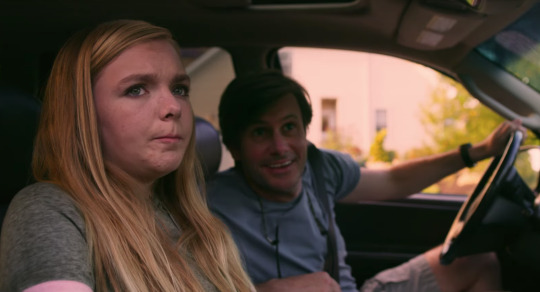
#top 20#films of the year#films of 2019#10-1#toy story 4#the nightingale#the irishman#the last black man in san francisco#little women#booksmart#ad astra#avengers endgame#knives out#eighth grade
77 notes
·
View notes
Text
Masterlist of Spring Roulette 2020
Thank you everyone for giving this a go. It was a fun round and all gifts are now posted. We will return to our regular method of matching in our next exchange and we look forward to your participation.
Here is a compiled list of everyone’s prompts from this round – thank you for letting us post them, and we hope you guys enjoy them! If you use a prompt, please let us know and we’ll reblog your piece!
Prompts are organized by their submitter, so feel free to ctrl+f to find character-specific prompts.
theallknowingowlagain
Girls’ night with Sachiko and Sayu
Five times Beyond Birthday lost to A, and one time he came out on top
Office AU
A date with Naomi and Raye
What L sees in the dark
L as an actual frog, Light as whatever animal you prefer
hazblogs
Naomi Misora and BB have a fun time looking for clues for the LABB murders, with cheeky banter and Naomi getting a little attached to Beyond
L wins AU, where Light never recovers his memories, but Misa did (following canon). explore how L, knowing that Light is Kira but being unable to either prove it without making Light a criminal, deals with the whole "Light is Kira but he doesn't remember it" situation
Mello is a witch and Near is a vampire he's been hunting for a long time - maybe to discover that he was chasing the wrong target all along
Mello and Near hugging, if possible in casual clothes
Light's mind-shelter, the place in his head he retreats to when the pressure of being Kira becomes too much and he starts to doubt (extremely early in the manga or post L's death)
Naomi Misora and L wearing traditional japanese yukatas at a summer festival
missmomentss
Beyond Birthday going a blind date with A
L meeting Beyond Birthday for the first time
Misa and L have a sleepover party
A switched roles with Beyond Birthday
Sayu is Kira
Mello meeting Beyond Birthday in prison
almostsane-things
DN cast goes to college together, has some unfortunate roommate matches, hijinx ensue
The Kira case from Sayu or Sachiko's POV
AU where Soichiro actually dies from the heart attack he had in the first arc and Light is accused of murdering his dad.
Lowlightprimed AU: The fight between B and L at Wammy's house at the end of the first arc (BBAL)
Lidner and Misora go on an undercover mission on Halloween
Near in harajuku fashion(s), creatively dyed hair is a plus
Beyond Birthday dressed as Winnie the Pooh and eating jam out of a honey-pot.
Mourning the death of various DN characters (Who gets large crowds? Who gets one or two heartfelt mourners? Who gets mourned by no one at all?)
Fake dating sim screenshot featuring character of your choice
beyondplusultra
Wammy House-era Near, Mello, and Matt trying to give L something for Valentine's Day.
The origin of the "Dear Mello" photograph.
Mikami being catfished by Beyond Birthday.
Anything involving Mello, Matt, and Near hanging out (as friends, romantically, or with one of them third-wheeling is fine).
Sayu giving Light his obligatory Valentine's chocolate at his grave.
Light surrounded by chibi versions of the other Kiras, who are clambering over one another to try and be the first to give him their chocolate.
jeepersjeevas
(Anyone!) Person A comes home during a blizzard covered in snow and all grumpy. Person B warms them up with their pj’s and cuddles
Matt/Mello: They get into a heated argument over something trivial in canon. They say some pretty harsh stuff to each other, but make up later
Wammy’s Kids: In which they all sneak out one night to go to the drug store. Upon discovering they’ve forgotten their money they decide to shoplift, using B as their distraction.
B and Matt as best friends post-timeskip
L hardcore crushing on Misa, and she lowkey liking him back (canon)
Makeshift boyband in someone’s garage. Löded Diper vibes. B’s lead singer
jeevas-exe
mello & matt but they have magical powers au
fem!light and takada but one of them borrows a book and doesn't return it so they have to find each other au
canon-compliant character study on sayu, post-canon (when Light dies); pre-canon L first getting into the kira case
au where Light and L become accidental roommates because SOMEONE forgot to pay rent
canon-compliant Mello and Matt find each other between the explosion and the ending
Light and L in some ugly fashion, like dads-on-vacation-in-Florida fashion
Naomi Misora with lots of tattoos!
Rem and Ryuk in human form, with some punk fashion
complicatedmerary
Light and Sayu bake a cake for a birthday surprise party for either parent (Soichiro or Sachiko) of your choice. A lot of family silliness and sibling bickering.
Light and Misa's first official romantic date was a disaster. While it does not shake Misa's devotion, her feelings are hurt.
Death Note is a reality TV show. Yes, there's still a Kira to be caught, but cameras are now involved! The more dramatic, the better!
Mikami and Takada walking side by side out in the winter.
L meeting Wedy and Aiber for the first time.
Demegawa being pampered like the king he believes he is.
babelfell
Reverse!Noel AU (Noel by TzviaAriella): Light won, and threw Near in the cage meant for himself. It's been three years since his victory, and he's starting to get lonely; he goes down to taunt Near. (NOT SHIPPY. Disgusting rivals only, thank u).
Terrace House AU (or 'we all are strangers and have to live together' reality show AU) with the Death Note cast.
Pirate!AU. L is the captain of the ship, and Light is his first mate and plotting a mutiny with his most 'trusted' crew: Takada and Mikami. It's all going well until Misa hears about the plot and wants in...
Light/Near dating sim CG.
Beach Episode feat. Light and Mikami getting iced drinks under an umbrella.
Kiyomi Takada and/or Teru Mikami in a kimono, having tea alone or with one another.
Anonymous
A holiday at Wammy's House (could be Christmas, Halloween, Valentine's day, etc)
Raye and Naomi's first date
LABB beach episode
Older Light braiding Near's very long hair
Naomi and cats
Spider-Man meme but it's L (from the anime/manga) and L (from the 2015 tv drama)
In a no!kira world, both fem!L and fem!light have a crush on misa. how do they try to impress her?
Beyond Birthday “accidentally” (its totally on purpose, he just doesn’t want to admit it) gets involved with the Kira case, and he and Misa become friends while they both annoy light.
Light Yagami wakes up in his teenage bedroom after he died at the Yellow Box warehouse. He still has all his memories, and it’s exactly one day before he originally found the death note.
The Kira case ended years ago, the Wammy’s House is shut down. Only very few of the original Wammy’s kids are still in touch with each other. Linda hasn’t talked to anyone from Wammy’s in years. One day, Near knocks on the front door of her atelier in LA.
Light Yagami is for whatever reason a Wammy’s kid. (Pre-canon, so not even LABB has happened yet, and we’re ignoring the timeline, so L, Light, Beyond, and the other Wammy’s kids (Near, mello, matt, linda) are all the same age.) Chaos ensues.
Fantasy!AU. The noble knight Light Yagami was tasked with slaying the “evil” monster Ryuk. On his journey through a fantasy land while trying to find and defeat the beast he meets many people, like the cutesy goth witch Misa Amane, the baker’s son L Lawliet (Watari’s the baker) and his twin Beyond Birthday, or the group of 4 students from a wealthy orphanage (Wammy’s House is the orphanage, Linda, Matt, Mello, and Near are the students).
Misa posing, while Linda is painting her.
Misa, L, and Light in modern fashion (Misa as an egirl, what fashion L & light wear is ur choice!!)
Misa’s reaction after she used the death note for the first time, viewed through the shinigami eyes. (Maybe she’d also have some blood on her clothes)
An interaction of Mello and Near pre-canon when they were still in Wammy’s House.
A drawing of the characters mentioned the fantasy!au fanfic prompt, goofing off. (doesn’t have to be all characters, just choose the ones you wanna draw!!)
Misa Amane sitting in a Wammy’s House foyer with the Wammy’s kids (Near, Mello, Matt, Linda). They’re all the same age, Misa’s also a Wammy’s kid.
Several years post-canon, Near decides to (or has to because circumstances) tell Sachiko and Sayu the truth about Light.
Pre-canon Light and Yamamoto hanging out at an arcade, being early 2000s teens in peace.
Actor AU. Light is a young Japanese actor getting his first Hollywood role under L, a notoriously difficult director who never shows his face. (Not Lawlight, other ships welcome.)
Near and Light playing a piano duet.
Naomi kicking ass in her wedding dress in a Kill Bill-esque fashion.
Ryuk trying to play Switch and struggling to use the Joycons with his huge hands, to Light's amusement.
14 notes
·
View notes
Text
ok so i feel like telling the world my bias list (kpop) for no reason and i was a little scared to but oh well lol
im gonna do this in parts. this list is my bias’ in boygroups pt.1
soo yeah if you wanna see some beautiful asian men you can keep reading lol
kinda turned out long oop
imma do nct on another post bc thats fucking loonngggg
1. kim hongjoong; stage name: hongjoong (leader of ateez, rapper, lyricist, producer and composer (i forget if those are the same thing) )
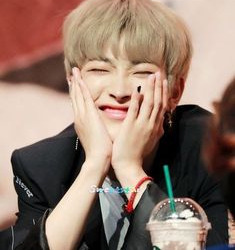
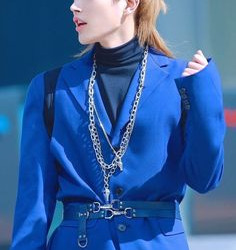
king of the lesbians
personally i think hes SOME type of gay but, y’know, you do you baby (’good lil boy’ is the song he wrote on their new album akjsdl)
prince of mullets in kpop (king is minghao from seventeen)
so?? pretty???
he paints his nails for the polished man campaign!!! (this was before the group became ambassadors.) v socially aware as well
his voice is very high for a rapper but i rly love it
wanna hear what he thinks of atinys?? (the fandom) listen to ‘aurora’
korean big minion
very very good at english, despite what he says
is so caring for his ‘children’ ugh such an amazing leader
also a little brat sometimes but we dont talk about it
a MAN
fuck gender roles
5′7 skirt guy you’ve probably heard of in the kpop tiktok community
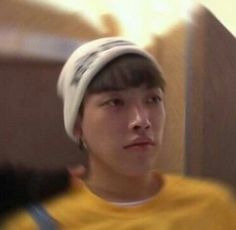
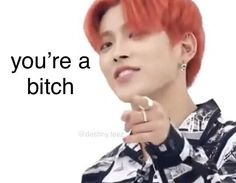
the official campaign pic:
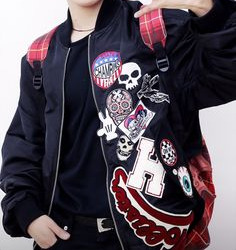
2. han jisung; stage name: han (main rapper of stray kids, lead vocalist, producer and composer, lyricist, ult bias uwu)
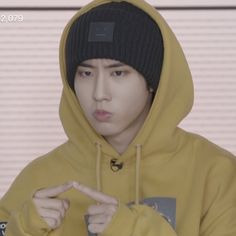
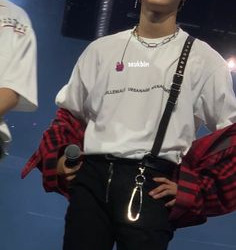
heres the tea
this man literally saved my life
he has been through so much and i relate to that. seeing that he made it through the worst gave me hope.
his music and lyrics just speak to me (wanna see me cry? send me the song ‘19′, its written by him)
on to the happier things
his s q u i r r e l c h e e k s
hes honestly so pleasing to look at ugh
vocals????? fricking great???? listen to ‘hellevator’ and ‘district 9′ for his vocals
jEoGiYa NoOnA HoKsI nAmJaChInGu IsSeOyO (’wow’ 3RACHA)
part of 3RACHA, a rap group between him and two other members
his american name is peter and he loves nat geo wild and cheesecakes and honestly if thats not amazing idk what is
lived in malaysia??? for 6 years???? lovin the melanin y’all
THE FUNNIIEST MAN ALIVE Y’ALL WAIT PLEASE WATCH THIS VIDEO IDK WHY BUT ITS SO FUNNY TO ME
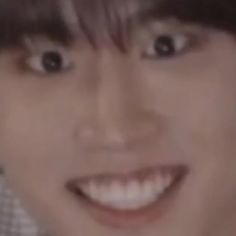
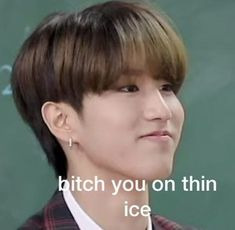
3. im changkyun; stage name: I.M. (lead rapper of monsta x, sub-vocalist, maknae (the youngest), producer and composer)

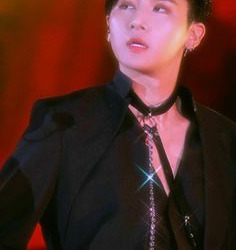
fam im WHIPPED for this man like honestly i dont like subbing or sex in general lol ace things but i’d let him r a i l me
lived in america for 3 years and israel for 4; speaks fluent english and its SEXY
rapping skills??? on point???? both in english and korean ugh
LOOK AT HIM HIS DIMPLES AND HIS FACE AND UGH
is one of those people that does n o t like to be touched but then he’ll kiss your cheek out of nowhere
babie
VERY SOCIALLY AWARE LIKE HE SAID FUCK TOXIC MASCULINITY AND MISOGYNY
confident in his own skin and super open about it
“For IM, ‘Wearing a harness is just to express our song concept. Showing the audience what we want to show is the most important thing. We’re not ashamed. We’ve done a lot of sexual items, like harnesses and chains. We’re comfortable.’ “
“But, for argument’s sake, where does your own sense of masculinity come from? IM pauses for a long moment. ‘Having a dick,’ he says bluntly, sipping coffee as his bandmates’ jaws drop and shocked laughter ripples around the table.”
that interview is here
kinky lil bitch
i can go on and on about this man but im just gonna stop there
i lied he has tattoos (one on his wrist [ :): ] and the one on the nape of his neck, it reads “the one who wants to wear the crown must bear the crown”)
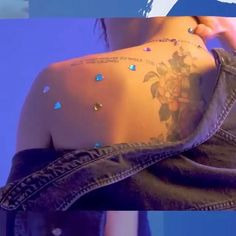
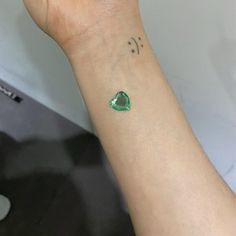
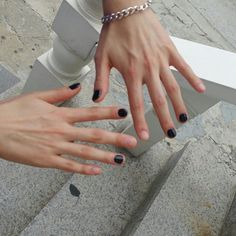
i like this picture bc its his hands and theyre pretty and fuck gender roles from a kpop idol
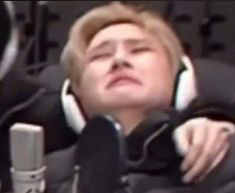
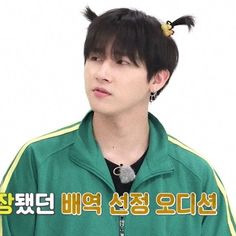
thats enough of him
4. kim wonpil; stage name: wonpil (pianist, synthesizer, and keyboardist in day6, lyricist, vocalist, also a a dj and mc for a podcast)
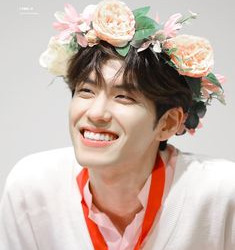
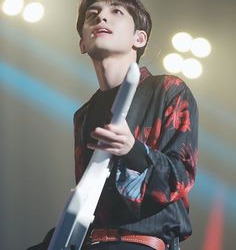
Y’ALL LOOK AT HIM UGH
was the maknae but then dowoon came along and now hes not lol
Unbothered™
honestly like hes such a good pianist and is really great on the keys
is really good at making song lyrics out of thin air
like, he can hear the sentence “i really want chicken rn but i can’t have it im on a diet” and he’ll get “i crave your taste, but there is a wall i built myself blocking you from my love” like literally
im pretty sure he wrote the chorus for their song ‘zombie’
honestly bruh his vocals are so good
like pls go listen to ‘emergency’ and ‘congratulations’ (theres an english version for that song alsjdk)
guys hes just a big babie honestly
so pretty to look at omg
HES SO FUNNY AND HE DOESNT EVEN KNOW IT
“i dont really care what my spouse looks like or what gender they are, as long as we’re happy and they love me” (wish i could find that photoset)
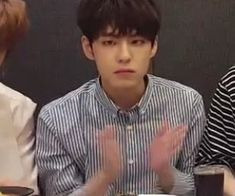
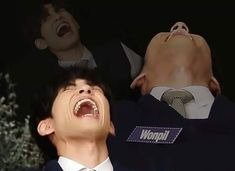
5. kim namjoon: stage name: RM (leader of bts, main rapper, sub-vocalist, lyricist, producer and composer)
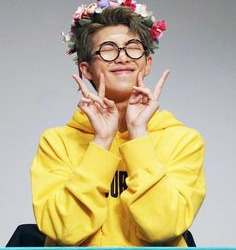
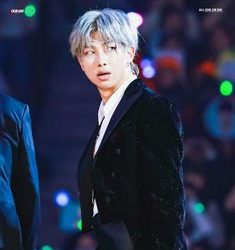
literally the reason im into kpop, so thank you namjoon
a 5′11 babie, tbh
i remember finding out he had his own like, mixtape (’mono.’) and iT WAS SO GOOD AND IT STILL IS KAJHDJ
an amazing rapper and leader
can sing and i do not CARE what anyone says
so as you can see by now i kinda of have a type (except wonpil, idk wtf is going on there with me biasing him laksjk #no regrets)
anyway yeah he was the first kpop boy i found, and it was on his birthday
so every year on september 11th 11:50 p.m., i start i planting a tree in my backyard (bc then its on his birthday in america and korea lakajs so quirky i know) also bc its the day i started listening to kpop so its an anniversary for me lol.
mOoNcHiLd
very very psychological
also very inspiring and loving (to the fans)
doesn’t really show affection, hes better with words than actions, and i really relate to that
dimples aGAIN

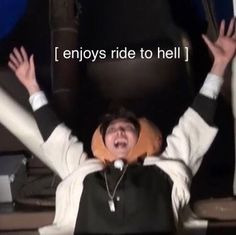
and last but not least for this list bc its already so frickin long
6. byun baekhyun; stage name: baekhyun (main dancer of exo, main singer, sub rapper, pianist, actor)
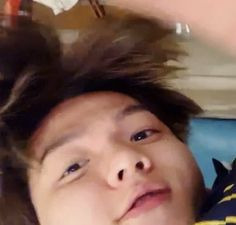
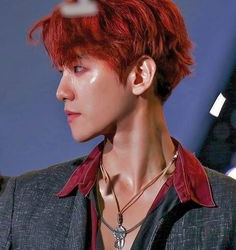
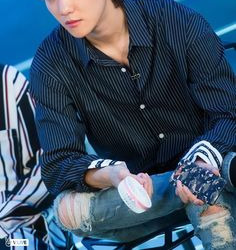
he’s so talented???? and amazing???? and overall just kinda perfect??????
AMAZING FUCKING VOCALS LIKE Y’ALL GO GO GO GO GOGOOG OG LISTEN TO HIS GROUPS SONG ‘ONE (MONSTER AND INFINITY)′ BECAUSE THAT SHIT SLAPS UGH
AND LIKE GROWL??? BRO????? MY VOCAL CORDS SNAPPED
dated another idol in the past but personally i think he’s a little *hand goes limp* if you know what i mean
my sister (4) calls him bacon he said it in an interview one time and it stuck to her
chesticles
MONSTER ERA UGH GOT ME DEAADDDD
is a solo artist too!!!!!!! go listen to his albums!!!! theyre really good!!!!
hes so frickin funny omg like i can laugh at with him all day
understands english but refuses to speak it
honestly kokobop baek was amazing idc what anyone says
is in like 3 different groups damn (like two of them are sub-units of his group and the other one is superm lol)
pls go watch the ‘men on a mission’ episodes with exo bc hes so fucking hilarious i will never get over it
a clown ass bitch that is always ready to square tf up a caring and v nice person that wont fight anyone ever
AN AMAZING ACTOR OMMGGGG BABIE GOT SKILLS
can also tapdance
lots of video games
very very very very very loud when playing video games
another man i endlessly love
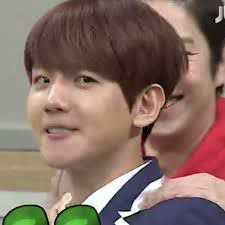
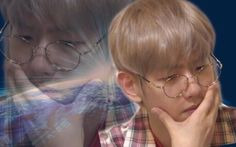
well. if you made it this far, congrats!!! and thanks!!! i honestly dont care if no one sees this lol i just kinda wanted to do it, so, yeah lol. theres still more groups (superm, nct (seperate post), seventeen, vixx, pentagon, the rose, annnd oneus)then like idk if i’ll do a soloist one, so yeah. this kinda gives me something to do its one big infodump and im sorry lmao. yeah, love y’all !!!
1 note
·
View note
Text
‘Dissent’ – Rough plot outline. Chapters 1, 2, 3 and 4.
Sodor is a supposed ‘safe haven’ where things are a lot better than the rest of the world, after a terrible disease strikes the planet and wipes out a staggering and concerning percentage of the human race, there are very few safe parts of the planet left. At a loss as to what to do, people from all over the world finally put aside any differences and set out to both recover from the damage the disease had caused, and find a way to keep the world running and operational while the human race is given a chance to recover.
The solution? Make machines with sentience, to carry out each and every job that humanity now finds itself quite unable to do, since there are so few of them left.
‘Dissent’ was a work of fiction intending to focus on the rules of robotics, and how, perhaps out of desperation on the part of humans, those rules end up twisted and sometimes completely broken.
It was, simply; a ‘humanised’ and dark take on Thomas the Tank Engine, if you can even call that simple. I wasn’t intending for the story to be a particularly long one, or to be one that was taken seriously, but I believe I made a bit of a mistake in thinking that I could make a whole comic depicting the story. But hopefully with this rough plot outline, I can at least tell the story I intended to tell, maybe one day I’ll have the time and the resources to pick up this story again, but for now I hope this will suffice for anybody who was left disappointed.
1. Who on Earth was Smudger?
The story of Dissent happens in two parts, one for the build up to the main climax, and the second to gradually come down from that climax. I’ll be popping the first four chapters into this post, and carrying on in another post, so I’m not giving you guys literal walls here.
The story focuses largely on Duke’s neck of the woods, the Mid Sodor Railway, but in the era before Stuart/Peter Sam and Falcon/Sir Handel showed up; mainly it was going to focus on the turbulent and painful relationship between Duke, Stanley(NG) and perhaps the most elusive character in the whole story; Smudger.
‘Dissent’ begins much like the ‘Sleeping Beauty’ story of canon begins; with a team of rescuers setting out to find the legendary ‘Duke’, an engine built for the Duke of Sodor, who I imagine was quite a kindly man, who’s character and morals Duke emulated quite a lot, or at least tried to emulate.
I remember deciding that the reason Duke why was stored away when humanity really needed every single engine it could get it hands on – was because he was an older model – as time went on and as humanity got better and better at making these sentient machines, Duke would have eventually been considered a very early model, still completely functional, but a little cumbersome compared to newer, modern models. I believe that the main reason for his rescue was the sentimental value attached to him, the Duke of Sodor was no doubt a very important man to the people of Sodor in such trying times.
Again, much like ‘Sleeping Beauty’, the rescuers find Duke after one of their party falls through the roof of his shed, they light his fire in order for him to wake up and regain the ability to talk, and soon explain to him who they are and why they’re here.
As the story goes, Duke is returned to the Skarloey railway, where he is first reunited with Stuart and Falcon, now named Peter Sam and Sir Handel.
Duke has quite a lot of trouble with these name changes, the two younger engines put it down to him being old and having “so much to remember already!” but Duke’s memory issues play quite a big role in the first part of ‘Dissent’.
All seems well and good, until Duke falls asleep (as if he hadn’t got enough in his shed.) and wakes up to find that two new engines have returned home from the day’s work; the two oldest on the railway, Rheneas and Skarloey, the latter of which strikes up a conversation.
Skarloey talks a lot, he’s hasty to introduce himself and welcome Duke to the railway, also to make a passing comment on how “It’s quite nice to have someone our age around here; we’ve had quite a ride with the younger engines, haven’t we Rheneas?”
Rheneas makes a point to keep to himself until now, so Duke – half asleep still – probably hasn’t focused on the other engine as of yet. But when he does, something very large, and very unpleasant stirs in his mind. Groggy as he is, he scrambles up from his chair and grasps Rheneas’ hands in his.
“I haven’t seen you in decades, Smudger!”
There’s silence.
Skarloey is the first to break it, though he doesn’t sound quite as chipper as before; which is to be expected since there’s an excitable stranger yelling at his best friend. He gently prises Duke off of Rheneas with a calm explanation; “Duke? This is Rheneas, our number 2. I don’t think either of us have ever met you before, perhaps… You’re mistaking him for some other engine?”
Rheneas is understandably shaken up, but he gladly accepts the apology from Duke, he’s an old engine himself and he’s probably seen weirder shit in all of his time on Sodor. Duke stays subdued for the rest of the evening, even after the rest of the engines finish up work, and even after Peter Sam and Sir Handel do their best to make him feel at home, Duke’s mind is stuck on one, disturbing question.
“Who on earth was ‘Smudger’?”
2. The Old Warrior.
There’s a brief time skip of about three weeks I think I decided, and the next scene starts out with Duke dreaming a confusing set of dreams.
It’s the same series of dreams he’s been having ever since he arrived at the Skarloey railway. He’s back in the sheds at Mid Sodor, he’s not alone in the room however, there’s another engine in the shed, fiddling about with a phonograph sitting on a small wooden table. His paint job definitely looks green to Duke, but when he crosses the room to greet his fellow engine, it always turns out to be Rheneas, looking incredibly confused…
Duke wakes to utter bedlam in the Skarloey sheds, rock n’ roll rider Duncan won’t shut up about something; a new engine coming to the railway? Damn, fair dos. Duncan’s friend and possibly also his part-time counsellor, Rusty explains to Duke that Duncan is upset about a ‘ghost engine’ coming to work on the Skarloey railway, an engine who was found lurking about an old mine. Duncan is convinced that the engine is some demonic entity, but – as usual – all it takes is a few words from Rusty to get him to pipe down.
The so-called ‘demonic’ engine is also known as the Old Warrior, though – like in canon – his name is Bertram, and nobody quite knows how he even got to the mines in the first place. Mister Percival – who has managed to escape the disease that has ravaged humanity somehow– explains to the engines that Bertram will be joining them to assist with the workload, since he really doesn’t have anywhere to go. Duke chats idly with a concerned Peter Sam about the state of Duke’s boiler – which is giving him quite a considerable amount of trouble, so considerable in fact that it’s now become pretty difficult for him to do the same work as the others. As is always the case with Thomas the Tank Engine, there’s “no money to repair him” so Duke has to make do with a shoddy ass boiler.
As the day goes on, and the sun starts going down, Bertram arrives, and the first thing he does besides let Mister Percival welcome him, is give Duke the filthiest look he can muster, so filthy in fact that it takes Peter Sam and Sir Handel aback, the latter worriedly asks;
“Have you met him before, Granpuff? It looks like he recognises you.”
Duke denies any knowledge of Bertram, but still chooses to give him a wide birth until that evening, when everyone is back inside the sheds, and he kind of can’t steer clear of him any longer. Duncan however is still doing his very best to stay the hell away from Bertram, but the latter is a little preoccupied with talking to Rheneas and Skarloey, mainly about his time in the mines, and how he got his nickname, “The Old Warrior.”
Duke – in spite of himself – snorts a little at this title, which of course pisses Bertram RIGHT off. The two have a little mini stand off in the sheds, with Bertram telling the old man to do one, and Duke telling him to “watch your tongue young’un, I’m very important to this railway.”
However, throughout the argument, Duke’s memory jolts again, and for a second he’s standing back in the sheds on Mid Sodor, arguing with someone, he can’t make out the engine’s face, but their fists are clenched and they’re yelling fit to burst.
The argument eventually ends with Bertram storming out of the sheds, and Duncan slyly commenting; “Oy, lads, I’ve changed my mind. I like him.”
3. Rain, rain, go away.
The following day, Duke is left alone in the sheds because of his boiler, and because of the rain PISSING down. Everybody else complains loudly about having to go out in it, but they’re all young-ish and in perfect working order so they all leave. Duke is left alone with nothing but his thoughts of Bertram after saying a quick goodbye to Peter Sam and Sir Handel, but those thoughts are quickly interrupted by Bertram himself as the Old Warrior comes crashing through the shed doors, soaking wet, and demanding to be given a towel to dry himself off with; he’s panicked and almost deranged.
Duke, still salty but generally being a kindly soul, makes sure to help Bertram dry himself off, all the while giving him breathing exercises, telling him to empty his mind – kinda useless shit – but it helps to calm Bertram down, and soon the latter is completely dry. He’s embarrassed, but he begrudgingly explains himself to Duke.
“I don’t like water. I can take rain, but when it’s lashing down like this, I can’t stand it. It suffocates me, I can’t see where I’m going and I can feel the stuff seeping into the grate on my back, even if I’ve closed it. I hate it, and don’t think I’m about to tell you why; it’s personal.”
Duke doesn’t ask, he’s not about to repeat last night after all, and soon enough Bertram relaxes, and Duke finds him to be oddly agreeable. Bertram quietly strikes up a conversation about how and why Duke was found, and the two talk for a little while, however at some point Duke mentions his weird ass dreams, and Bertram’s interest is immediately piqued. The Old Warrior asks Duke if there was anything he had forgotten, and of course Duke insists that his memory is fine, but he offers to ‘humour’ Bertram, and asks him what he would have him do if he had in fact forgotten something.
Bertram ponders if Duke had left anything of importance behind in his shed back on Mid Sodor. It’s an oddly specific question, but trust me, it isn’t just specific by pure chance, Bertram clearly knows something, but Duke’s mind really isn’t in a position to think about it in depth. Instead, he ponders back to his old shed, and soon realises that there were a few things he had forgotten to ask the rescuers to bring up to Skarloey; a picture of his Grace the Duke of Sodor, a few books, and a little, unexciting black box that he kept on the bottom shelf next to his books.
Duke is completely unaware as to why his brain has singled out that particular box, but Bertram immediately pounces on it, demanding that Duke go and get it immediately. Duke reluctantly agrees, mainly on the basis that if his brain coughed that box up out of everything else he had owned on Mid Sodor, it must be important.
Soon, the pair reach a bit of a truce, and apologies are exchanged about the previous night, they carry on talking until the rain stops, and Bertram is able to go back out and resume his work.
He doesn’t, though, preferring instead to sit with Duke.
4. Miss Cora.
New character oh boy.
A woman is trying to come into the Skarloey Railway, she’s visiting from her usual residence, which is quite a long way out of town. She’s been stopped at a checkpoint and is having her ID scrutinised, she’s incredibly annoyed at this, and the fact that they’re checking her luggage is also souring her temper. She demands to be let through faster, but the people checking her insist that they need to take all necessary precautions to make sure that the virus that put down so much of humanity isn’t on her in any way.
As they do this, she begrudgingly gives her reason as to why she’s visiting; the current head of the Sodor Railway, Sir Topham Hatt II, is apparently ‘not long for this world’, and he intends to make her the next controller, as her family and his family have been close for decades. The men are a little suspicious as to why Sir Topham Hatt is choosing her instead of his son, but she shuts them down; “His son is otherwise occupied. Why are you so startled at this, gentlemen? Is it because I am a woman?”
Which, shuts them up pretty quickly.
Soon enough, she’s through to head up to the Skarloey Railway, and she thinks briefly that business can wait, she’s seen the news… She has an old friend to visit.
Back up at the railway itself, Peter Sam and Sir Handel have volunteered to go and get the items from Duke’s shed for him. The latter protests weakly, suggesting that he should go instead, until Sir Handel tells him to shut up.
“Listen, Granpuff, I can’t find no way to say this politely; you’re old. The trek back to Mid Sodor is long and tedious, plus everything’s overgrown… Why’d you think the guys who found you ended up having to fall on you? It’s dangerous up there.”
Duke eventually agrees to let the two go, with warnings to be very, very careful along the way, and soon they depart, leaving Duke alone in the shed once again to enjoy some peace and quiet, until Bertram barges in yet again, he’s trying to make it seem like he’s not terrified, but he’s doing a really bad job of it. He informs Duke that there’s a woman outside who wants to see him, and had he been given the chance he would’ve warned Duke against talking to her, but the mystery woman pushes her way in regardless, completely ignoring Bertram.
She sets her suitcases down, and she beams widely at the old engine. Duke – despite the fact that his memory is horseshit – recognises her almost immediately.
“Bless my boiler. Cora Patricia Tomlin… Is that really you?”
Cora was the daughter of the old Mid Sodor manager, who – though he is sadly no longer around – was a good friend to Duke, Peter Sam and Sir Handel, so the man’s daughter was also considered a friend by association. Duke is incredibly happy to see her, despite Bertram lurking about, looking as sour as old milk, the latter looks desperate to say something to Duke, but after a while he realises that there’s no point in trying, and he leaves the shed in a huff. It’s just a little thing he does…
Cora seems a little relieved at the disappearance of Bertram, and soon sits down to chat with Duke about the old times. The conversation includes the news of her possibly becoming the railway’s next controller – on which Duke congratulates her thoroughly – the state of humanity now that the virus finally seems to be dying down, the weather, and the state of Duke’s gosh darn memory. This particular part of the conversation seems to quieten Cora down, and for the first time since her appearance on Sodor, she seems a little lost for words.
Eventually, after gentle prompting from Duke, she lays a hand on his arm and speaks to him softly.
“The situation with your memory is no good. But there is also no good in pursuing the past, my advice to you is to move past your time at Mid Sodor, there’s no point in going back there. Perhaps your inability to let go is because you keep dwelling on it, preoccupy yourself with other things, Duke, you’re far too good of an engine to be wrapped up in the past.”
Her words – as bullshit as they are – make some half assed sense to Duke, and he agrees with her that he has been thinking about his time on Mid Sodor rather a lot. Those times were the times in which he was happiest after all, spending time with Stuart and Falcon on their own little railway, truly he doesn’t like this change, but it’s as Cora says, he has to move on.
He briefly mentions Peter Sam and Sir Handel’s little expedition back to Mid Sodor to fetch his things, which for some reason greatly sours Cora’s mood. She asks him why he would ever think to do such a thing, and he doesn’t know how to respond, she tells him firmly that bringing objects back from his shed will do nothing but worsen the problem, and instructs him to burn the items when they arrive, as part of the process of moving on.
Eager to get himself out of the mist fogging up his brain, Duke agrees, and promises to destroy the items the second Peter Sam and Sir Handel bring them back, even though every single circuit, servo, gear and cog inside of him is screaming at him not to.
Cora soon takes her leave, but not before she once again reminds Duke to get rid of the pieces coming back from Mid Sodor, it’s time to stop living in the past.
Everyone else comes back the sheds that evening, besides Peter Sam and Sir Handel – but that’s to be expected. However, there appears to be no sign of Bertram either…
#there's gonna be more parts so dw#just#bear w me lmao I'm tryna remember this aaaaa#I got a rough idea of what I wanted to happen!#TTTE#Thomas The Tank Engine#Thomas the Train#Thomas and Friends#Mid Sodor Railway
15 notes
·
View notes
Text
Maria-Alina Asavei, Beauty and critical art: is beauty at odds with critical–political engagement?, 7 J Aesthetics & Cult 1 (2015)
Abstract
Traditionally, beauty is understood as an ability of some objects (artworks included) to occasion in viewers a distinctive type of unmediated/pure pleasure—aesthetic pleasure. According to this common understanding of beauty, political–critical art does not seem to raise in viewers the feeling of aesthetic pleasure. Many contemporary critical artists and politically engaged artists deliberately produce an art as unappealing to the senses as possible (their attitude could be called, following Arthur Danto, kalliphobia—“beauty phobia”). Critical art is a type of art which usually does not strike us with beauty at first sight because this “political art” usually deals with issues of social injustice and political struggles, rendering contemplation and aesthetic pure pleasure unachievable. Yet, even if beauty, in critical art's case, seems to be a difficult, demanding, and not an immediately recognisable one (mostly because of its unappealing, unsettling look), this does not mean that it lacks or is at odds with critical engagement (as some critical artists and theorists have argued). The argument of this paper is that not every beautiful thing looks good at first sight. By the same token, not everything that looks beautiful is in fact beautiful. Drawing on Immanuel Kant's neglected pulchritude adhaerens (dependent beauty), I argue that political–critical art is characterised by a dependent type of beauty (beauty a thing has as a thing of a certain kind and with a certain function) as opposed to free beauty (as something we like it freely on its own account, independent of what it is and what it does). Political–critical art can claim a dependent beauty (an impure, “difficult” and not straightforward pleasurable type of beauty) without being compelled to submit itself, at the same time, to the free beauty.
In an open letter addressed to critics writing on political art, Stephen Duncombe and Steve Lambert posit that “art about politics is not necessarily political art.”1 In other words, “political art” is not art which merely has politics as the subject matter but art which aims to change the very way we see the world, “including what we understand to be politics itself.”2 Politically engaged art usually discloses social injustices and takes a critical approach to hegemony. Many contemporary political artists deliberately produce an art as unappealing to the senses as possible because they attempt to raise awareness about social injustices and other troubles. In doing this, they hope to distance their art both from the mainstream art world and from the art market.3 Therefore, the question is: to what extent is the category of “beauty” (as commonly understood) still valid and workable for political–critical art? But to answer this question, we have to clarify first what is meant by “beauty.” We often fail to make clear what we mean by “beauty,” even if we use this word quite frequently, in all kinds of occasions, related to art or not. When we appreciate that something has beauty, we implicitly accept that X is a source of positive aesthetic value or positive aesthetic appreciation. In the history of philosophical aesthetics, there are many theories and definitions of beauty. Despite differences, most of these theories connect the experience of the beautiful with a certain type of pleasure and enjoyment. Starting with “the aesthetic era” in the 18th century, beauty is taken to be a propensity in some objects to awake in viewers a distinctive type of unmediated pleasure—aesthetic pleasure. This ability to occasion pleasure is the only purpose (function) of beauty. Starting with the 18th century (“the aesthetic era”), many aestheticians rejected the link between beauty and utility/functionality in art appreciation.4 Beauty and function are seen as mutually exclusive. A beautiful object is that object which has no use or function. These aestheticians seem to endorse Augustine's view the male nipple has pure beauty because it serves no function. It is beautiful because it is functionless.
By the same token, beauty in art is thought to have no function; it has to be contemplated and valued for its own sake only. Theophile Gautier (the first theorist of art for art's sake doctrine) used to claim that “nothing is really beautiful unless it is useless; everything useful is ugly, for it expresses a need, and the needs of man are ignoble and disgusting (…) The most useful place in a house is the latrine.”5 This dismissal of the connection between function and beauty had been almost unconceivable in the pre-aesthetic era. As Jonathan L. Friedman posits, “listening to music for pleasure was an unknown concept in the ancient world.”6 Music has been used in certain contexts (e.g. religious, public rituals, or festivities) to perform certain functions. Outside these occasions, little attention has been given to listening to music merely for pleasure or beauty.
Starting with the aesthetic era, a powerful view developed in post-Enlightenment Western Culture: only fine art qualifies as aesthetic arts (have aesthetic value). Fine arts are those non-functional arts appreciated for their own sake (arts meant just to be beautiful and to occasion aesthetic pleasure). These arts are not made to serve art-extrinsic functions, as functional arts are (e.g. religious art serves the function of glorifying God; architecture serves the primary function of offering shelter; political art serves a critical function; textile arts serve to construct practical and decorative objects and so on). Functional arts are not regarded in traditional aesthetics as properly aesthetic precisely because they serve a practical, art-extrinsic function. In short, “uselessness” started to become central to the modern concept of art and beauty.
Yet, as this paper attempts to argue, political–critical art does not try to conform to a paradigmatic concept of beauty because this art habitually displays complex beauties, “odd beauties” and unsettling beauties which do not occasion an immediate feeling of pleasure and, even if, in some cases they trigger an immediate pleasure, this does not mean that pleasure invalidates critical engagement. Bernard Bosanquet distinguishes two classes of things that are beautiful: easy beauties (which are pleasant to almost everyone: things that occasion straightforward pleasure) and difficult beauties (which require from the viewer some effort and meditation).7 Critical–political art is usually a tense, disobedient, edgy art and its beauty is not immediately perceivable. More often than not it fits Bosanquet's “difficult beauty” category because it is not the type of beauty which one just notices. On the contrary, the beautiful in critical art is rendered by ethical and cognitive concerns. What we know about an event or object and our worldview and moral values always determine our perception about what is beautiful, why it is beautiful, and what is not beautiful. In this sense, we could claim that critical art's beauty is a “difficult” one and not easily identifiable because we arrive at it after a process of deliberation. Beauty should not be restricted to an immediate type of pleasure, if we want to account for its social and political relevance. Nevertheless, beauty can work politically and critically if we consider it not only as a specific kind of aesthetic pleasure. But, in order to act critically and politically, beauty needs in the first place to be re-visited and re-evaluated. The crux of the matter, as I will argue in what follows, is to disentangle what we take beauty to be.
Beauty’s Avoidance in Contemporary Critical-Political Art Practice
Since the end of the 1960s—and with Duchamp earlier—we have witnessed a turn away from beauty in contemporary art and theory. Under the influential strands of Conceptualist's rethinking of aesthetics, Marxist's critiques of aesthetics and Postmodern art theory and criticism, beauty was avoided on the grounds of a series of political complains against it. Beauty's avoidance and critique surfaced from a range of perspectives: from feminist “interrogations of ‘woman as sign’ in representations of female beauty (Griselda Pollock) to the analysis of beauty as skewed by late capitalism (Frederic Jameson) and the questioning of beauty in terms of the critical values of the avant-garde (John Roberts).”8 The movement of conceptual art (1968–1990) emphasised the idea (concept) of the piece of art over its aesthetic value. Thus, Conceptualism should be also understood as a critique against the commodity status of art. This critique had a momentous effect on the attitude towards beauty: to produce and pursue beauty became equated with superficial and bourgeois values.9 Critical Pakistani artist Rasheed Araeen also contests beauty on the grounds that beauty has been colonised by the West and imposed on the East.10 The conceptual artists (from Marcel Duchamp to Robert Smithson) turn against beauty in their attempt to produce an art about ideas, politics, and the sublime. By the same token, at the theoretical level, the philosopher Jean Francois Lyotard draws on the concept of the sublime (as opposite of the beautiful) to describe his position vis a vis of what political art should occasion in attendants.11 The history of the replacement of beauty by the sublime in contemporary political art and theory is also documented by Hal Foster12 and Wendy Steiner13 and analysed by Elaine Scarry.14
In this section I attempt to show, against the common view held by some contemporary political artists, cultural activists and art theorists that beauty is not at odds with critical engagement. I respond to those contemporary political artists’ and theorists’ claim that beauty is at odds with the struggle for social justice. Their distrust is a direct consequence of the way in which beauty has been conceived in the traditional aesthetic theory of art. At the same time, I want to stress that putting beauty back on the agenda (as several contemporary theorists have done starting with the 90s15) is not enough for beauty's rehabilitation, unless we re-appreciate the significance of what is considered beautiful; namely the relationship between beauty and function and the understanding of beauty.
There is a theoretical tendency which places the concern with beauty in art in a totally different dimension than the concern for social justice. As already mentioned, political art is art with critical function (or purpose); art which typically does not look pleasant at sight. Beauty is then for many contemporary artists a discredited aesthetic category. For artists like Marcel Duchamp, Jean Dubuffet, Barnett Newman,16 and many others who advocated the sublime over beautiful, political art does not need to be beautiful to be good, relevant, effective, and significant. Moreover, beauty has to be deliberately avoided in contemporary political art because beauty does not help the art piece to fulfil its critical point but, on the contrary, it may occasion the wrong kind of experience in spectators (turning them into distanced, disinterested, and passive attendants).
Yet, even if art is not and should not be necessarily beautiful, this does not mean that beauty (when it is present in art) damages somehow the art piece's impact and significance, as some theorists are inclined to suggest. In trying to deal with the issue of beauty in critical–political art and its impact for philosophical aesthetics, I have realised the predominance of two main conflicting theoretical attitudes:
one considers beauty to be useless (without purpose or function), powerless, just that “which is pleasant at sight”;
the other treats beauty as quite the opposite (beauty is too powerful, a force which harms the object looked at and overwhelms our attention so much that we cannot take our eyes from it long enough to look at social injustices). Regarding political art's relation to beauty, it seems obvious that none of the above positions offer a justification for why and how beauty matters in critical art.
In the first case, beauty comes to mean “merely” beautiful. In other words, it occasions a certain kind of pleasure in beholders which does not help fulfilling effectively political art's functions. It is too weak to count for political art's purposes, it does not matter, it is not righteous, and it is a demoted aesthetic notion which can be anytime replaced by sublime (which is great, it moves the soul, it is righteous, and so on).
In the second case (“beauty is too powerful” strand), beauty is totally rejected. For example, Brecht and Adorno hold that beautiful things distract our attention from injustice, pain, moral crimes, and sufferance. Theodor Adorno famously declaimed the barbarism of “lyric” poetry after Auschwitz.17 These considerations did not remain without consequences and beauty tends to be avoided from political art. The argument runs like this: beauty is immoral because it preoccupies our attention, distracting it from wrong social arrangements. Arthur Danto explained his worries regarding the inappropriateness of beauty in contemporary art and the way in which beauty threats to conceal injustice, sufferance, and other social diseases.
Besides these two categories of criticism analysed above, there are also other secondary critiques of beauty:
another suspicion of beauty (closely related to the “beauty is too powerful” claim) comes from feminist aesthetic theory: when we look at a beautiful object/person we actually damage the object or person by turning it into a mere object that we feel superior to (like in the case of the “male gaze” at female's beauty);
Passmore further points out that beauty expresses the wrong social values (the bourgeois’ values)18; and Peter Benson accused beauty of being non-democratic (it is distributed unequally among people and those who can produce it or buy it are a valued minority, a favoured elite).19 All the above diatribes have contributed to the view that beauty has no place in political–critical art production and strategies. In other words, beauty is at odds with critical awareness and political engagement.
After noticing these contemporary theoretical critiques of beauty, one could argue that there is no way to reconcile beauty and political–critical art since each of them nullifies the other. It is the aim of this study to suggest the contrary. Beauty does not prevent one for standing up for justice. It is also true that all these worries regarding beauty's negative impact are not necessarily chimerical. They are grounded on a certain, “official,” narrow conception of beauty which still lingers on in aesthetic theory of art—in which beauty is defined as being indissoluble united with surface and appearance, with immediate perception and disinterested pleasure, totally independent (“pure” beauty) from other values, attitudes, moral judgements, and so on. If we accept this paradigm, beauty will never matter for political art and, moreover, it will be deliberately avoided and rejected by political and critical artists (and they will be right to do so). Yet, I think we have significant reasons to consider that beauty matters for political art. The reservations and worries regarding beauty's presence in critical art depend on what we take beauty to be.
Traditionally (following mainly but not exclusively Kantian aesthetics), beauty has been defined as the agency of disinterested pleasure. According to this main approach, art is necessarily associated with something meant to be beautiful, or at least with something that we attend just in order to enjoy ourselves, but not in order to get involved with or nervous with. I have argued that political art could be, and many times is beautiful, without striving to be beautiful in the first place. In other words, political art does not struggle to be beautiful (this is not its main purpose or function) but in spite of this, many times, it is beautiful. Perhaps many contemporary aestheticians and even political artists would discredit the idea on the simple ground that conceptually “beauty” has nothing to do with critical, social, or political art and, moreover, the very idea of avant-garde art rejects “beauty.” Many contemporary voices maintain that being “too aesthetic” or “too beautiful” is a detrimental appreciation of political art. For instance, the artist Shirin Neshat expresses her critical stance both in form and content, and is politically engaged vis à vis both Islam and gender issues. Her art has been criticised for being “too aesthetic” and “too beautiful” to matter as political art.20
As I have mentioned, in contemporary art practice there is a tendency which places the concern for social justice in a totally different sphere than the concern with beauty. Simply put, if a political message is at stake beauty should disappear since beauty blocks the forcefulness of the message and the impetus to take a stand. Arthur Danto pronounced his indictment of engaged art stating that there is always a danger in activist art: “I can understand how the activist should wish to avoid beauty; simply because beauty induces the wrong perspective on whatever it is the activist wants something to be done about.”21
Some theorists explicitly state that both the sublime and the political or “real” are the enemies of beauty and today's writing on beauty is deeply a-political: “it is mostly unwilling to contemplate the legitimacy of artistic practices that take a stand and bring together the aesthetic, the cognitive, and the critical, preferring instead to value artworks that operate independently of any practical interest.”22 I disagree with these claims. On the contrary, I would suggest that it is the very beauty of a political/critical art piece that makes its message powerful and empowering. The fact that so many times beauty is rejected from political art's strategies and tactics is due to a huge misunderstanding and misconception going on around the concept of beauty (what beauty is taken to be and actually it is not).
Another powerful claim in contemporary critical theory is that political artists deliberately destroy or avoid beauty in their cultural production as a sort of artistic–political “statement” against the official aesthetic discourse of academia, art market, and so on. The main anti-beauty movement in contemporary art is based on the conviction that beauty has been one of the most important art's institutional discourses, which is a sign of power and exclusion. We have reasons to accept this argument only if we endorse an understanding of “beauty” which emphasises immediate pleasantness, purity, and “disinterestedness” (in the sense of no interest allowed, no ulterior purpose) but, in the real world of art, beauty is none of these. Many theorists follow Gertrude Stein in holding strongly that “beauty” has to be avoided in contemporary political art because its traces would redirect viewer's attention from social injustice. She once said that to call a work of art beautiful means that it is dead (because beautiful has come to mean “merely beautiful”) and this dictum seems still powerful and convincing for many.23 That is why “beauty” has never been a central aim of contemporary political art, which has tended to focus on meaning and politics rather than on formal values.
Arthur Danto has described this reaction against beauty as “kalliphobia” (beauty phobia) and repeatedly argued that “beauty is in exile” and, moreover, “the discovery that something can be good art without being beautiful was one of the greatest conceptual clarifications of the 20th century philosophy of art.”24 I have no doubts that this argument has its strength and importance especially because on its basis the very concept of “art” is enlarged considerably (making room for conceptual, ready-made, performance art in it) and non-perceptual works come into picture (since according to Danto “X is art if it embodies a meaning”).25 At the same time, I'm totally sympathetic with Danto's great contribution to contemporary philosophy of art in what regards his arguments against the necessary link between art and beauty. Indeed, nowadays it is merely a “historical view” (belonging to the History of Aesthetics) that art is paradigmatically and essentially concerned with the creation of beautiful objects only.
Yet, on the other hand, there is one thing to realise that beauty is no longer a necessary quality of a work of art, and good art need not be mandatory beautiful (which Danto did), and there is a totally different thing to posit that “beauty had disappeared not only from art, but from advanced philosophy of art.”26 This is an overstatement. I do not know if beauty is a discredited philosophical notion, as Nehamas posited,27 but what seems without doubt is the fact that beauty has never been in exile. If we observe people's reactions in front of various kinds of beautiful objects of everyday life, in front of natural beauties, mathematical proofs, and theorems; in front of the beauty of a courageous act or sacrifice and, yes, in front of the most diverse art forms and productions, we can notice that on many other levels beauty has been/is present in our lives and we have never ceased to pursue it. I think we have no reason to question beauty or to give up pursuing it (as the postmodern, anti-aesthetic theory and art demands28) basing our denial on a narrow aesthetic theory whose recommendations convert beauty into something which expresses the wrong social/political values. It is also beyond any doubt that beauty, as it is traditionally theorised, many times serves and expresses wrong social “values” (like racism, sexism, and so on) but it does not follow that beauty always does this and, as a consequence, political art should avoid it on purpose. Eagleton presented convincingly in his Ideological Aesthetics artistic avant-garde's choice to stay away from beauty: “The avant-garde's response to the cognitive, ethical and aesthetic is quite unequivocal. Truth is a lie; morality stinks; beauty is shit …. Equally, of course, they are wrong. Truth, morality, and beauty are too important to be handed contemptuously over the political enemy.”29 As we can see, the problem is not with beauty but with what “beauty” is taken to be. I contend that all these critiques directed against the appropriateness of beauty in contemporary critical–political art are triggered by a misunderstanding of beauty in the sense that beauty is taken to be that which occasions merely sensuous pleasure (its source being identified in pleasant looking forms). It seems that contemporary political artists attempt to avoid just one kind of beauty, Kant's type of “free beauty” (unmediated pleasure, useless beauty, and conceptless beauty). Curiously enough, Kant also talks about another beauty (dependent beauty), but this kind of beauty is less popular in both aesthetic theories of art and in common thinking about beauty.
Revisiting Kantian Theory of Dependent Beauty: Political Art and Dependent Beauty
Let us first sketch Kant's distinction between free beauty (pulchritude vaga) and dependent beauty (pulchritude adhaerens): free beauty is a beauty whose judgement is grounded in the subject's aesthetic pleasure. This judgement is pure—a pure judgement of taste based on the subject's aesthetic pleasure. Objects which are freely beautiful have no intrinsic meaning; “they represent nothing” (like in Kant's example with the designs a la greque, music without a theme or without words, flowers, birds).30 In this understanding, our taste for beautiful (the pleasure we take in beautiful songs without words) is a disinterested pleasure. A pure (free) judgement of beauty is based solely on the purposiveness of the form of an object. Free beauty is self-subsistent (we like it freely on its own account). In conclusion, free beauty is independent of concerns with (1) conceptual classification (the beauty a thing has as a thing of a certain kind) and (2) functionality (beauty a thing has as a thing with a certain function).
Dependent beauty (also called by Kant adherent, accessory beauty) is a beauty which gives us intellectual pleasure. Objects which are dependently beautiful are always about something, represent something, and have an intrinsic meaning of “what the thing has to be.” The dependent beauty of a thing is “the beauty that it has as a thing with certain function.”31 Nick Zangwill convincingly shows the importance of understanding Kantian dependent beauty in terms of function. He holds that something has a function only if it has a history, unlike the free beauty of a thing which is independent of its function and of its history (a thing has free beauty at a time just in virtue of how it is at that time).
Many of those who discuss Kant's distinction between free and dependent beauty miss the crucial teleological dimension of the distinction. They think that dependent beauty is just a matter of subsuming a thing under a concept. But the crucial thing is subsuming something under a concept of its function.32
In sum, dependent beauty touches upon aesthetic ideas rather than aesthetic perceivable forms. All representational art is in this Kantian picture dependently beautiful. It is not possible to judge artistic beauty non-dependently. All judgements of art are dependent at least in the minimal sense (judgements of are judgements in the light of the concept of art). Kant explicitly states in the paragraph 48 of the third Critique that all artistic beauty is dependent beauty. It seems that he felt the need to distinguish between the two beauties—but why? Perhaps, he realised that in some instances (in art's case) cognition cannot be eliminated from aesthetic experience. Eliminating it from the aesthetic experience of art simply means to miss art's point. All art has a meaning and a purpose in a more direct or indirect way (and political art in the most obvious manner). In this case, we cannot view art as freely beautiful unless we deliberately disregard its concept and purposes.
In what follows, I argue that Kant's “dependent beauty” can adequately account for beauty in political–critical art's case (and in art in general). I claim that in political art's case (and in art's case more generally) we judge an object dependently beautiful without judging it freely (purely) beautiful. Before developing this argument, let me recall that the few contemporary discussions of beauty in conjunction with politics touch mainly upon Hegel's aesthetics (since Kantian aesthetics is seen by many as too purist/formalist to do justice to beauty in critical art's case). Referring to Hegel seems a legitimate choice since he was one of the first philosophers holding that works of artistic beauty display a fusion of sensuous data with the meaning intended by the artist (including a political meaning). Arthur Danto also takes Hegel's aesthetics as the starting point of his contentions regarding what he calls “internal beauty.” There is an enigmatic phrase in Hegel's writings on beauty, namely: “beauty of art is beauty born of spirit and born again,” which comes to be explained by Danto in his article “Beauty and Morality.”33 This “twice born” of artistic beauty may be understood as two intermingled instances: (1) beauty is internal to the concept of the work in artist's mind and (2) beauty is then enacted in the work itself (so, first the idea and second the embodiment of the idea). In this manner, we could talk about “beauty in” (internal to the meaning, content, idea, or concept) rather than about “beauty of” (beauty that is not internal to the meaning).34 Nevertheless, Hegel's insights into artistic beauty allow the political art theorist to deal with the issue of beauty within politically concerned and involved art, since it is obvious that beauty, as Hegel sees it, has to do more with something cognitive rather than merely sensualistic.
When we come to Kant's aesthetics, we can straightforwardly observe how political art theorists usually reject the entire Kantian aesthetic project on the grounds that the aesthetic pleasure we take in capturing beauty and critical engagement are fundamentally irreconcilable.35 But is this so? Is this rejection of Kant's aesthetics reasonable? I will show that Kant's aesthetic understanding of “dependent beauty” is not at odds with critical–political art. Those theorists, who reject Kant's aesthetics of beauty tout court, fail to keep in mind Kant's dependent beauty or hold that dependent beauty is a subspecies of free beauty and that we cannot judge an object dependently beautiful without judging it freely beautiful in the first place.
It is generally acknowledged that the modern stream of aesthetic formalism directly derives from Kant's aesthetics. This direct legacy seems a justifiable one since whatever else beauty is taken to be in Kant's Third Critique, an invariant feature remains firm: beauty is always formal. What does this mean? It means that the aesthetic judgement of beauty must concern itself with form in the object (shape, arrangement of parts, and surface) and not with the content because the latter could be connected with interest (even a colour could be infected with interest and downgraded to the status of agreeable, according to classical formalism). However, the formalists (Clive Bell, Roger Fry, Clement Greenberg, and Jerome Stolnitz among others more or less moderate formalists in the contemporary philosophy of art) seem to be more Kantian than Kant himself. They reject the relevance of cognitive and moral judgements in art appreciation and do not distinguish between beauty in art and natural beauty. Unlike them, Kant acknowledges this distinction between natural beauty and art's beauty and reserves the “free beauty” (pure beauty) only for the aesthetic appreciation of beautiful things in nature (with several exceptions like the designs a la grecque and music without a theme or without words). He also introduces “dependent beauty” as a legitimate kind of beauty, which can be encountered in art only.
When he refers to free or pure beauty, he always points to natural, pure beauty and not to art [his well-known examples are: flowers (especially roses)], birds (the parrot, the bird of paradise, and the humming bird), and a lot of crustaceans in the ocean. This does not mean that the whole Kantian philosophy of art is identical with his theory of beauty even if a consequence of this theory (which became popular later on) is that art had to be by definition beautiful or aesthetically pleasing.
Unlike the “Kantian” formalists, Kant distinguished between beauties of nature (pure beauties) and beauties of art (adherent beauties), and recognised that cognitive and moral judgements can be relevant to artistic evaluations (to judging beauty in art). Even political engaged artists and theorists (e.g. Adrian Piper) would say that what Kant's aesthetic theory holds regarding the status of art (excepting the part concerned with “the pure judgment of beauty”) is in fact very generous.36 From Kant's acceptance of moral and cognitive in the evaluation of art (but not of natural beauty), “we can infer exactly nothing about what sorts of objects get to be identified as art. We can have Kantian-style aesthetic experiences of all sorts of things, including agitprop political art, without violating Kantian strictures.”37
To some extent Adrian Piper is right: Kant himself has pointed out that “all artistic beauty is dependent beauty” (see section 48 in his Critique of Aesthetic Judgment). Beauty is conceptless and functionless for Kant only in nature. We do not need any concept of what kind of thing is the object meant to be. But with art is different. Kant says that when we encounter beauty in art “then we must first base it on a concept of what the thing is [meant] to be, since art always presupposes a purpose in the cause (and its causality).”38 This shows that Kant's aesthetics of art differs greatly from his aesthetics of nature. The treatment of the aesthetic in Kant's philosophy of art is certainly far from conclusive, but one thing is without doubt:
it is epistemological as well as political through and through. Several intellectuals … have been able to claim the reverse and to assert that the aesthetics of Kant is ‘free from cognitive and ethical consequences’, but this is their problem not Kant's.39
Political art could be theorised within a Kantian philosophy of beauty, as a relevant example of “dependent beauty” but not as free (pure) beauty. To aesthetically judge a piece of political art, you need unavoidably to take into consideration its conceptual content: the ideas it embodies, its aboutness (which actually makes it a dependent beauty), and the teleological aspect of it (its functions). In other words, political art is dependently beautiful in the sense that a certain function of a thing and the way in which that function is fulfilled makes us grasp that thing as beautiful. Dependent beauty is not only a matter of subsuming a thing under a concept (as some interpret Kant's aesthetic theory) but it is closely connected with the fulfilling properly a function in a certain manner (just fulfilling the function would not be sufficient). As Michel Joseph Fletcher correctly observes (in his reconstruction of Robert Wicks’ argument known as “dependent beauty as the appreciation of the teleological style”40), to be a thing of a given kind and to fulfil a characteristic end is not enough in aesthetic judgements of dependently beautiful things. When we judge a thing as “dependently beautiful,” we make an assessment of how well the thing fulfils its function. In Fletcher's words “to make such an assessment is to make a judgement of qualitative perfection.”41 Dependent beauty of a thing is a function of its perfection in the sense that X instantiates the end of being the kind of X it ought to be. X's perfection positively contributes to its beauty.
Yet, Malcolm Budd, Christopher Janaway, Nick Zangwill, and other contemporary aestheticians claim that only the judgement of free beauty remains within the aesthetic realm, while the judgement of dependent beauty (being an impure judgement) does not. Several questions are unavoidable: is dependent beauty a concept that is superfluous for aesthetic theory? Is dependent beauty a subspecies of free beauty? Can we judge an object dependently beautiful without judging it freely beautiful? My short answers are “no” for the first two questions and “yes” for the third one. The detailed answers will be developed in what follows.
To start with, the aesthetic judgement of dependent beauty we made need not be grounded in the first place in any judgement of free beauty, and this independence still remains within the aesthetic realm. From the fact that something (political art in our case) may be dependently beautiful without being freely beautiful does not follow (as it is held by many) neither that the judgement of dependent beauty is made on non-aesthetic grounds nor that it is a non-genuine aesthetic judgement.42
We cannot reduce our pleasures in experiencing art to immediate/pure pleasure (there are other kinds of pleasures that count). Kant also admits that “something must be more than merely tastefully pleasant in order to please as a work of art.”43 As Gadamer puts it: “this thesis shows clearly how little a formal aesthetic of taste corresponds to Kantian idea … Kant's demonstration that the beautiful pleases without a concept does not gainsay the fact that only the beautiful things that speak meaningfully to us evokes our total interest.”44 But Kant still insists in the paragraph 48 that to judge natural beauty, we need no concept of what kind of thing an object is meant to be. Even if I do not agree with this requirement and I will have more to say about this issue later on, it should be mentioned that the term “beauty” must amount to something different in art cases than in other cases (non-art cases but still aesthetic cases). We need to clearly state that natural beauty and beauties which we find in art are not experienced identically (and their effects on us are quite different). In the appreciation of natural beauty, there is little connection with thought or thinking that explains its existence; whereas with art pieces the beautiful is explained by the thought that is necessary to be grasped to appreciate their beauty.45
The relationship between free and dependent beauty seems to be controversial enough, inspiring Kant's critics to react from both analytic and continental philosophical aesthetics. Some critics see the distinction totally misplaced (a mistake) in Kant's systematic philosophical aesthetics. Depending on their orientation, some hold that the privileged aesthetic position given to the free beauty is “dangerous” on the grounds that “it concentrates on aesthetics to the point of leaving us without an adequate philosophy of art.”46 Also Gadamer argues that:
it seems impossible to do justice to art if aesthetics is founded on the ‘pure judgment of taste’—unless the criterion of taste is made merely a precondition … Here (in Kant's paragraph 16) the standpoint of taste is so far from being a mere precondition that, rather, it claims to exhaust the nature of aesthetic judgment and protect it from being limited by ‘intellectual’ criteria.47
Other theorists, like Ruth Lorand,48 Nick Zangwillor Christopher Janaway, tend to stress the primacy of free beauty over the dependent beauty in the sense that “we must be able to appreciate free beauty if we are to appreciate any beauty.”49
There is even a more radical position stating that dependent beauty is not beauty at all (but nevertheless this conception is obviously unacceptable since its consequence would be the removal from Kant's aesthetics of almost everything we would designate as works of art).50
Nick Zangwill argued that:
We must be able to appreciate free beauty if we are to appreciate any beauty. The primacy claim is that without a conception of free beauty, no other beauty would be accessible to us. We can only conceive of one because we can conceive of the other. There could not be people who cared only about dependent beauty but not about free beauty. Our love of free beauty is, as it were, the ground from which our love of dependent beauty springs.51
However, Zangwill fails to provide an explanation of why the dependent beauty cannot be appreciated without any mediation of free beauty. He clearly states “I'm not sure how to argue for the primacy thesis” but continues to argue for works of artistic merit which excel in free beauty in the first place.52 It is not satisfactory to find out that free beauty is always prior to dependent one and we all begin to respond aesthetically only to what confronts our senses directly and immediately. Art abounds in the example of works of artistic merit without excelling in free beauty. For a meaningful beauty (political art's beauty), the pleasure type of response we ascribe to free beauty is not enough. However, Kant does not claim that dependent beauty is based on free beauty. All Kant says is that dependent beauty is somehow inferior to pure/free beauty (otherwise why would he say that a church is “merely” a dependent beauty?)
Fortunately, there are theorists like Denis Dutton who acknowledges that Kant is “burdened with a contradiction” and proposes to discard the idea of free beauty. He seems to gain some support from Gadamer's considerations presented in “Truth and Method,” according to which “Kant's deepest philosophic difficulty is not with dependent, but with free beauty.”53
We can confidently say that pure beauty (free beauty) is indeed almost “legendary.” It is impossible to imagine how we could appreciate a beautiful something (no matter if it is from art or from nature) in a conceptual vacuum. It seems almost awkward to say: “I don't care what X is, but it is beautiful.” How often we hear anyone saying (after visiting an exhibition): “I don't care who painted it or what it was but it was so beautiful!” or “Even if what I thought was a dove turns out to be a rat, it is still beautiful!”? When we call something “beautiful” we normally reflect on what kind of an object X is, or possibly could be, or how it could be related to its context. There is no “mere,” self-subsistent, de-contextualised, presuppositionless beauty. To be able to pursue this burdensome beauty (free/pure/self-subsistent), one has to be for the first time on earth (and even then, some context will matter in apprehending beauty, like the background in which she/he sees the flowers she likes).
The impure judgements of beauty are still aesthetic judgements. The conceptual deliberation is unavoidable when we apprehend beauty of any kind. Just to put some flesh on these theoretical bones, Yasumasa Morimura's beautiful political art would be helpful here as a clear example of conceptual and contextual beauty, which cannot be apprehended as free/pure beauty at the same time. This proves that the fluctuation between free and dependent beauty is not easily possible as many Kantian commentators have thought. Yasumasa Morimura is a Japanese appropriation artist (many times labelled as the masculine/Asian version of Cindy Sherman). He borrows images from historical art (ranging from Leonardo da Vinci to Frida Kahlo to Rembrant and Manet) and overimposes or inserts his own face or body into them. This operation is also undergone with photographs of Hollywood's pop stars. Morimura's art is nevertheless politically loaded. It raises questions regarding gender issues (masculine–feminine identity, opposing hetero-normativity), cultural identity, Western–Eastern dichotomies and prejudices, and challenges the beauty cannons of the Western world. The artist's own body becomes a locus of the political. Morimura is not performing in the first place a show by the means of his impersonations—he is rather performing a task: to make you aware about the unjust distribution of success (all the stars he is impersonating are icons of the Western film industry or art history's masterpieces). The act of overimposing his face on these pictures or paintings acquires a political significance: it confronts the viewer (especially the Western viewer) with the otherness’ beauty and determines her to think more about the cannons of ideal beauty and artistic success. Had Mona Lisa been an Asian man, would we have found her still beautiful?
Morimura's impersonations are intended to be at least two things: (1) art and (2) instances of a critical beauty, which somehow questions the “iconic metaphors of beauty.” To appreciate this art pieces as “beautiful,” we need to understand the concepts and ideas the artist has employed, the context (the cultural tradition, art history, the artist belonging to a specific culture), and so on. For instance, I personally do not find Leonardo da Vinci's Mona Lisa beautiful, even if I struggle to attend its formal qualities following the requirements of a purist aesthetic reception. It does not strike me as beautiful either at first glance or at the second or third.
But Morimura's Mona Lisa is beautiful for me (in a Kantian, dependent way) and by no means could it be apprehended as freely beautiful. To apprehend it as being freely beautiful would mean to miss its point entirely. Morimura's Mona Lisa is beautiful precisely because of what it means and does. What this Mona Lisa means is strikingly different from da Vinci's one: from the formal point of view they resemble, but they are not really indiscernible as Duchamp's Fountain and a regular toilet are. Morimura has just appropriated da Vinci's image but the meaning of his work is a totally different one. However, it is very plausible for some of us to find da Vinci's Mona Lisa non-beautiful and Morimura's beautiful. Morimura's impersonation is beautiful because it lets us know what it means what we see (and it also lets us know from where, with what purpose, and how could we understand the author's artistic gesture). Morimura forces da Vinci's Mona Lisa to become a self-portrait of the artist in drag “injecting a Western icon with the spirit of Onnagata—a Japanese Kabuki theatre's tradition of cross-dressing.”54 Apprehending the “new,” Morimura'sMona Lisa is still pleasurable, but it is a different kind of pleasure, an interested one: informed by what the new portrait comes to mean and why. Morimura's Mona Lisa is beautiful because it is such and such. If we experience it in a conceptual vacuum (as the purist beauty requires), then we miss its point and its beauty altogether. In other words, if we see it without any conceptual content and without having a purpose of its function in mind, it does not seem beautiful at all (not even freely beautiful).
Functional Beauty: Beauty and Function in Political Art
In what follows, I will focus on functionality in relation to beauty (dependent beauty a thing has as a thing with a certain function). Up to this point, I have argued that in spite of its unappealing look, political art is many times beautiful and that the aesthetic pleasure (as dependent, non-pure pleasure) in apprehending political art is still aesthetic and is still pleasurable. This means that political–critical art is dependently beautiful. Dependent beauty of a thing (according to Kant) is among other things, the beauty that it has as a thing with certain function. I want to suggest that beauty in political art's case is a functional beauty; it is a combination of what this art does (the proper function it fulfils) and of the way in which it fulfils that function (with daring, wit, courage, force, relevance). Daring, wit, and courage are also aesthetic properties (non-perceptual but still aesthetic and still beautiful). We do not appreciate dependent beauty just for the sake of it or for the pleasure it occasions but for what it does and for what is meant. The fact that we do not appreciate it for what is customarily prescribed (immediacy, disinterestedness. uselessness) does not make it less aesthetic. There are various species of beauty (not only that accepted in official aesthetic theory). A beauty which is conjoined with function is still a kind of beauty and is still aesthetic.
This does not mean that all art is functional but political–critical art certainly is. If for other arts (let us say “fine” arts as opposed to functional arts—even though I do not endorse this distinction), it is difficult to identify their proper function, this is not the case with political art. We identify political art as political art with respect to its function (otherwise, why calling it political or critical art?). We can appreciate/evaluate individual instances of political art and reason how well they express (work out) their proper function. Political art is both functional and beautiful. Function does not nullify beauty. On the contrary, the fact that we know that a disharmonic feature is displayed in a piece of art with the purpose of rekindling our hearts makes that feature a beautiful one, even if it does not look so at first sight. Functionality informs (in the end) the way the object looks to us. X can look beautiful to us if we know that its function is to do something good and healthy. A horrifying face of someone suffering depicted in a movie is not pleasant to look at but looks beautiful to us once we know its purpose in that piece of art.
The fact that an aesthetic property is displayed in a certain way (even in an unappealing one) is meant to fulfil the function of political art. Once we understand that function, and the ways in which that function is achieved through those features which are displayed in the way they are displayed, we can see the work of beauty.
In the pre-aesthetic era (before the 18th century), in classical philosophy's tradition, beauty has been understood as fitness for a purpose/function. In classical Greek thought, an object might be called beautiful (kalos) with reference to a purpose and non-beautiful with reference to another purpose. There are many things which exhibit properties which look fit for their primary function but we cannot claim that they are beautiful solely on this ground. Not all concerns with functionality are also aesthetic concerns. But there are objects which are both clearly functional and possess beauty. Stephen Davies argues that we judge a Swiss watch as functionally more beautiful than a quartz watch even though they both fulfil the same function of time showing.55 The Swiss one is aesthetically and functionally more beautiful because of the manner in which its properties fulfil the function of time showing (Davies says that we consider the Swiss model functionally more beautiful because of the skill and craftsmanship that “goes into its achieving that function”). This means that merely fulfilling the function is not the only reason why a Swiss model is functionally beautiful. Anyway, according to Davies, and I tend to agree, this idea of our reaction to beautiful Swiss watches fits better Kant's dependent beauty than Parsons and Carlson's internalist approach. Davies does not find Kant's position particularly convincing because he conceives functional beauty differently. For Parsons, Carlson and Davies fitness for function is not a necessary condition but a sufficient one for an object to be considered as functionally beautiful. For Kant, fulfilling the function would never be sufficient for an item to be called functionally beautiful.
Knowing the function of an art piece must change the way the object looks to us. Knowledge of function affects the aesthetic appearance of the object. Not everyone agrees with that. Even starting with the 18th century, any possible connection between beauty and utility is seriously questioned. Burke's study “The philosophical Inquiry into the Origin of our Ideas of the Sublime and Beautiful” (1757) is an important piece of textual evidence. He contends that looking fit for a function is neither a necessary nor a sufficient condition for beauty. Looking fit is not a necessary condition for beauty since objects can appear beautiful without appearing fit—so the strong version of functional beauty is false. The weaker version is also false for Burke: to look fit for a purpose is not even a sufficient condition for something to be considered beautiful. Here is why. He offers the famous counter-example of the pig's snout. A pig's snout is so well adapted and it looks well adapted for digging and rooting but it cannot be considered “beautiful.” There is no logical connection between beauty and looking fit. A pig is not beautiful.56 But Alison (one of Burke's early critics) is offering a counter-argument: the pig's snout may displease for its dirty appearance and smell (in other words, it is not immediately beautiful or immediately pleasant at sight) but nonetheless contains a beauty, even if it is one that is obscured, in its suitability of form to function: “We fail to call pigs beautiful because they lack those varieties of beauty that strike us immediately.”57
Political–critical art is somehow like Burke's pig. We have to look at it with a kind of awareness and not immediately to be struck by its beauty. It is not an immediate pleasure we take in its apprehension but a pleasure which arises from a reflective contemplation and deliberative thinking. It is always important in our aesthetic experience to understand the function of the object we perceive. This understanding of the function of that object will alter/change our perception of it. Fitness for function can produce a kind of aesthetic pleasure once we understand the way in which the object looks fit for the function. Now, I am aware of the fact that in this perspective of beauty we could end up with some strange looking examples of beauty (like the pig's snout). But, on the other hand, I see nothing unacceptable about that (neither for political art nor for beauty).
An odd-looking appearance may be very supportive for the re-emergence of beauty as a critical category—like Yanagi Miwa or Morimura's impersonations are. The beauty of these impersonations rests exactly in the political critiques of the Western idea of beauty (in other words, we can claim that their impersonations are beautiful because they are critical). Morimura uses a Western image of beauty (e.g. Marilyn Monroe) just to subvert it and criticised it. In doing this, he actually produces a “new” beauty, a critical beauty (“Marilyn Monroe with Asian face of the artist”) with a critical function. The beauty of this impersonation does not occasion in the viewer an immediate and disinterested pleasure but on the contrary. We experience it as a beautiful piece of art for the function (political–critical) it performs. Then, beauty is neither conceptless or immediately pleasant at sight nor separated by functionality.
Beside the critical function of beauty within political art, I argue for the political relevance of some other functions of beauty, namely: healing, inspiring generosity, allowing sentiment and emotion to express (perhaps even to bring forth tears), and a rhetorical function as well. Unlike the commonsensical understanding of beauty in traditional aesthetic theory as distanced, useless, immediately eye catching, and pleasing at sight, contextually and conceptually informed beauty is purposeful and its impacts are detected in our responses to it. Beauty is always meaningful and only understood as meaningfulness does matter in political art pieces. As Marcia Eaton has pointed out, if we make beauty pure it stops mattering.58
Political art is beautiful for what it does, for how it acts, and for the reasons it acts how it acts. For example, several contemporary artists recycle plastic bottles from the ocean or from New York streets and turn them into artistry (even in beautiful forms).59 The beauty of these pieces lies not necessarily in the objects themselves or in the way these objects are arranged and displayed to meet spectators’ eyes, but also (mostly) in our reflection about those objects. The fact that we know what they are made from, for what reason they are displayed as they are displayed, and with what purpose renders them beautiful and not the mere appearance of them or the immediate pleasure they occasion in our senses. We know what the function of these artistic forms is and the fact that we know their function renders them beautiful to us. Their functions are to express certain ideas of social or environmental justice. Beauty of an idea always has consequences in our lives in a way in which the beauty of the mere appearance has not.
Notes
1. Stephen Duncombe and Steve Lambert, “An Open Letter Written to Critics Writing on Political Art,” Centre for Artistic Activism, http://artisticactivism.org/2012/10/an-open-letter-to-critics-writing-about-political-art/ (accessed January 10, 2015).
2. Ibid., 1.
3. Max Ernst used to claim that his art is “not meant to attract, but to make people scream” [see Arthur Danto, Unnatural Wonders: Essays from the Gap Between Art and Life (New York: Farrar, Straus and Giroux, 2005)]. The historical avant-garde has opened up a conceptual gap between art and beauty into which other aesthetic qualities might enter.
4. For example, David Hume advocates an early art for art's sake position by stressing that the only function of beautiful art is the pleasure it affords. Edmund Burke, Roger Fry, and Jerome Stolnitz claim that attributions of beauty have nothing to do with considerations of functionality.
5. Theophile Gautier, Mademoissele de Maupin (London: Penguin Classics, 1981), 35.
6. Jonathan Friedman, “Beauty and Function,” Thinking on Music—Exploring Music in the Human Experience, http://thinkingonmusic.wordpress.com/2012/11/12/beauty-and-function/ (accessed August 12, 2014).
7. Bernard Bosanquet, Three Lectures on Aesthetic (Indianapolis, IN: Bobbs-Merrill, 1915), 48
8. Dave Beech, Beauty (Cambridge: MIT Press, 2009), 13.
9. For anti-beauty positions see: Arthur Danto's “Beauty and Morality,” in Uncontrollable Beauty, ed. Bill Beckley and David Shapiro (New York: Allworth Press, 1998): 32–34. Danto claims that postmodern art theory (of the 1990s) privileges a certain kind of “political” art (accusatory and oppositional). In this framework, beauty was an inappropriate response to a disturbing social reality because beauty was regarded as a sort of consolation. Yet, as Danto points out “it is not art's business to console. If beauty is perceived as consolatory, then it is morally inconsistent with the indignation appropriate to an accusatory art” (34). An anti-beauty stance is also detailed by feminist aestheticians Peggy Zeglin Brand and Wendy Steiner. Peggy Zeglin Brand makes several political complains against beauty by arguing that “since antiquity, gender played a significant role in discussions of beauty with beauty traditionally associated with the body, the ‘frivolous’ concern with appearances, and sentimentality, denigrated terms which in turn were considered the province of the feminine” [Peggy Zeglin, “Brand, Symposium: Beauty Matters,” Journal of Aesthetics and Art Criticism 57, no. 1 (1999): 3].
10. Beech, Beauty, 12.
11. Lyotard places the aesthetics of the sublime against those of the beautiful in an attempt to escape the capitalist aesthetic of the beautiful, envisaging the sublime as a negation of the consensual aesthetics of the beautiful [see Jean Francois Lyotard, “After the Sublime: The State of Aesthetics,” in The States of Theory: History, Art and Critical Discourse, ed. David Carroll (New York: Columbia University Press, 1990), 297–304].
12. Hal Foster, Compulsive Beauty (Cambridge: MIT Press, 1993).
13. Wendy Steiner, Venus in Exile: The Rejection of Beauty in 20th Century Art (Chicago, IL: University of Chicago Press, 2001).
14. Scarry posits that: “the sublime (the aesthetic of power) rejects beauty on the grounds that it is diminutive, dismissible and not powerful enough. The political rejects beauty on the grounds that it is too powerful, a power expressed both in its ability to visit harm on objects looked at, and also in its ability to so overwhelm our attention that we cannot free our eyes from it long enough to look at injustice. Berated for its power, beauty is simultaneously belittled for its powerless” [Elaine Scarry, On Beauty (Princeton, NJ: Princeton University Press, 1999), 3].
15. The revival of beauty in art theory is tackled in the 1990s, for instance, by Dave Hickey's, Enter the Dragon: On the Vernacular of Beauty, in The Invisible Dragon: Four Essays on Beauty (Los Angeles: Art Issues Press, 1993), 15–24; Kathleen Marie Higgins's “Whatever Happened to Beauty: A Response to Danto”, Journal of Aesthetics and Art Criticism 54, no. 3 (1996): 281–284.
16. Barnett Newman claimed that “the impulse of modern art is the desire to destroy beauty” [“The Sublime is Now,” Tiger's Eye 1, no. 6 (December 1948): 51–3, here 52]; Jean Dubuffet also discredits the notion of “beauty”: “I consider the Western notion of beauty completely erroneous” [“Anticultural Positions,” in Beauty is Nowhere: Ethical Issues in Art and Design, ed. Richard Roth and Susan King Roth (Amsterdam: G + B Arts International, 1998), 12].
17. Theodor Adorno, “Commitment,” in The Essential FrankfurtSchool Reader, ed. Andrew Arto, (New York: Gebhardt, 1982), 82.
18. John A. Passmore, “The Dreariness of Aesthetics,” in Aesthetics and Language, ed. William Elton, (Oxford: Basil Blackwell, 1954), 36–55.
19. Peter Benson, “On Beauty and Being Just by Elaine Scarry,” Philosophy Now, http://www.philosophynow.org/issue44/On_Beauty_and_Being_Just_by_Elaine_Scarry (accessed February 12, 2014).
20. See, for example, Kaelen Wilson-Goldie, “Speaking Through Silence the enigmatic Beauty of Shirin Neshat's identified,” Hillman Initiative Photography Initiative: Carnegie Museum of Art, http://www.nowseethis.org/thispicture/posts/1597/essay/22 (accessed April 18, 2015). In an interview for Washington Post (January 31, 2014), Shirin Neshat mentions that her movie “Women without Men” disseminated through piracy in Iran for one week triggered “a lot of criticism, of course, on it being too artistic” (The interview is available online at: http://www.washingtonpost.com/blogs/she-the-people/wp/2014/01/31/exiled-iranian-artist-shirin-neshat-looks-at-the-egyptian-revolution/)
21. Danto, “Beauty and Morality,” 36.
22. Ibid., 36.
23. See Susan Sontag, “An Argument about Beauty,” Daedalus 131, no. 4 (Fall 2002): 22.
24. Arthur Danto, “The Abuse of Beauty,” Daedalus 131, no. 4 (2002): 49.
25. Arthur Danto, “The Artworld,” The Journal of Philosophy 61 (1964): 571–84.
26. Danto, “The Abuse of Beauty”, 37.
27. Alexander Nehamas, “The Return of the Beautiful: Morality, Pleasure, and the Value of Uncertainty,” The Journal of Aesthetics and Art Criticism 58, no. 4 (2000): 402.
28. The turn away from beauty in contemporary political art (especially after WWII) is usually associated with postmodernist theory and anti-aesthetic art. Postmodernist critics and conceptual artists have started to be influenced by Marxist critiques of aesthetics and feminist theory of art. While feminist critiques understood “beauty” as an instrument for women's objectification (and recommended its avoidance), postmodern critics and conceptual artists have started to repress both beauty and aesthetics on the grounds that to produce beautiful works of art became equated with supplying the market with what it demanded.
29. James Smith, Terry Eagleton (London: Polity Press, 2008), 372.
30. Philip Mallaband, “Understanding Kant's Distinction between Free and Dependent Beauty,” The Philosophical Quarterly 52, no. 206 (2002): 66–81.
31. Nick Zangwill, “Beauty,” in Oxford Handbook of Aesthetics, ed. Jerrold Levinson (Oxford: Oxford University Press, 2005), 333.
32. Zangwill, “Beauty”, 333.
33. This statement appears at the beginning of Hegel's Aesthetics: Lectures of Fine Art (Oxford: Clarendon Press, 1975). The line immediately follows Hegel's claim that beauty of art is higher than the beauty of nature (since it is born in spirit).
34. Arthur Danto, “Beauty and Morality,” in Uncontrollable Beauty: Toward a New Aesthetics, ed. Bill Beckley and David Shapiro (New York: Allworth Press, 1998), 25–38.
35. There are, of course, few exceptions from that “rule”: for instance, Adrian Piper defends the appropriateness of Kantian aesthetics in theorising political art (see the interview with Adrian Piper, conducted by Maurice Berger for Afterimage (Durham: Duke University Press, 1998), 226).
36. Maurice Berger's, “Interview with Adrian Piper,” in Afterimage, ed. Grant H. Kester (Durham: Duke University Press, 1998), 226.
37. Ibid., 226.
38. Immanuel Kant, The Critique of Judgment, trans. Werner S. Pluhar (Indianapolis: Hackett, 1987).
39. Paul de Man, Aesthetic Ideology (Minneapolis: University of Minnesota Press, 1997), 106.
40. According to Robert Wicks’ account of dependent beauty, the judgement of dependent beauty consists in comparing any two objects’ teleological styles. These teleological styles can be compared either in respect of how, or in respect of how well each fulfils its end (Robert Wicks, “Dependent Beauty as the Appreciation of the Teleological Style,” The Journal of Aesthetics and art Criticism 55, no. 4, 1997), 387–400.
41. Michel Joseph Fletcher, “Dependent Beauty and Perfection in Kant's Aesthetics,” Philosophical Writings 29 (2005): 6.
42. For instance, Malcolm Budd holds that an object cannot be judged dependently beautiful without being firstly judged freely beautiful: “the judgment of free beauty is a ‘pure’ judgment of taste, so any aesthetic judgment must have at its heart a judgment of free beauty which is based upon nothing but the hedonic response in the object caused by a conceptually thin experience of the object” (Malcolm Budd, quoted in Philip Mallaband, “Understanding Kant's Distinction,” 72). Christopher Janaway claims that if a person experiences something aesthetically, then he will allow a free play of his/her imagination and understanding which causes the feeling of pleasure—aesthetic pleasure (based on the perception of the formal purposiveness without a purpose which the subject experiences in that thing). Thereore, aesthetic pleasure is the appropriate hedonistic response caused by the experience of the object's aesthetic qualities. This is the ground for the aesthetic judgement of free beauty. In short, Janaway believes that dependent beauty (an intellectualised response) starts from the perception of the object's aesthetic qualities which gives aesthetic pleasure (free beauty). Hence, the judgement of dependent beauty is based both on hedonic response and intellectual response (the intellectual response is not enough in responding to dependent beauty). Philip Mallaband, “Understanding Kant's Distinction,” 72.
43. Kant, The Critique of Judgment, paragraph 48.
44. Hans Georg Gadamer, Truth and Method (London: Continuum, 2004), 42.
45. Arthur Danto, “The Abuse of Beauty,” Deadalus 131 (2002): 53.
46. Denis Dutton, “The Experience of Art is Paradise Regained: Kant on Free and Dependent Beauty,” The British Journal of Aesthetics 34 (1994): 231.
47. Gadamer, Truth and Method, 42.
48. Ruth Lorand, “Free and Dependent Beauty: A Puzzling Issue,” British Journal of Aesthetics 29 (1989), 32–40.
49. Zangwill, “Beauty,” 334.
50. Dutton, “The Experience of Art is Paradise Regained,” 231.
51. Zangwill, “Beauty,” 334–5.
52. Ibid., 336.
53. Denis Dutton, “The Experience of Art is Paradise Regained: Kant on Free and Dependent Beauty,” http://www.denisdutton.com/kant.htm (accessed August 5, 2014).
54. From White Cube, http://www.whitecube.com/exhibitions/morimuraphotographs (accessed January 6, 2015).
55. Stephen Davies, “Functional Beauty Examined,” Canadian Journal of Philosophy 40 (2010): 315–32.
56. “How well fitted is the wolf for running and leaping! How admirably is the lion armed for battle! But will anyone therefore call … the wolf and the lion beautiful animals?” (Burke, Philosophical inquiry into the origin of our ideas of the Sublime and Beautiful, quoted in Allan Carlson and Glen Parsons, Functional Beauty (Oxford: Clarendon Press, 2008), 18.)
57. Alison, quoted in Carlson and Parsons, Functional Beauty, 23.
58. Marcia Muelder Eaton, ‘Kantian and Contextual Beauty’, The Journal of Aesthetics and Art Criticism 57 (1999), 11–15.
59. Michael Lithgow, “Artists Recycle Waste into Beautiful Enigma”, Art Threat, (accessed November 5, 2010).
#beauty#aesthetics#politics#dependent beauty#beauty phobia#political beauty#critical beauty#immanuel kant#odd beauty#art#critical art#Yasumasa Morimura#appropriation art#political art#function
3 notes
·
View notes
Text
scattered thoughts on sanditon so far
this is a fun romp from andrew davies and there’s a lot to like and be invested in
but i do have some observations/ gripes
obviously davies is going for a modern/sexed up adaptation of austen and i have mixed thoughts on that, cuz there’s a lot of interesting stuff you can do with that, but you can also botch it up big time (i’m glad he didn’t do this to p&p back in 1995...i wonder what that adaptation would’ve looked like today. probably full monty darcy, lol). so i think some elements verge on the ridiculous, for instance having almost every dude in this show strip naked in front of a crowded beach several times in a row. ditto for theo james. i don’t mind the view (hehe) but i think it’s inserted awkwardly at times. like okay, we get it, it’s a beach resort and we’re trying to make austen edgy in 2019.... just maybe indulge a little less and literally keep it in your pants.
this being a more modern adaptation i don’t mind hair and make-up anachronisms, but i DO mind the fact that rose williams sports this really weird shade of fuchsia lipstick in almost every single scene. stop iiiit
speaking of which, rose williams is a cutie and i loved her on reign, but i don’t understand what she’s doing with her face in this series. don’t get me wrong, she does a good job of making charlotte very likable, but the only way she can express...anything, really, is by making these confused faces, like a child practicing frowning in the mirror. it’s...really awkward. and she does this all the time, whether she’s happy or sulky or nervous, she just always looks like she’s trying to figure out the fibonacci sequence. i mean it’s hilarious when u have theo james going all gruff to her about his feelings and rose williams is that gif of the blond lady doing math in her head. her acting is pretty good otherwise, but those faceeeees.
esther denham is my goddamn FAVE, gosh i love a Disappointed Queen and i’m glad she’s getting away from that boring skeevy brother. for once the incestuous siblings didn’t do it for me at all (which is pretty much the point lol). there’s nary a dude more uninteresting than edward whatshisface, my gaaaawd (also, davies trying to ramp up the sexiness with those scenes of edward brushing her hair or doing her stays...lol, sir, this rly isn’t your strength i’m sorry)
but i have to say that i thought esther and clara would be a thing. because my gosh, the chemistry during their scenes! the way they’d glide past each other with utmost contempt, while being disquieted by each other @___@. i mean it’s an austen adaptation, so i guess they’d never go there but!!! i need fic (would’ve made clara more bearable at least. i appreciate her character objectively cuz she’s an interesting pseudo-antagonist and you don’t get many of those, but blerghh. she was insufferable)
i was kinda (actually very) disappointed that the relationship between sidney and his ward, georgiana, wasn’t really developed. like there’s one more episode to go (as far as i know?) and they’ve barely scratched the surface with them. i mean he’s halfway decent to her now.... but ehh. i feel like this was a missed opportunity. after all, this was austen’s unfinished novel, so andrew davies & co could have added more material between these two. this, to me, should have been the real heart of the series.
i like otis as a character, but georgiana/otis was zzzzzz. i suppose that they’ll end up together? zzzzzzzzzz (i frankly ship her way more with arthur! she finds him infuriating! he’s a sweetheart! the shenanigans!)
that German doctor is the real MVP, i feel like he should be sanditon’s no. 1 bachelor. i mean the shower rod??? providing pleasure to all the ladies in town, what a hero
the soundtrack is rly rad! and the cinematography
i love how the show captures austen’s growing interest in the industrialized modern world which was emerging in the twilight years of the regency and i feel like maybe the show should’ve invested more time in that modern aesthetic (steampunk!) rather the awkward sexual shenanigans
so....i can’t delay the inevitable anymore, can i? sigghh okay here i go
sidney/charlotte...annoys me.
HEAR ME OUT.
u know that i love LOVE “enemies to lovers” and hate/love stories, i LIVE FOR THIS SHIT.
and i was ready to gorge on this dynamic because it looked delish
but i felt like michael bluth finding the dead pigeon in the paper bag.
from what i can gather, sidney is supposed to be a mixture of darcy and capt wentworth, “haughty” and proud, with a history of romantic disappointment, a brooding sexy hero with a heart of gold. but to me this dude just comes off as weird.
there’s legit no reason for him to be THIS mean to this young girl he just met. he is not just an asshole, he is ridiculously over the top about it, to the point where he makes a fool of himself. i am FINE with a man telling a woman off, believe me, but it has to have some kind of motivation, some kind of reasoning behind it. here, it just feels like the plot needs him to be utterly shitty to charlotte so that “sparks will fly”. that first ep convo on the balcony??? wtf???? it was genuinely bizarre. i got weird incel vibes. and every time he lashes out at charlotte (at least in the first 4 episodes) it’s fucking silly, because it’s not like he lashes out because she’s scratching the surface of his innermost painful memories. no!!! many of their arguments revolve around basic things that he could easily clarify!!! which he does eventually, so like whyyyyyyyyyy. charlotte keeps telling him he’s being vague for no good reason and he still does it. it doesn’t make sense he’d be this guarded and outspoken at the same time. like, fine, keep that shit to yourself, don’t tell ppl, but don’t also get pissed at them when they don’t guess your mind. again, i love an antagonist dynamic when it’s done right, but here many times it’s just pointless bullying, it’s not sexy or fun or challenging. the writers keep making charlotte apologize to him about how “wrong” she got him and how he makes her doubt her judgement but it sounds fake to me. like a) this dude went out of his way to be a total assface to you from day one, b) none of that bullying was him trying to coax you into having a more complicated view of the world. when darcy rebukes elizabeth, he is hinting at her limited point of view. he’s not blatantly negging her or calling her stupid as this dude does. AND U KNO WHAT.
i’d be absolutely fine with him calling her stupid IF IT MADE SENSE WITHIN THE STORY
like if charlotte had truly done smth stupid during the first episode, sure, fine, it’s somewhat warranted
but for him to decide she’s an idiot for no other reason than her making some honestly super nice remarks about his brothers when he asked for her opinion is THE HEIGHT OF NONSENSE
it’s even more nonsense when 2 episodes later he decides maybe she’s not that dumb after all FUCK U MR. EDGELORD
and it makes me pity charlotte cuz she’ll probably marry this dude and have to deal with him in his old age when he’ll be even more insufferable.
and i totally get the appeal. i do! i mean their scenes are manufactured to make you want more of them, i see the chemistry, it’s there (and we’re already at a point in the series where he’s trying to make amends) but at the same time i’m put off by this dude’s intensity, cuz it’s not the hot kind of intensity...it’s more like he’s a giant dumb baby who breaks things. meh. theo james is very pretty tho, and he is doing the most with his character (that voice def helps!). but i wish this antagonistic relationship had been written better, because it could’ve been glorious
this is why i think sidney/georgiana should’ve been so much more present. just like darcy has his georgiana we need the humanizing element, we need to see more variety from this dude than just “guy who clearly needs anger management classes”.
i’m pretty sure i’m in the minority or possibly one of two ppl not won over by this romance, and i can’t lie and say i don’t root for them. too much of this show is predicated on their clashes for them not to work it out and get together, but boyyyy do i wish they’d done it a bit better
i almost feel like a reylo anti lol, but at least kylo ren doesn’t neg rey every single time they talk
also, i go back to rose williams’ faces because they just rly enhance how clumsy this dynamic is. theo james is doing byronic asshole 2.0 and charlotte looks at him like he’s developed a smell lmao. i mean the scene where she catches him naked? she turns around and FROWNS in this rly bizarre way, almost like she noticed a growth on his dick lmao it’s that bad
anyway i totally get the appeal, but i also know what i want from this kind of dynamic and...this ain’t quite it
honestly i think i prefer charlotte/cute architect guy whose name i don’t remember right now!
that being said, my fave moments of this show are the most austen-esque, where ppl don’t take themselves so seriously. i mean the adventures of the perennially-ailing parker siblings (arthur & diana)? deeeelightful. the pineapple scene? glorious
also it makes me sad that sanditon was left unfinished because to see austen tackling georgiana’s character in depth would have been so, so interesting
in conclusion, the show’s a lot of fun but also frustrating in many ways
i hope davies doesn’t set his eyes on re-adapting p&p or other austen classics because ermmm i know i’m trash but i am kind of tired of these sexed-up “look how scandalous we are behind closed doors” adaptations. you can make the regency era feel modern and relatable without “shocking hand job in the estate park” pls and thank u. sure, the regency era was the inheritor of the sexually relaxed 18th-century, but it wasn’t that relaxed yall. ppl still kept their wits and bonnets about them.
still, i’m glad this show exists and that it tries to take risks, i just wish it took different kinds of risks, if that makes sense. like i am SO bummed i didn’t get into sidney/charlotte, u have no idea
10 notes
·
View notes